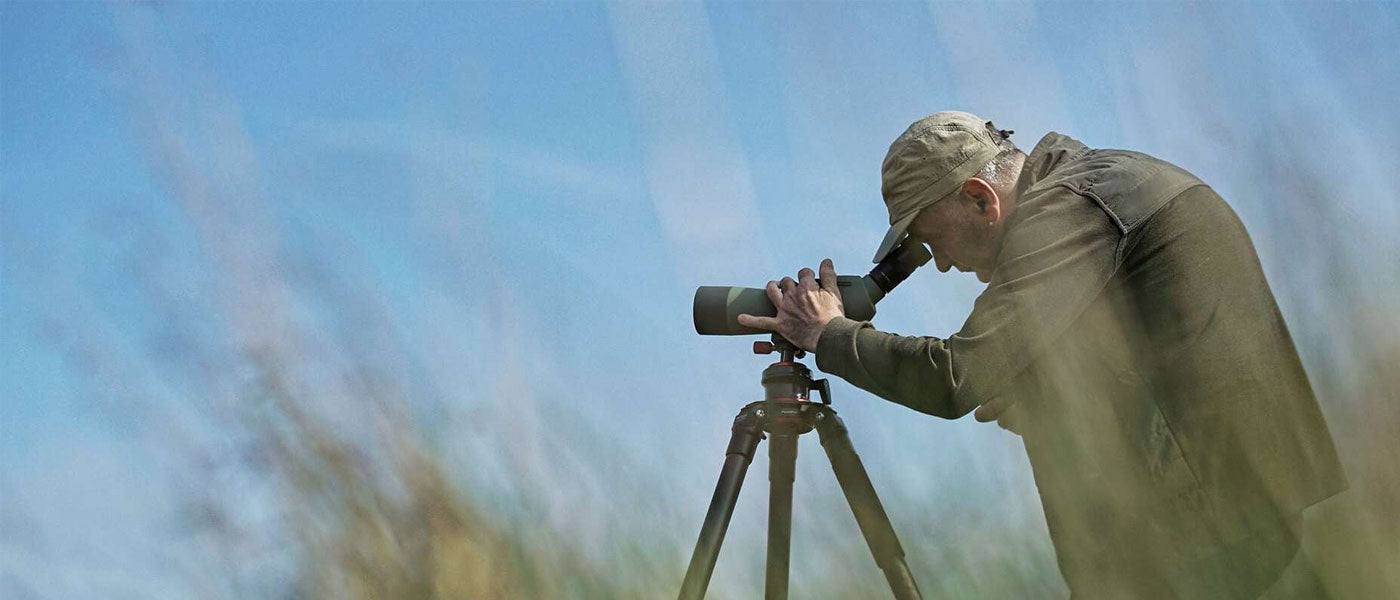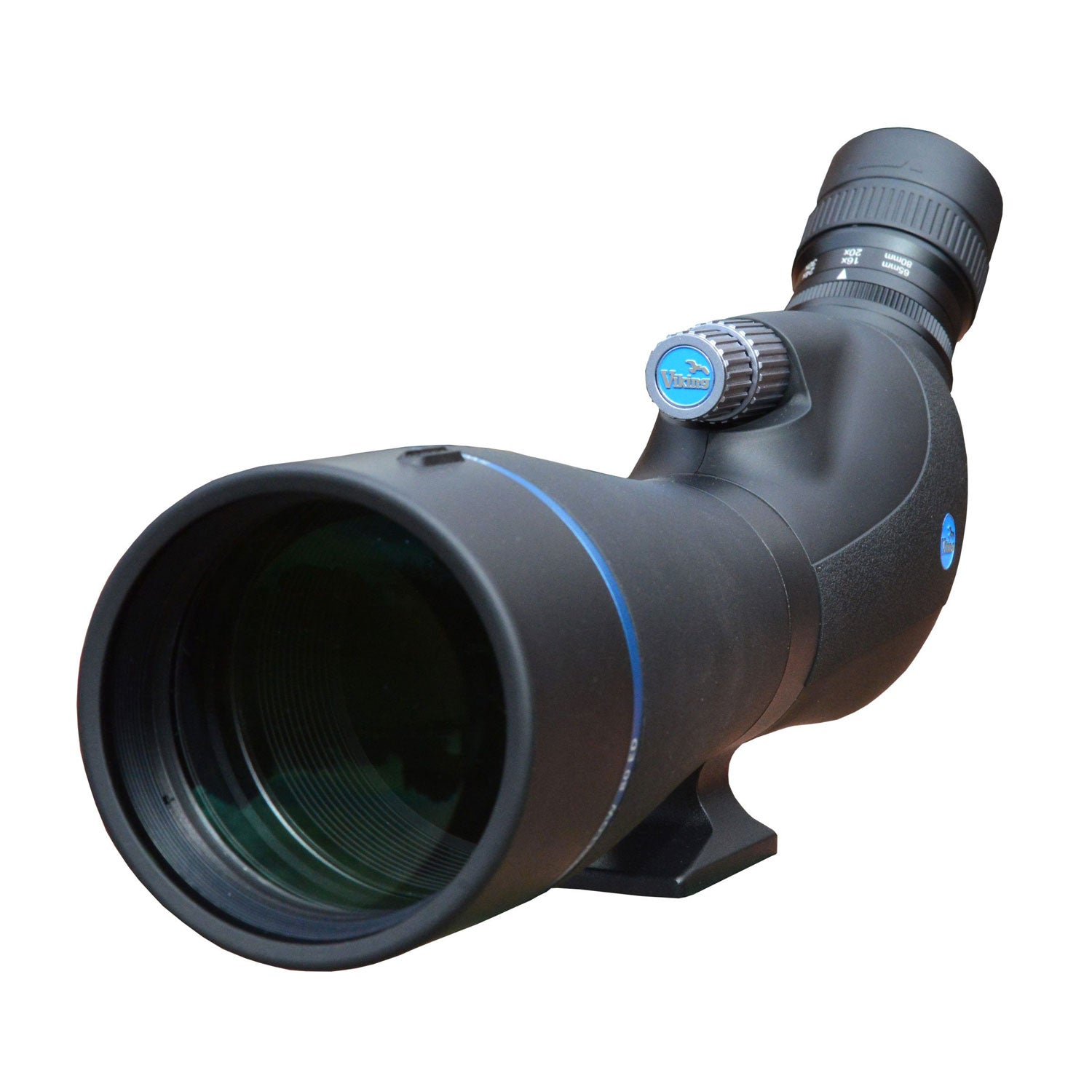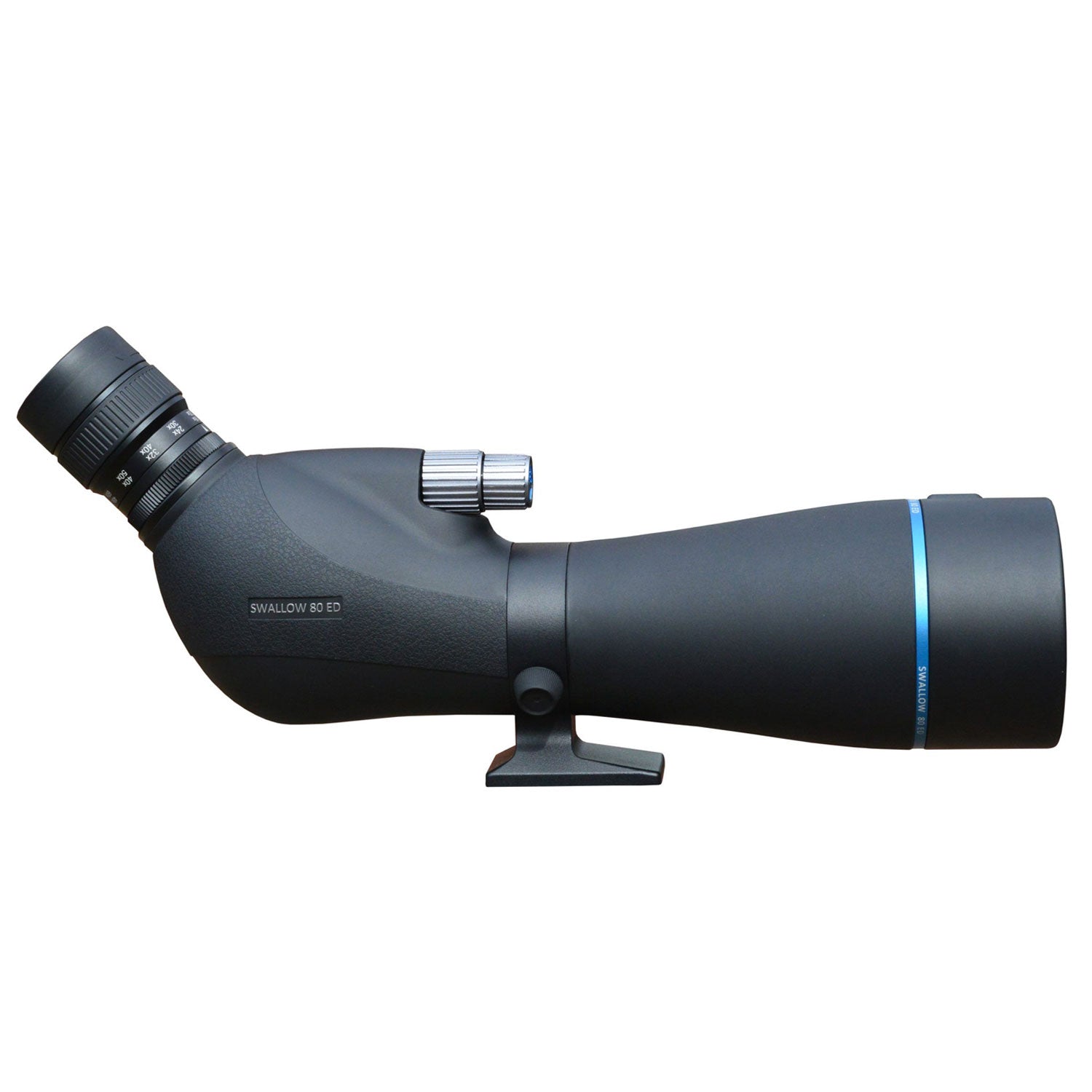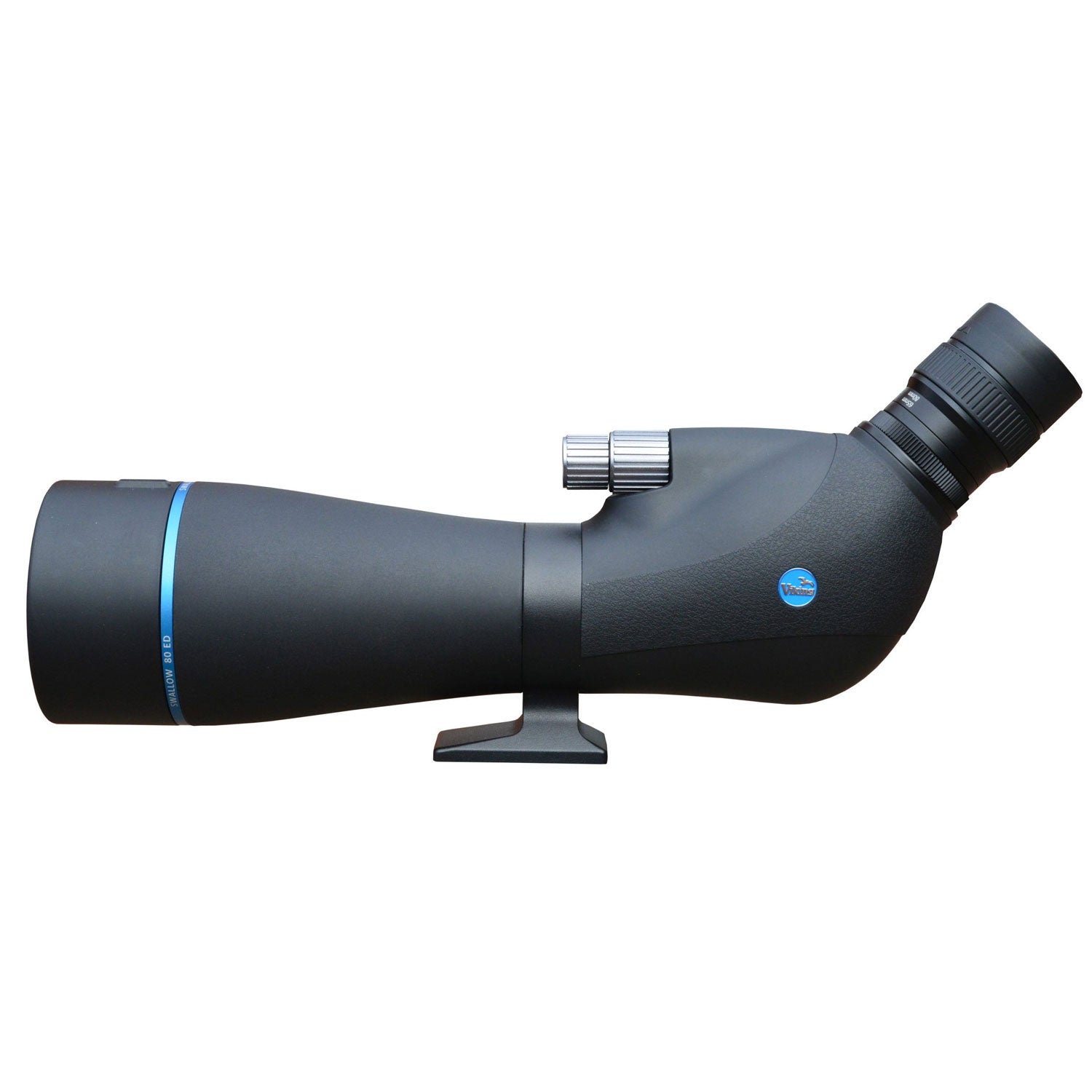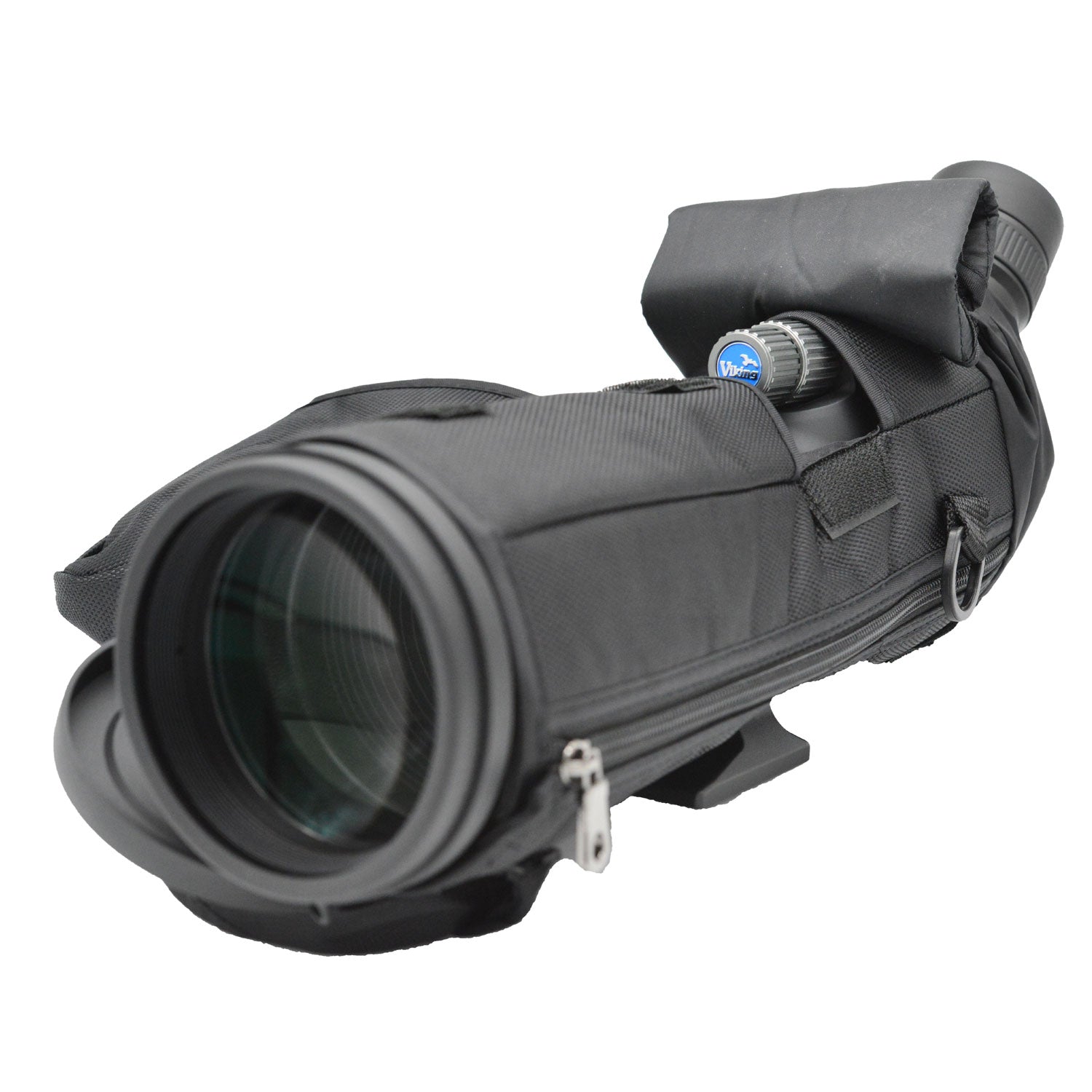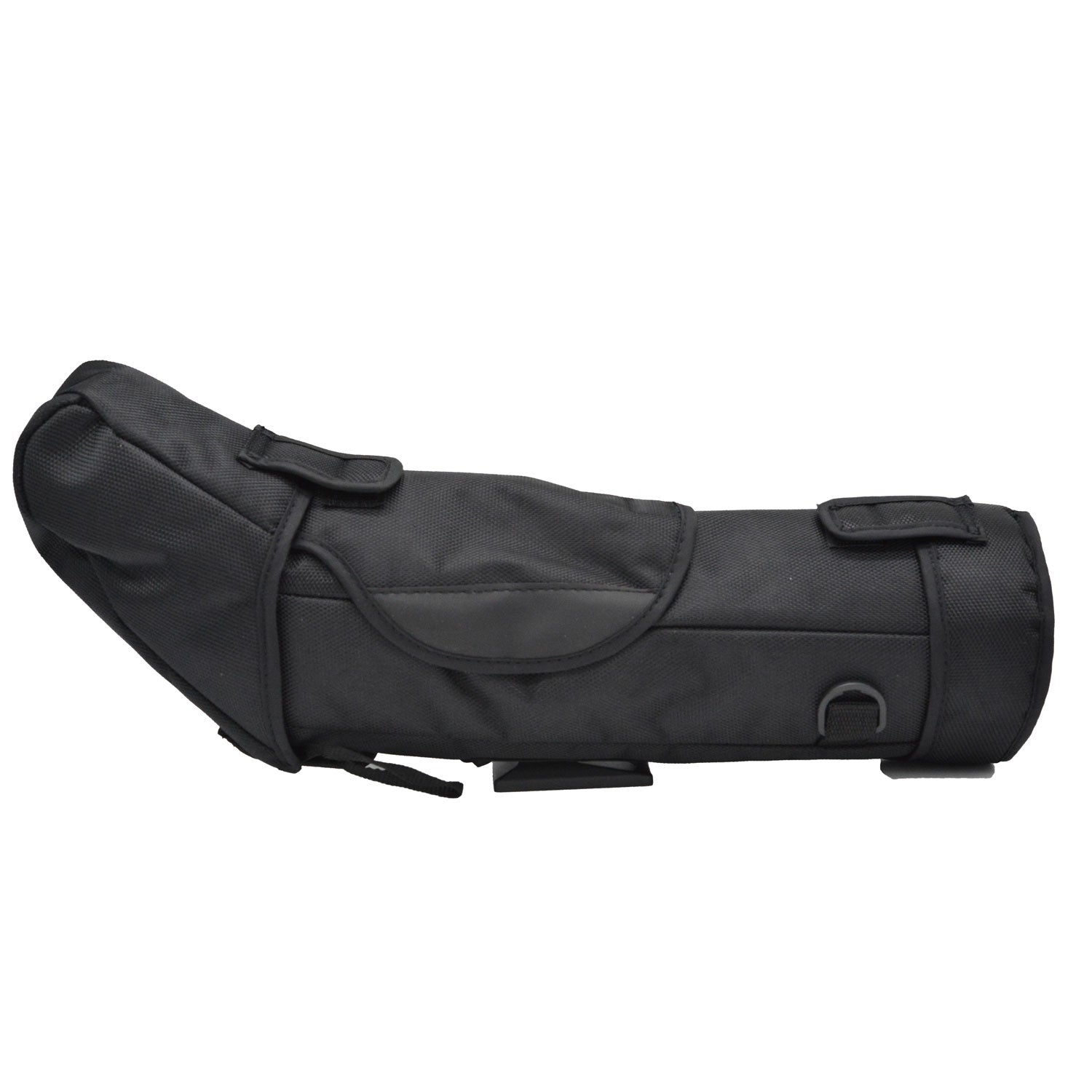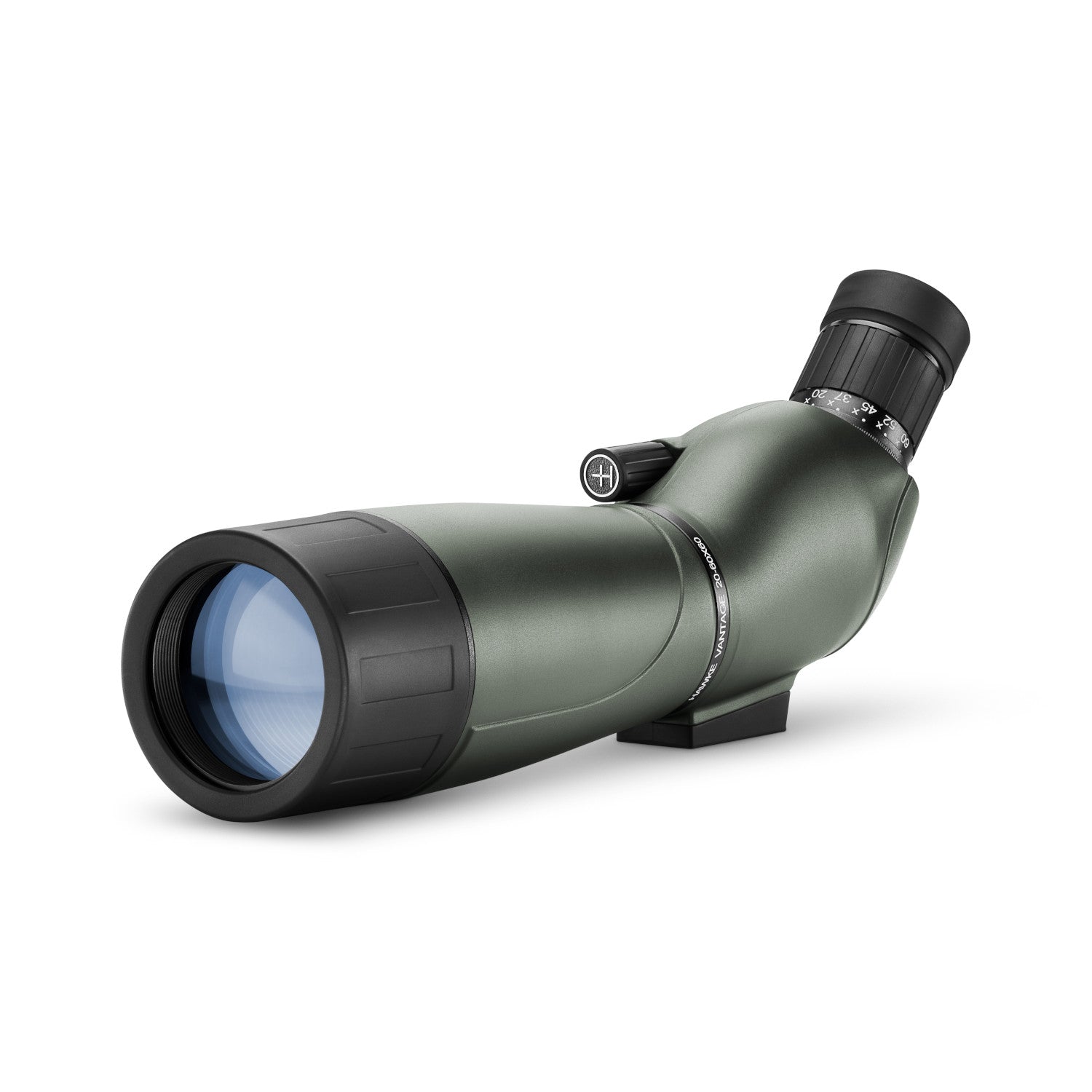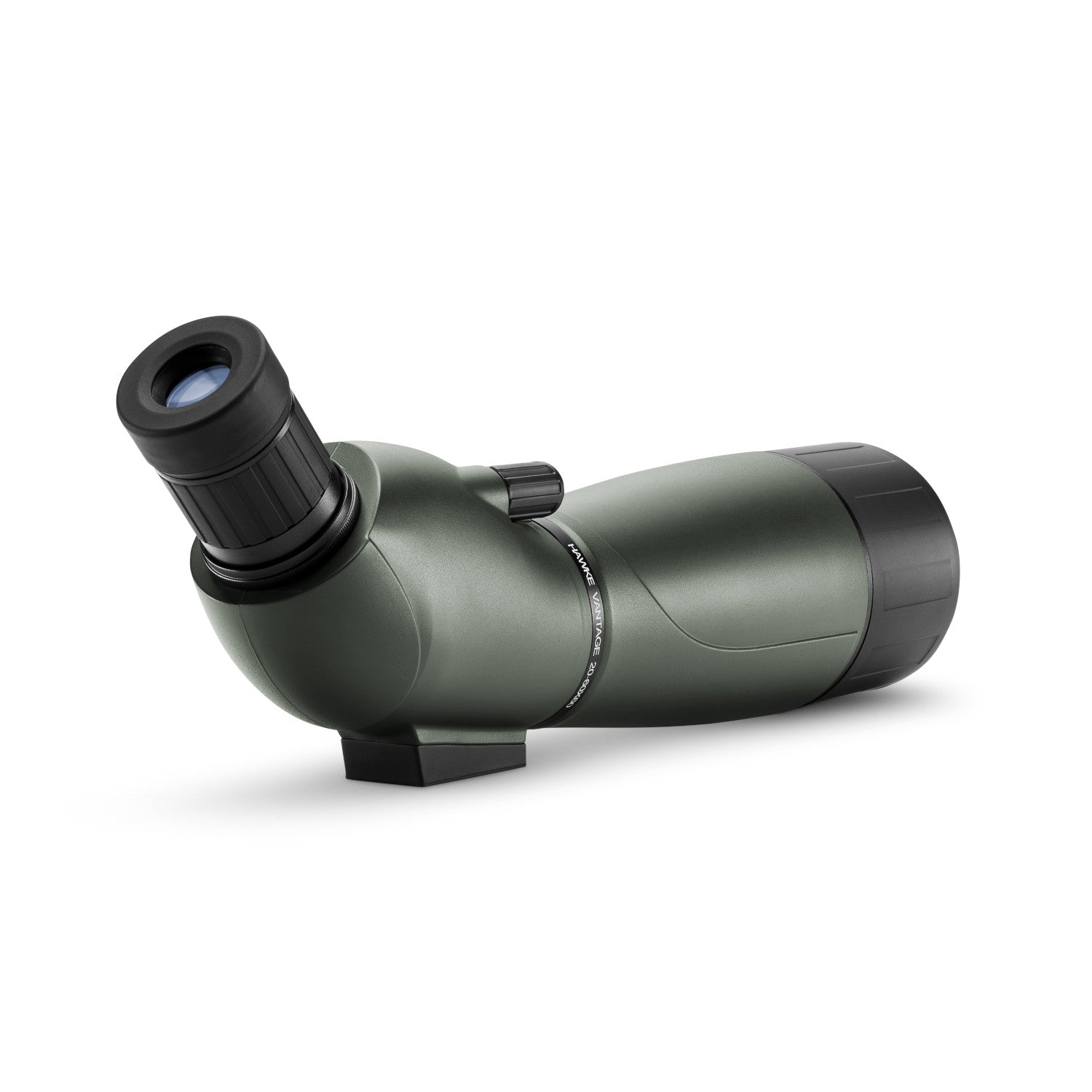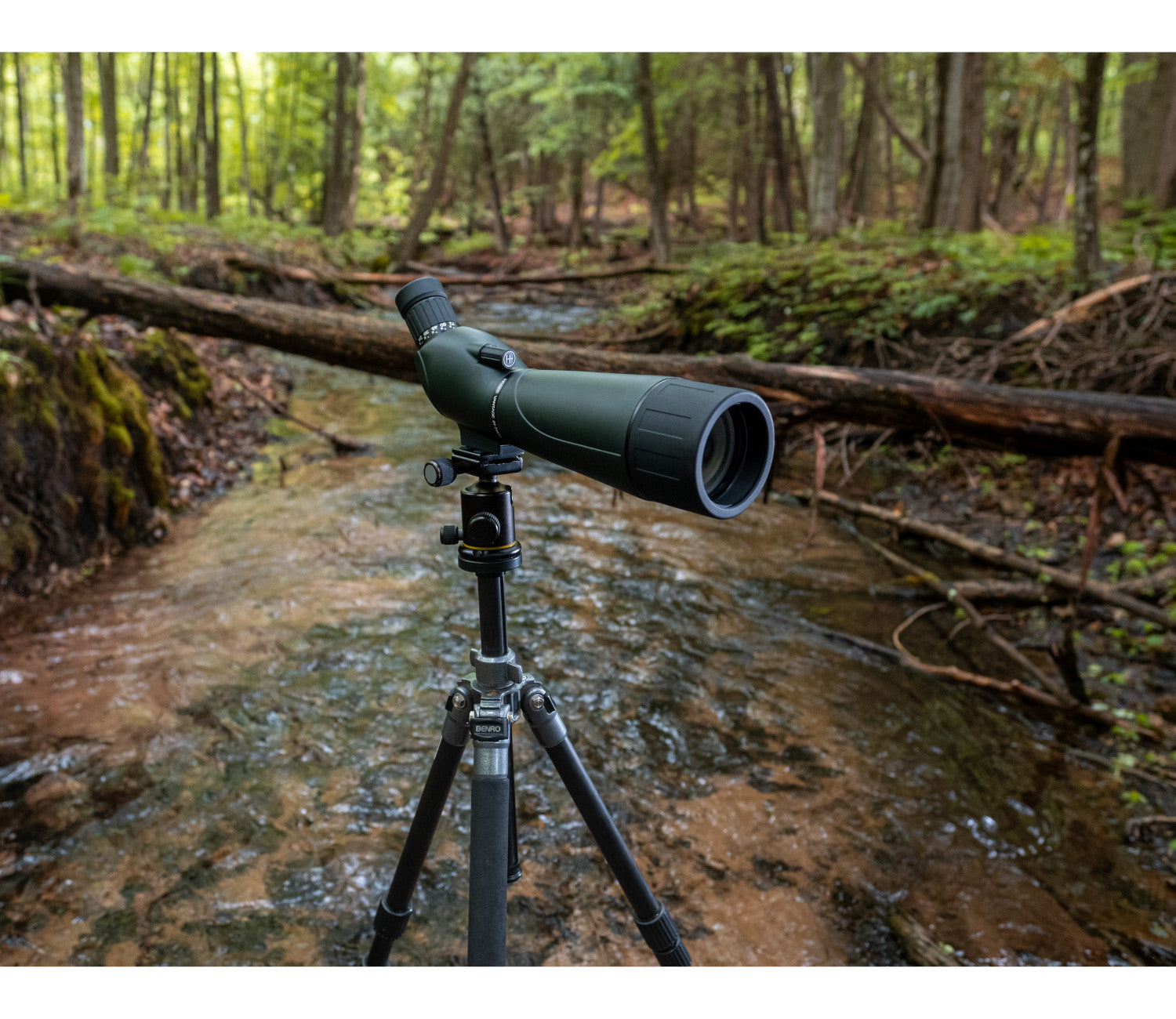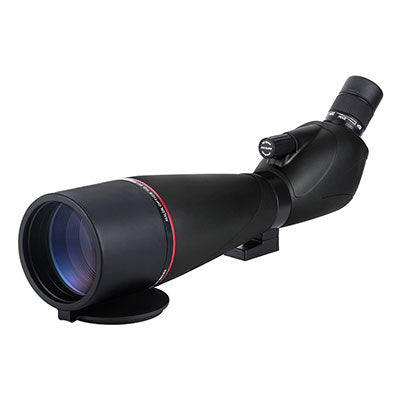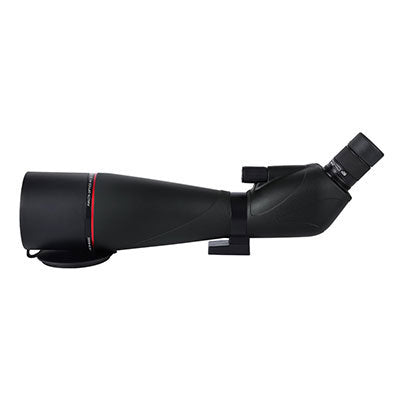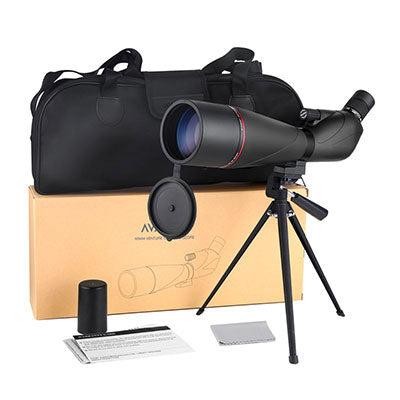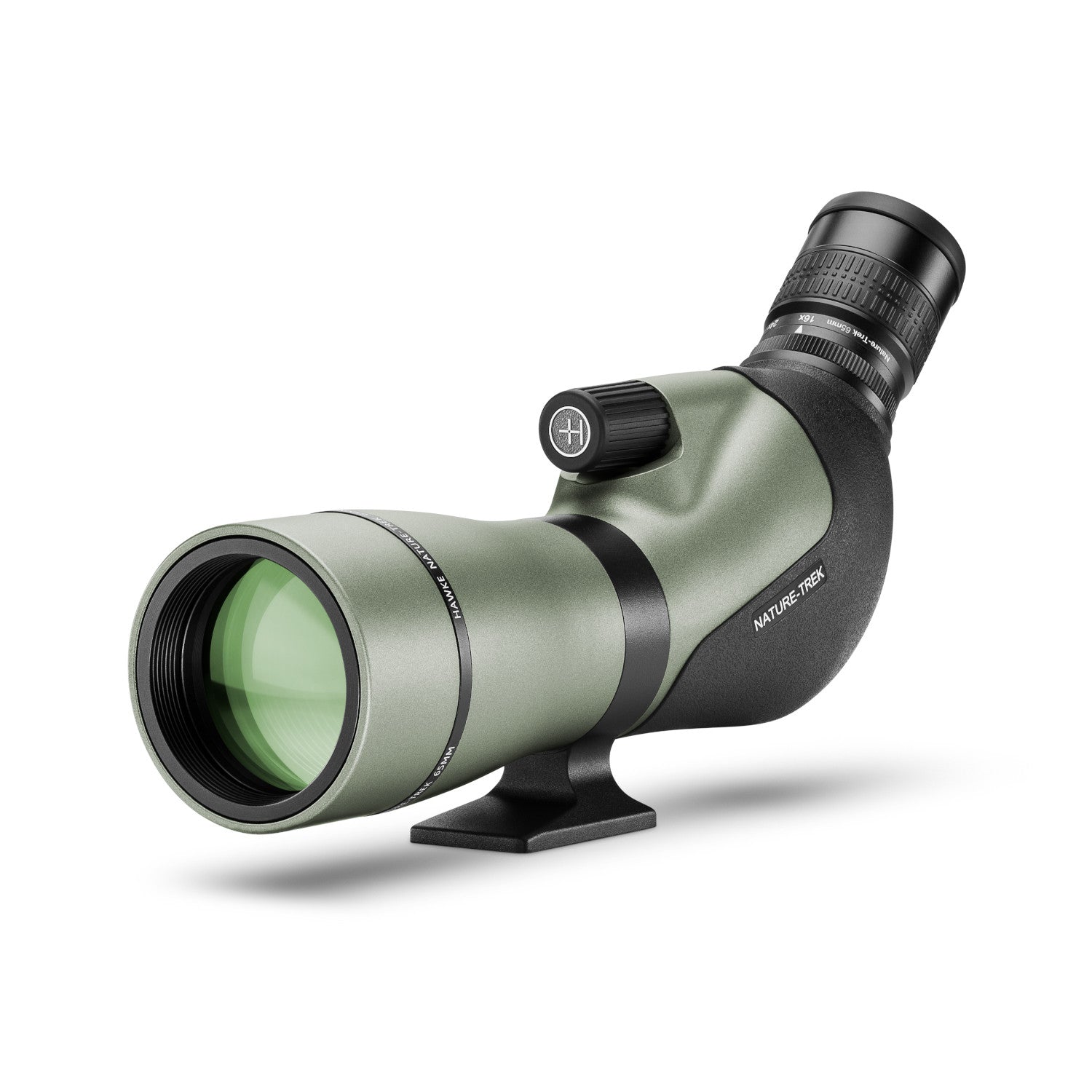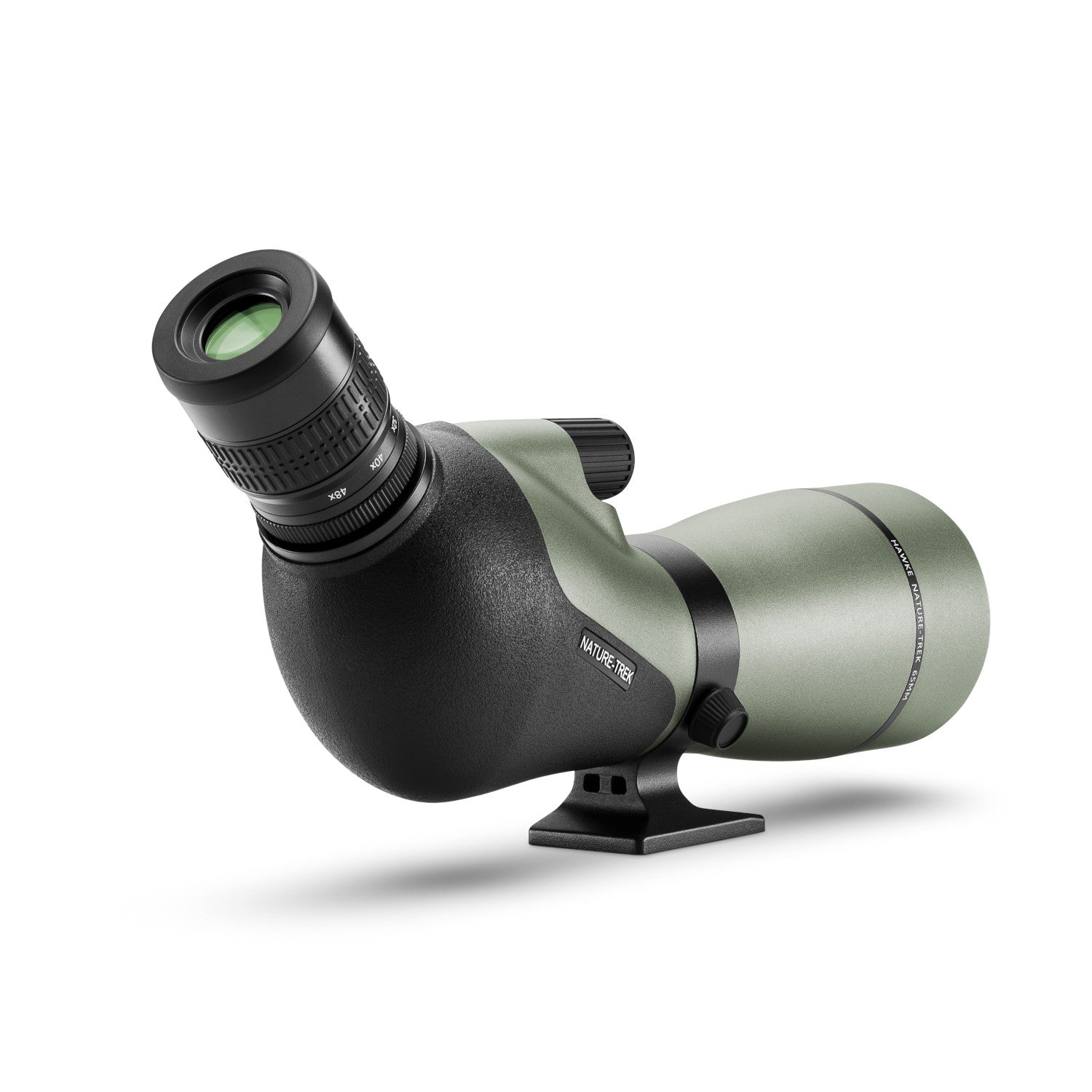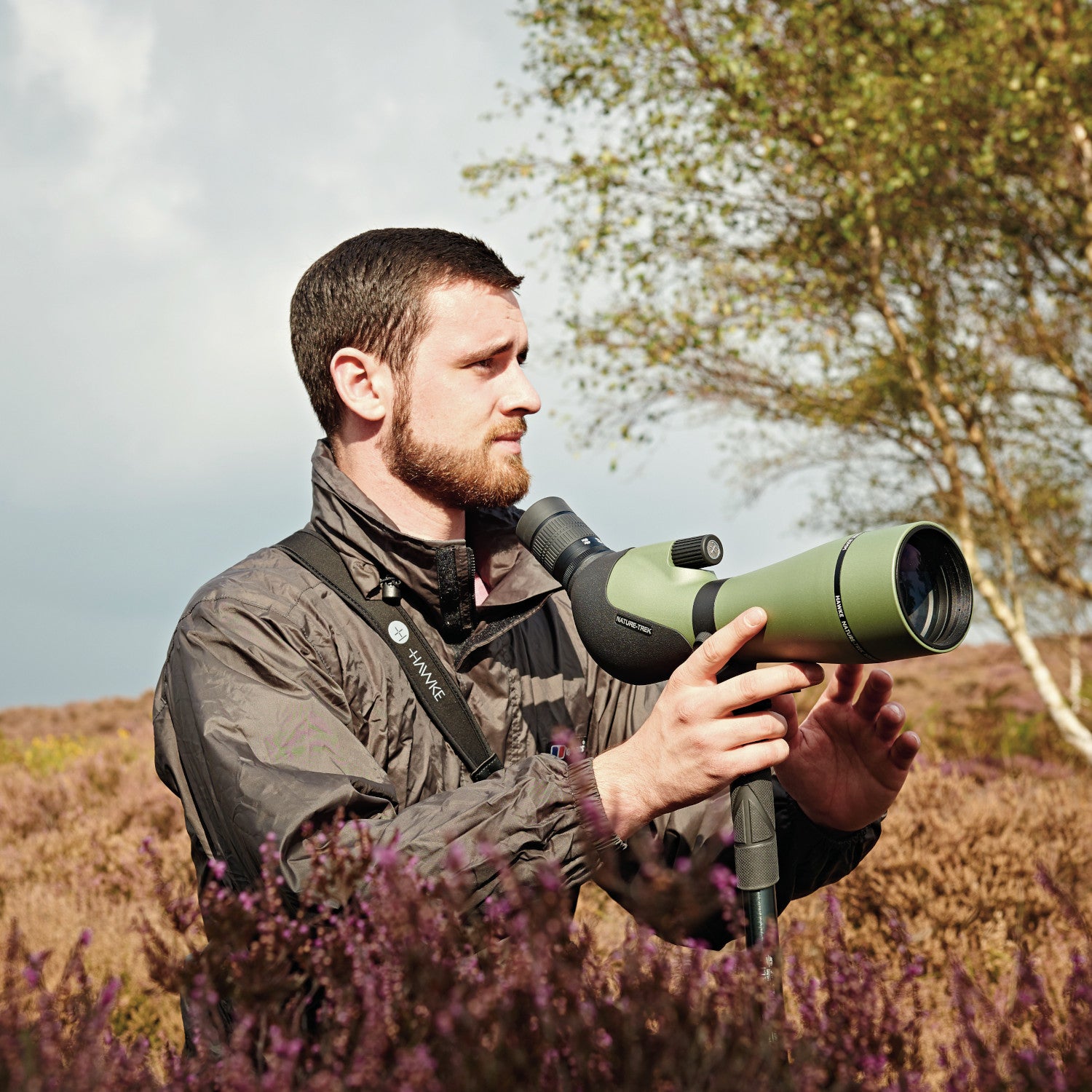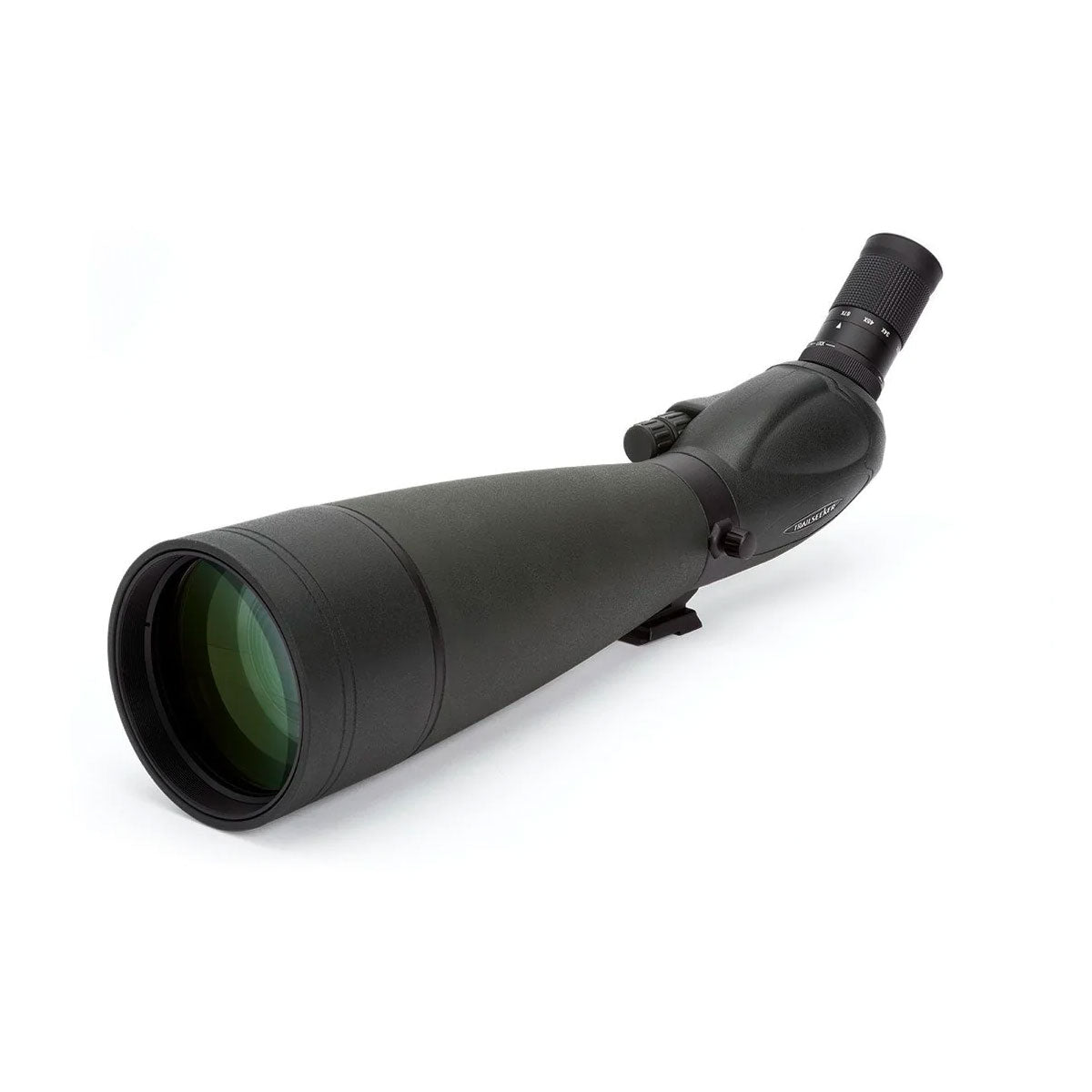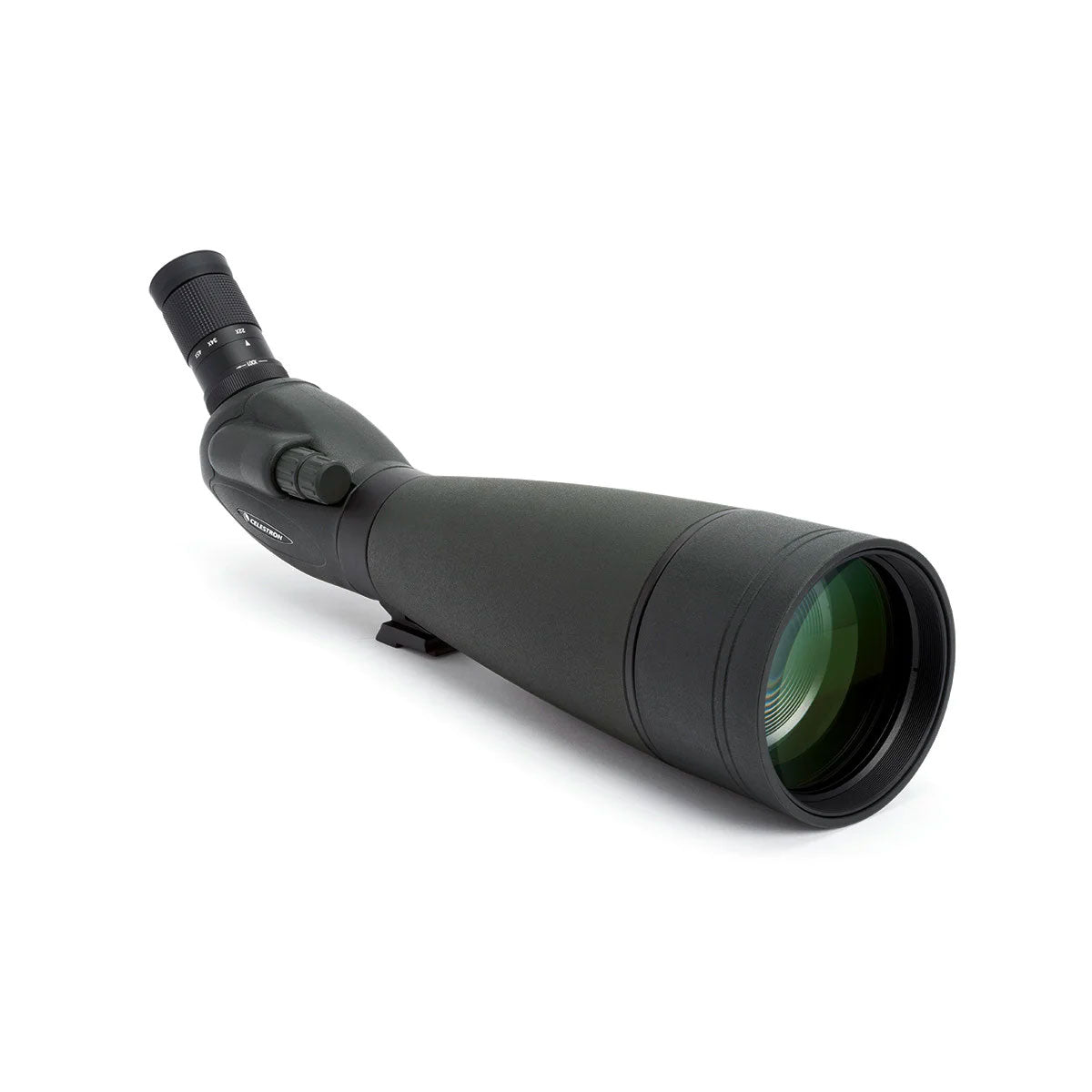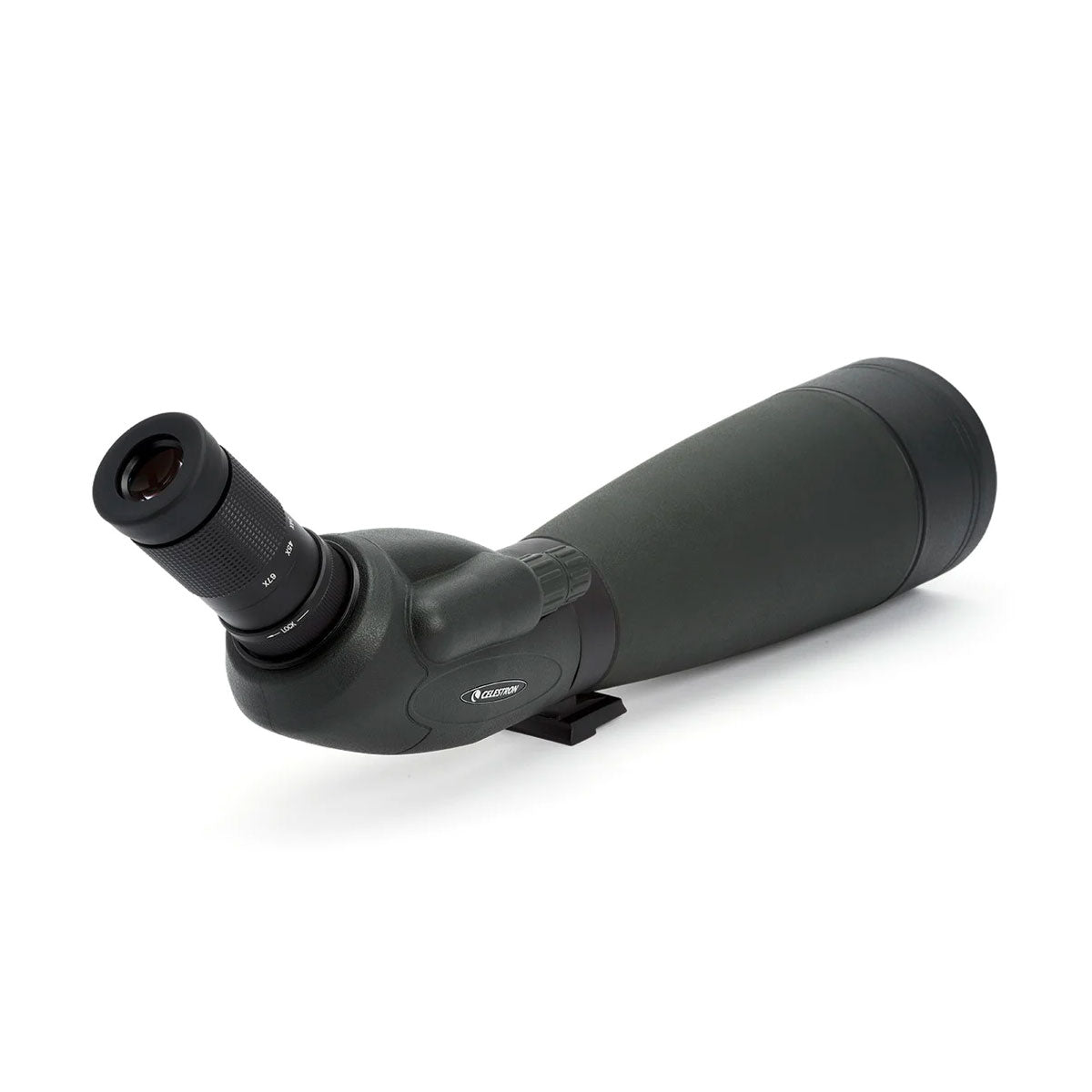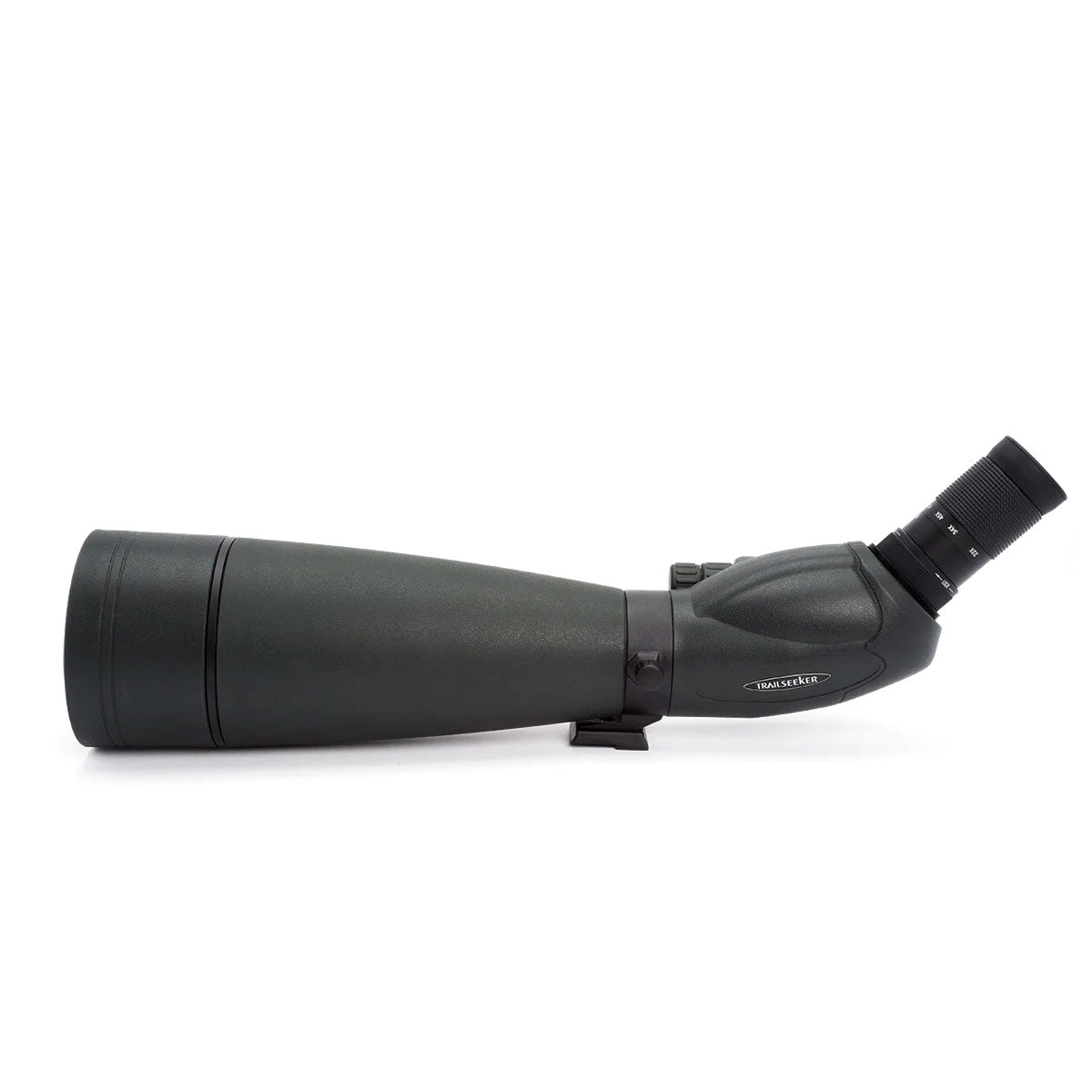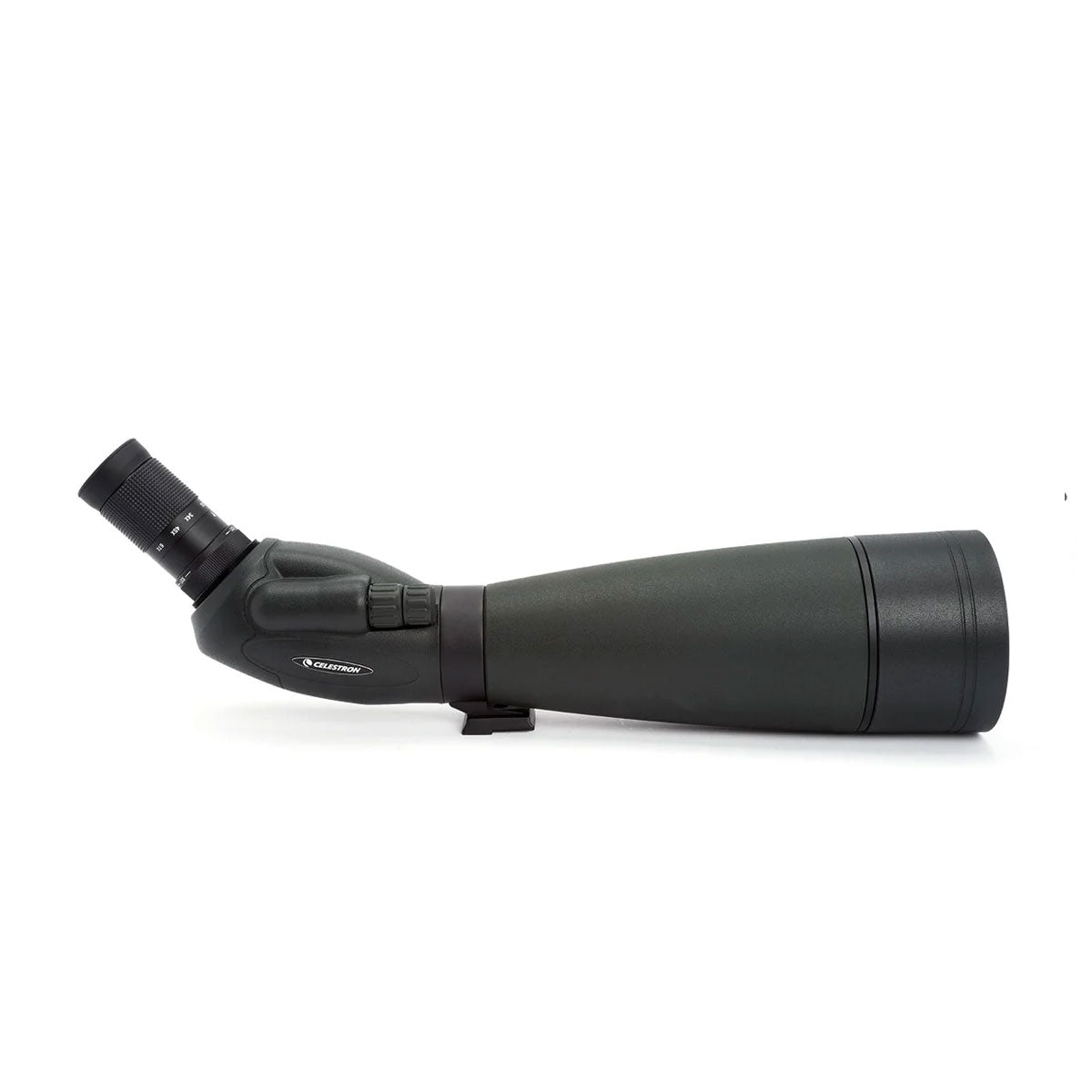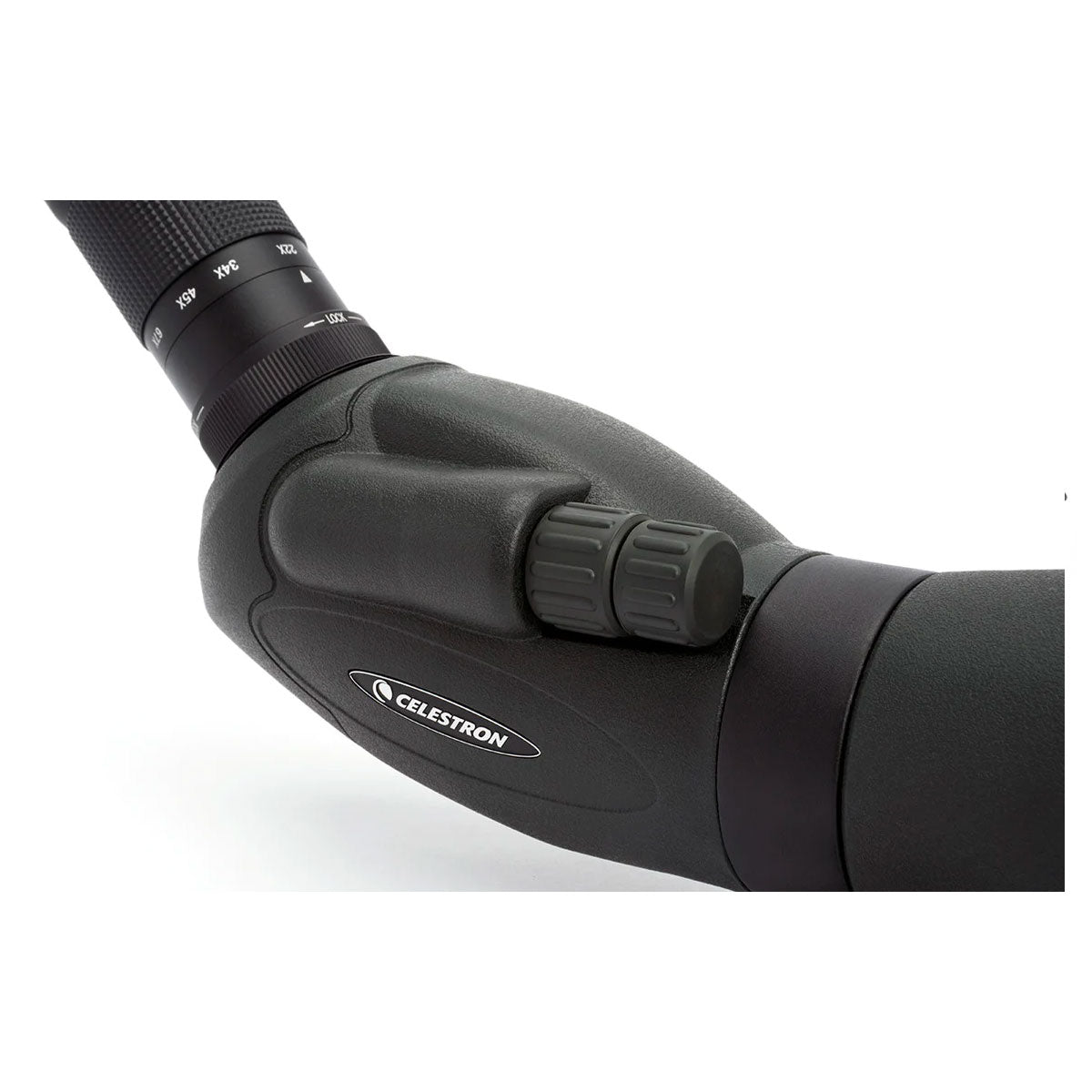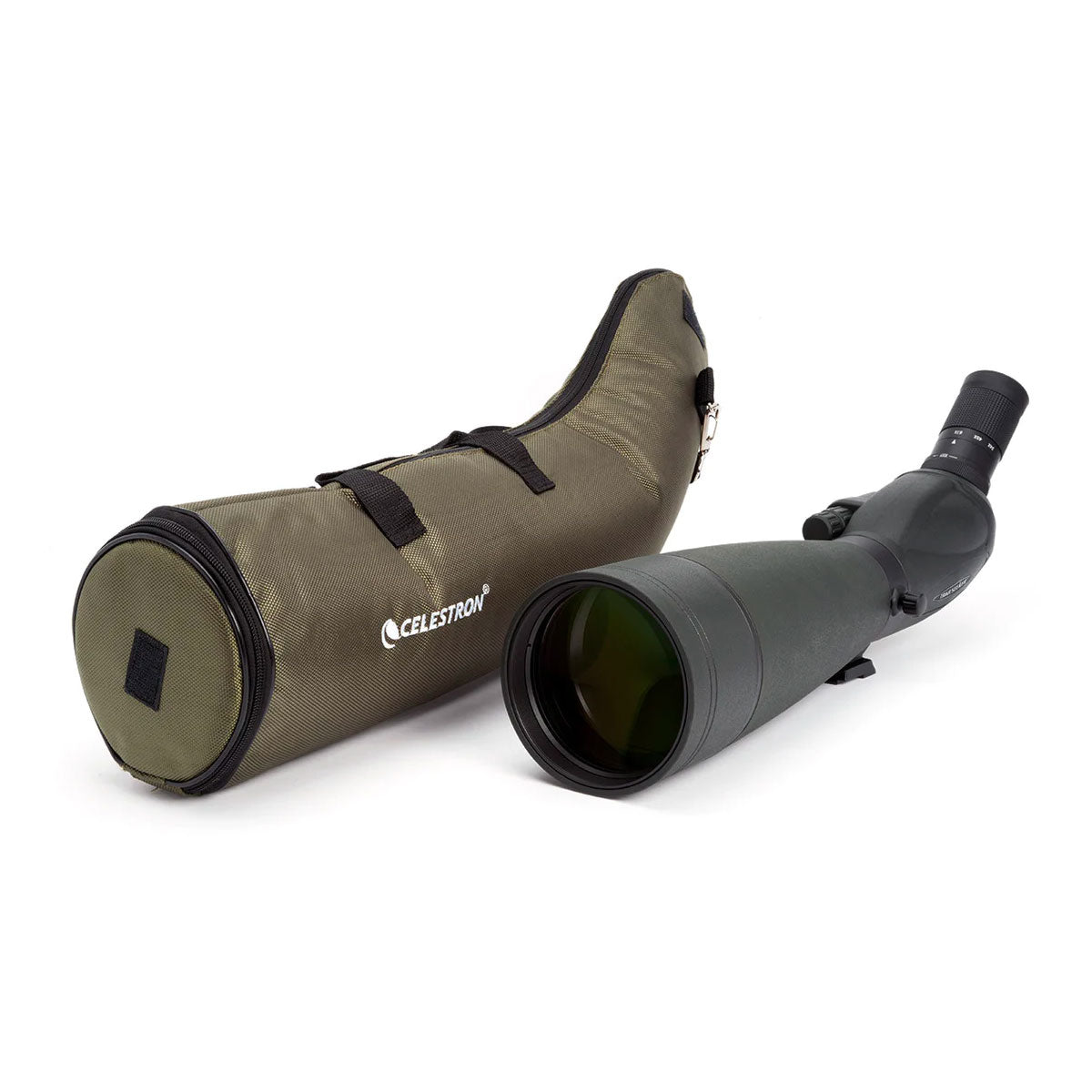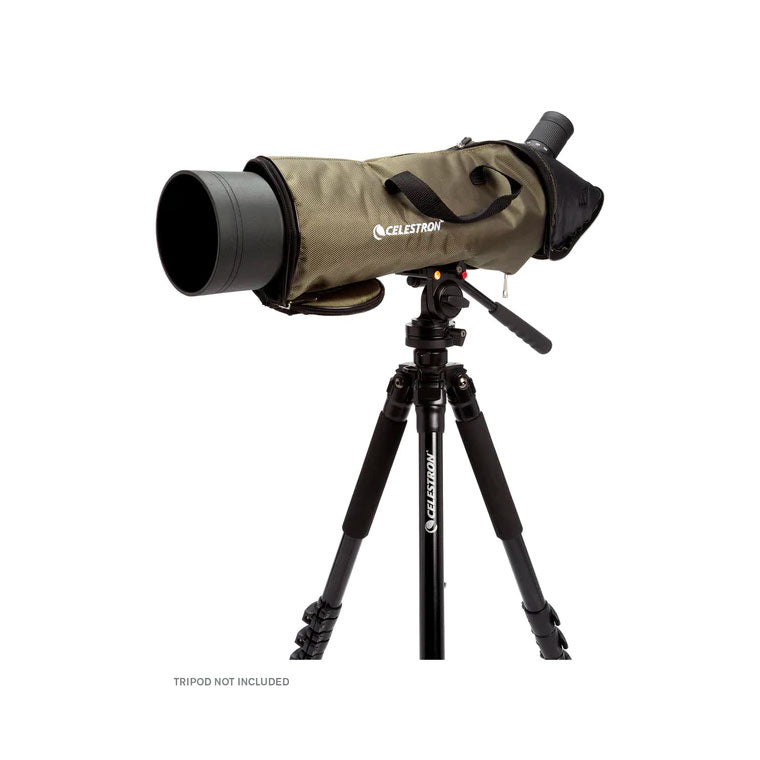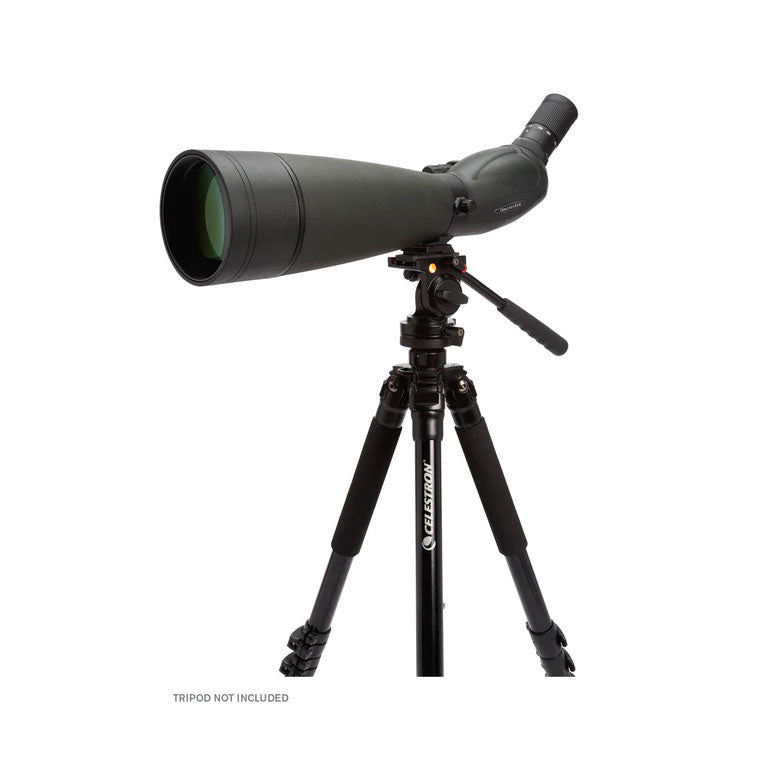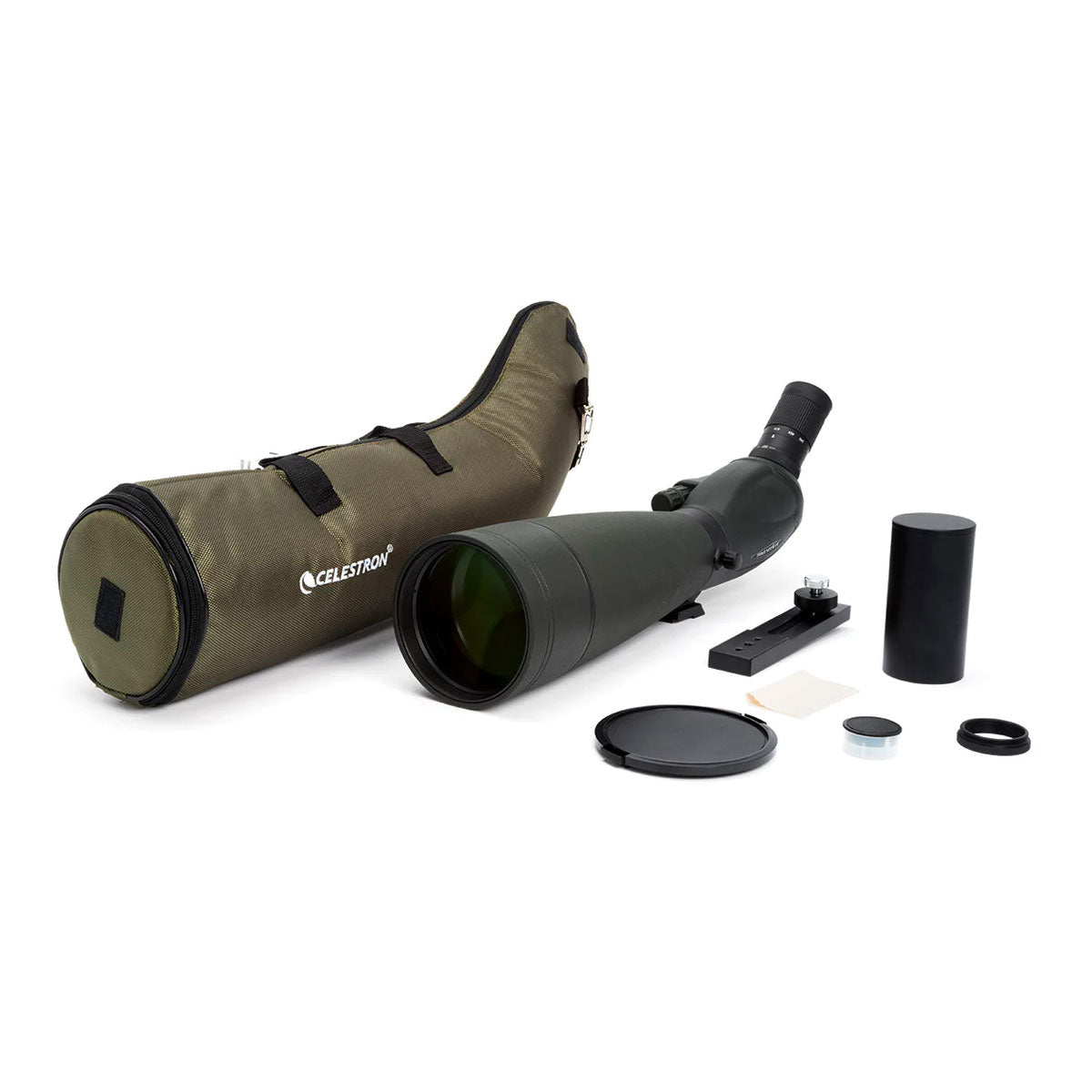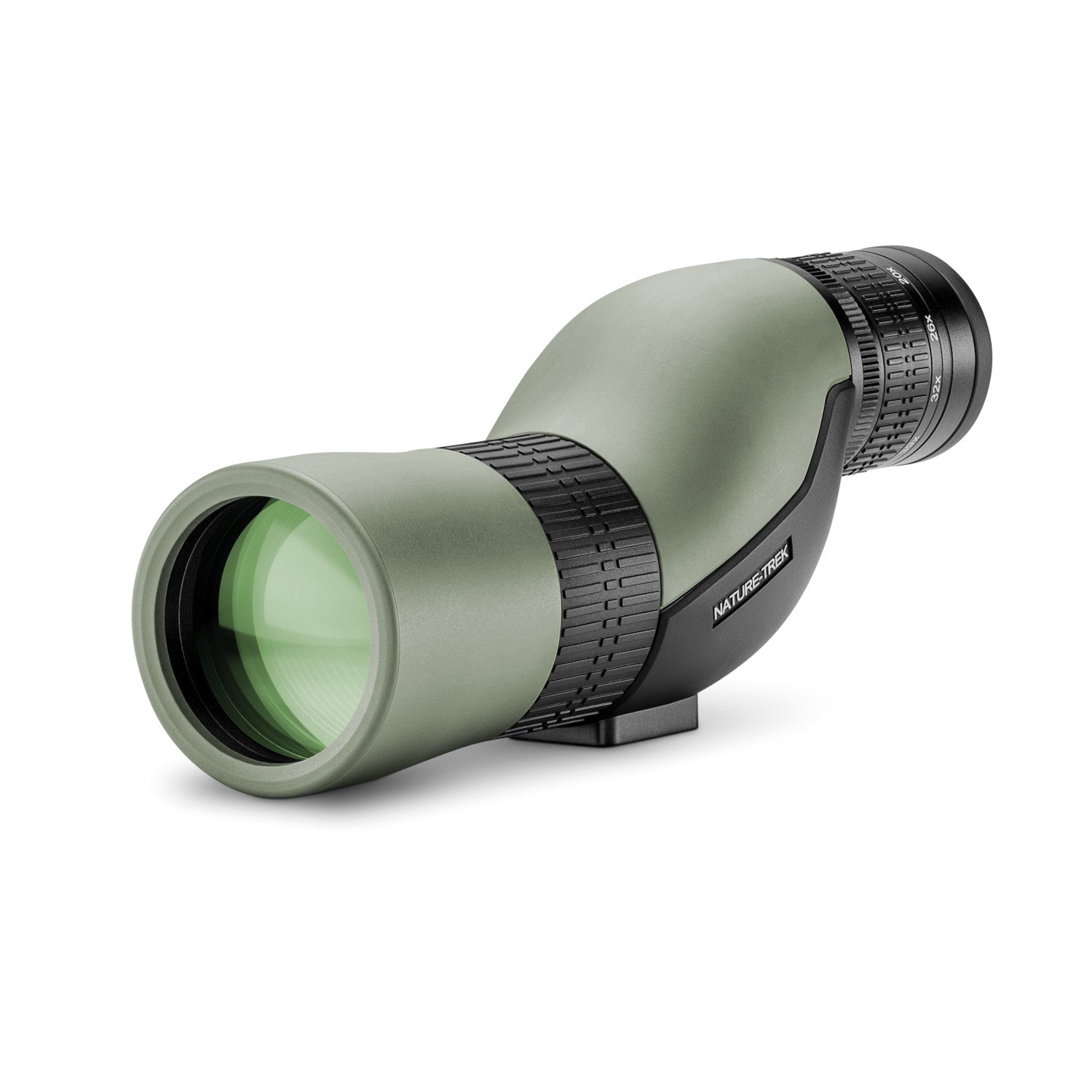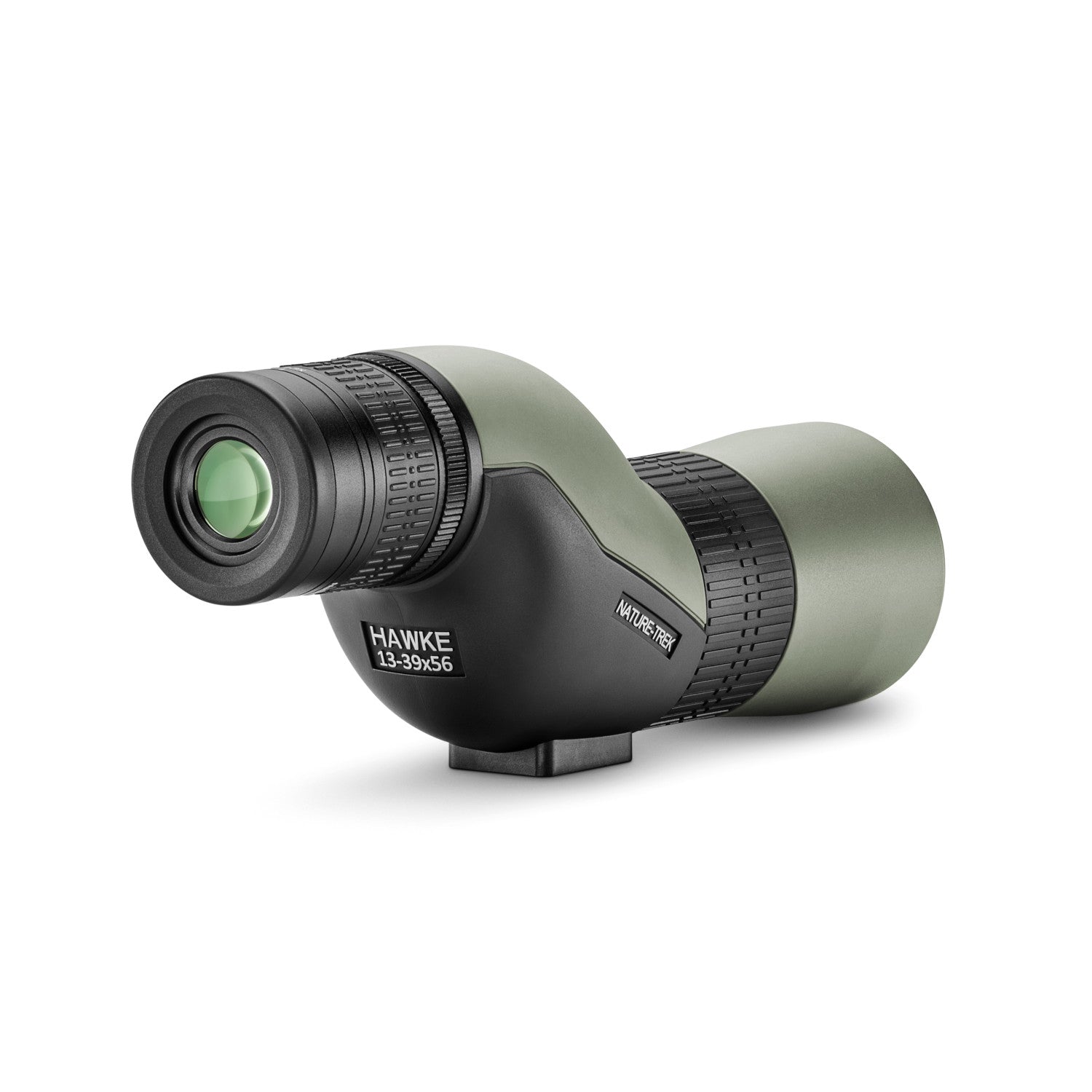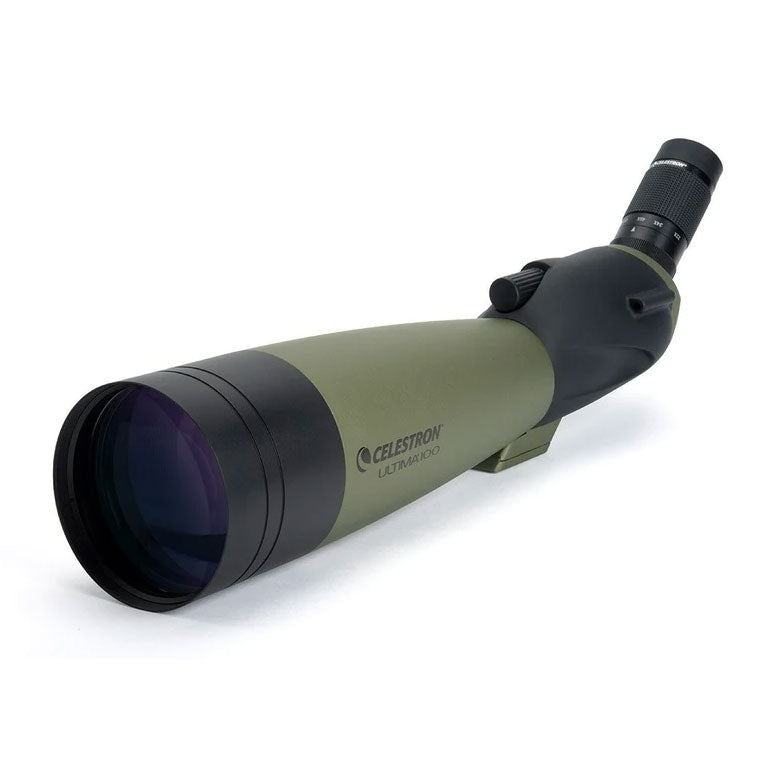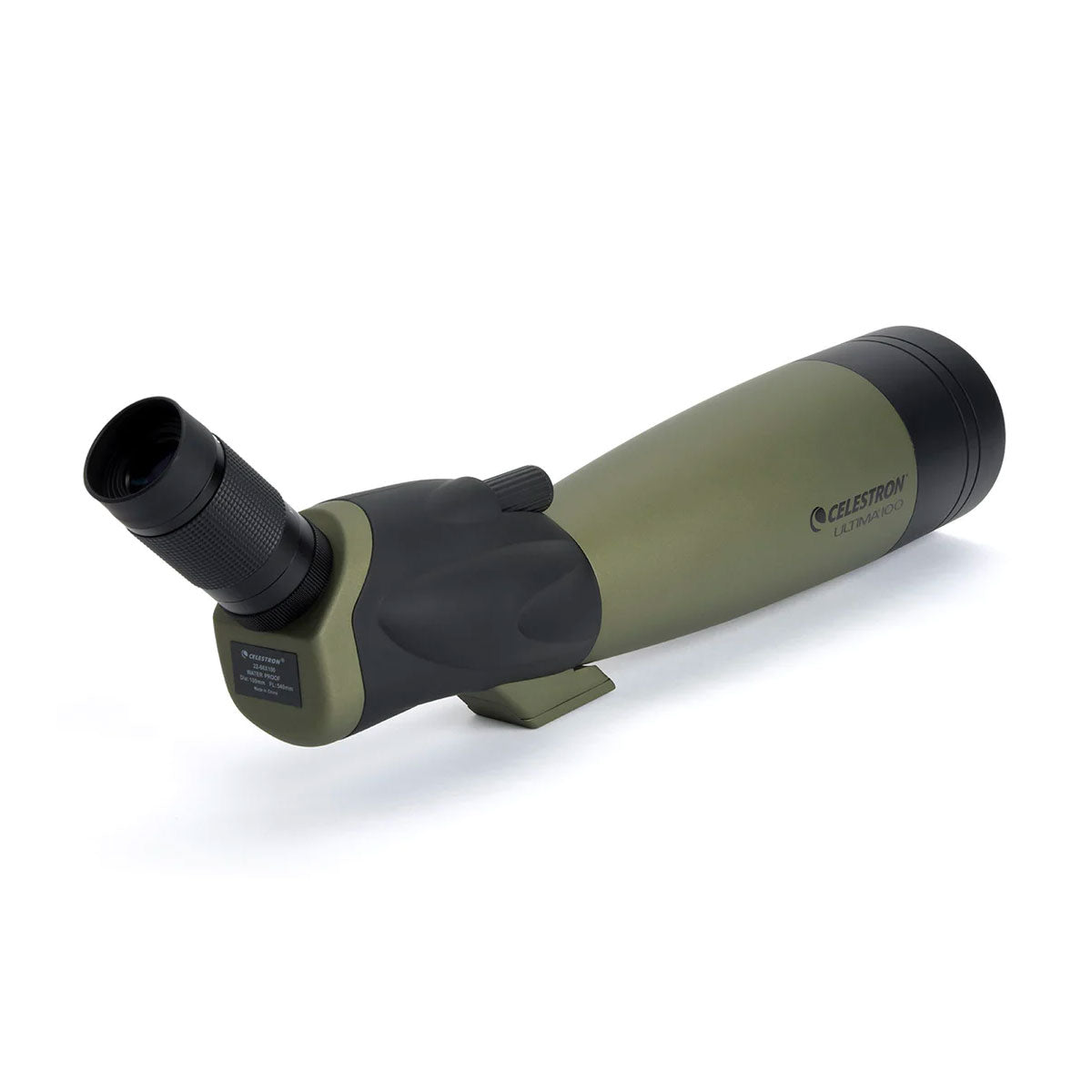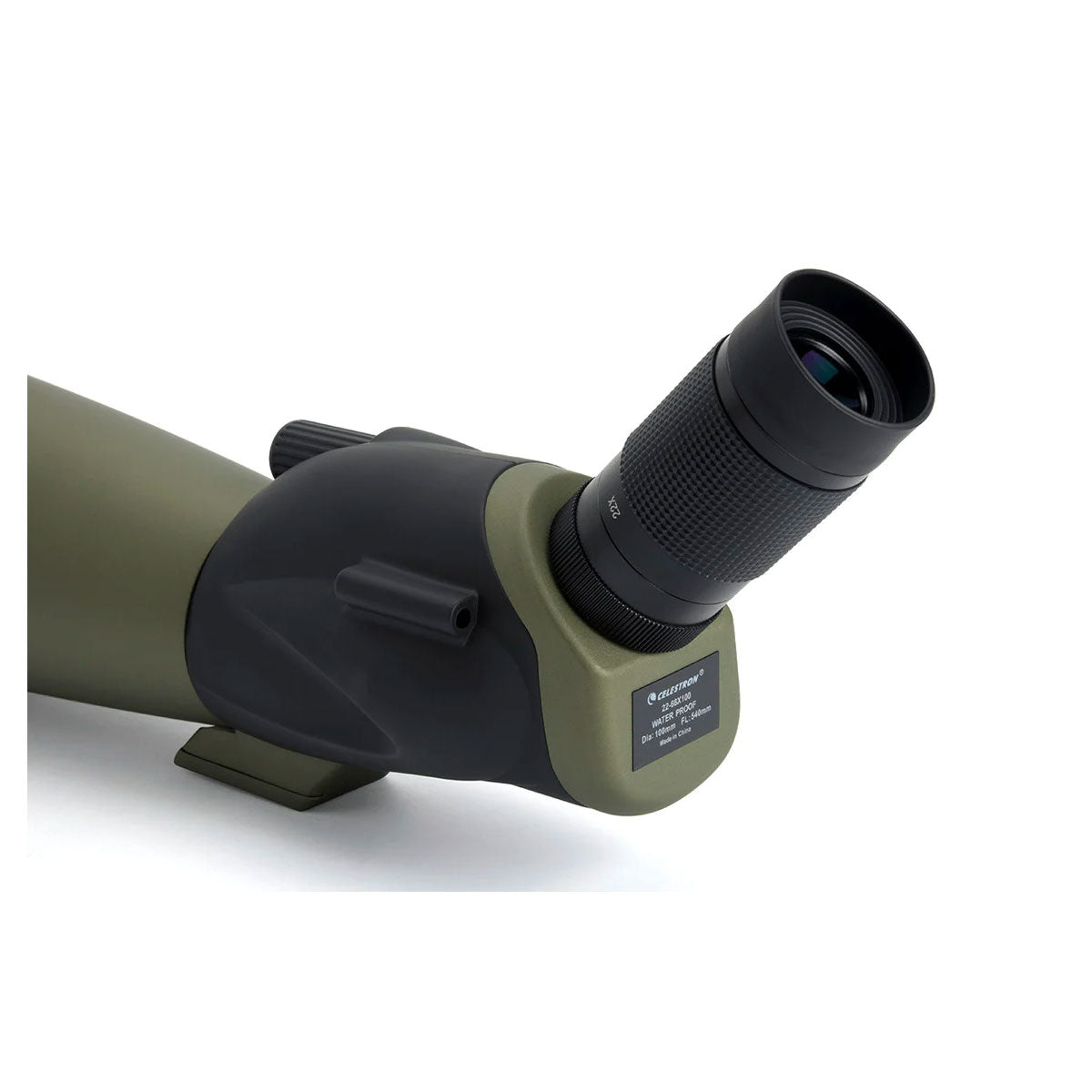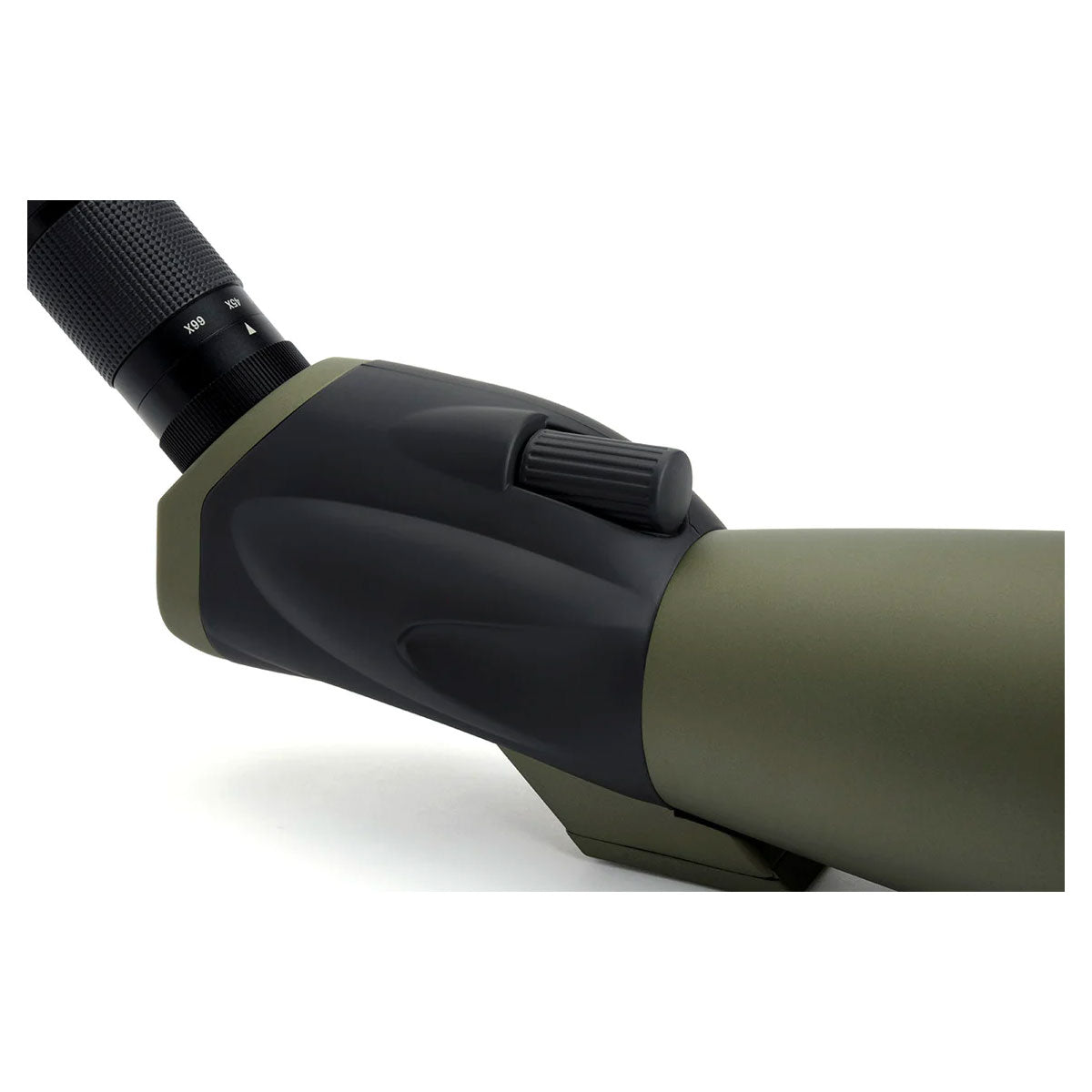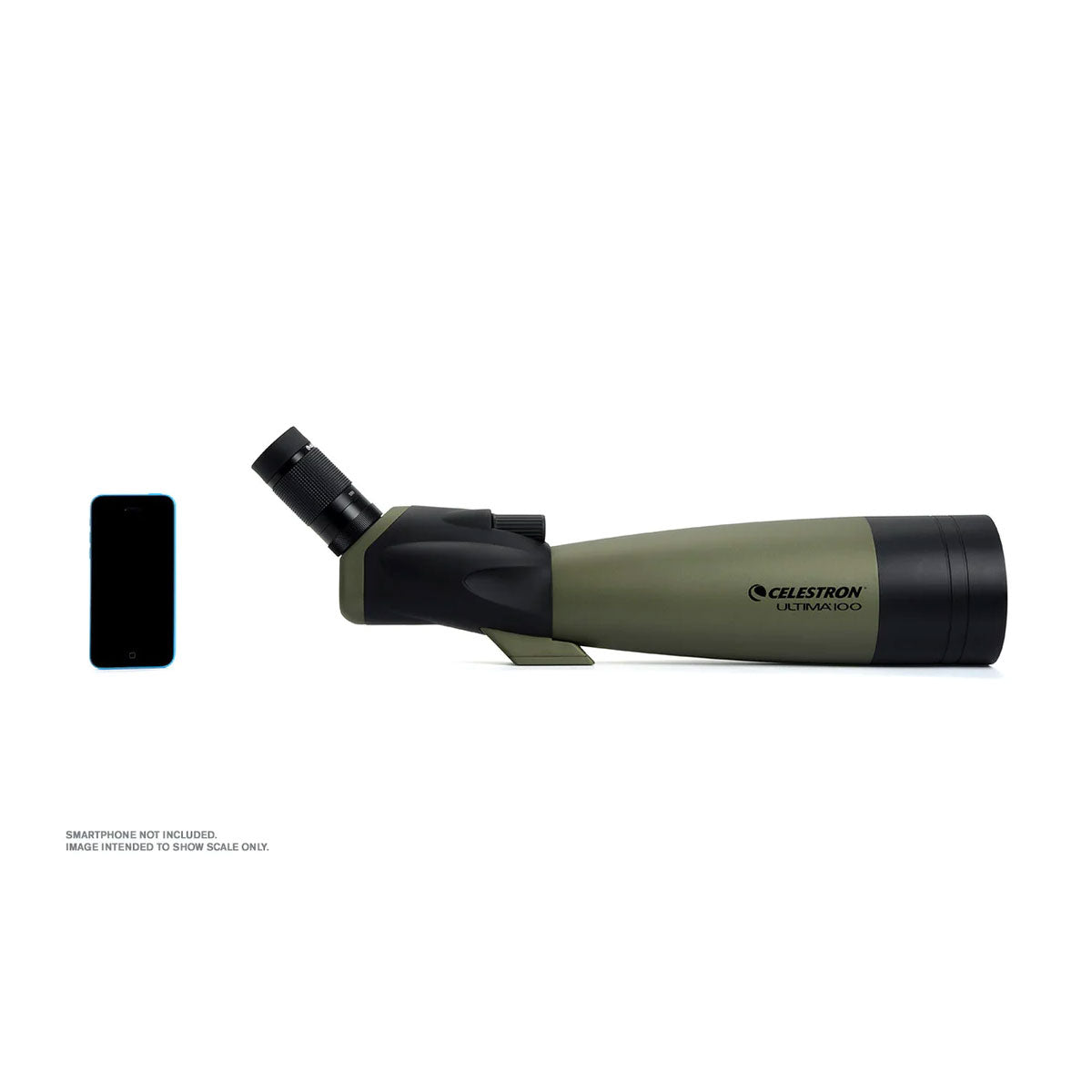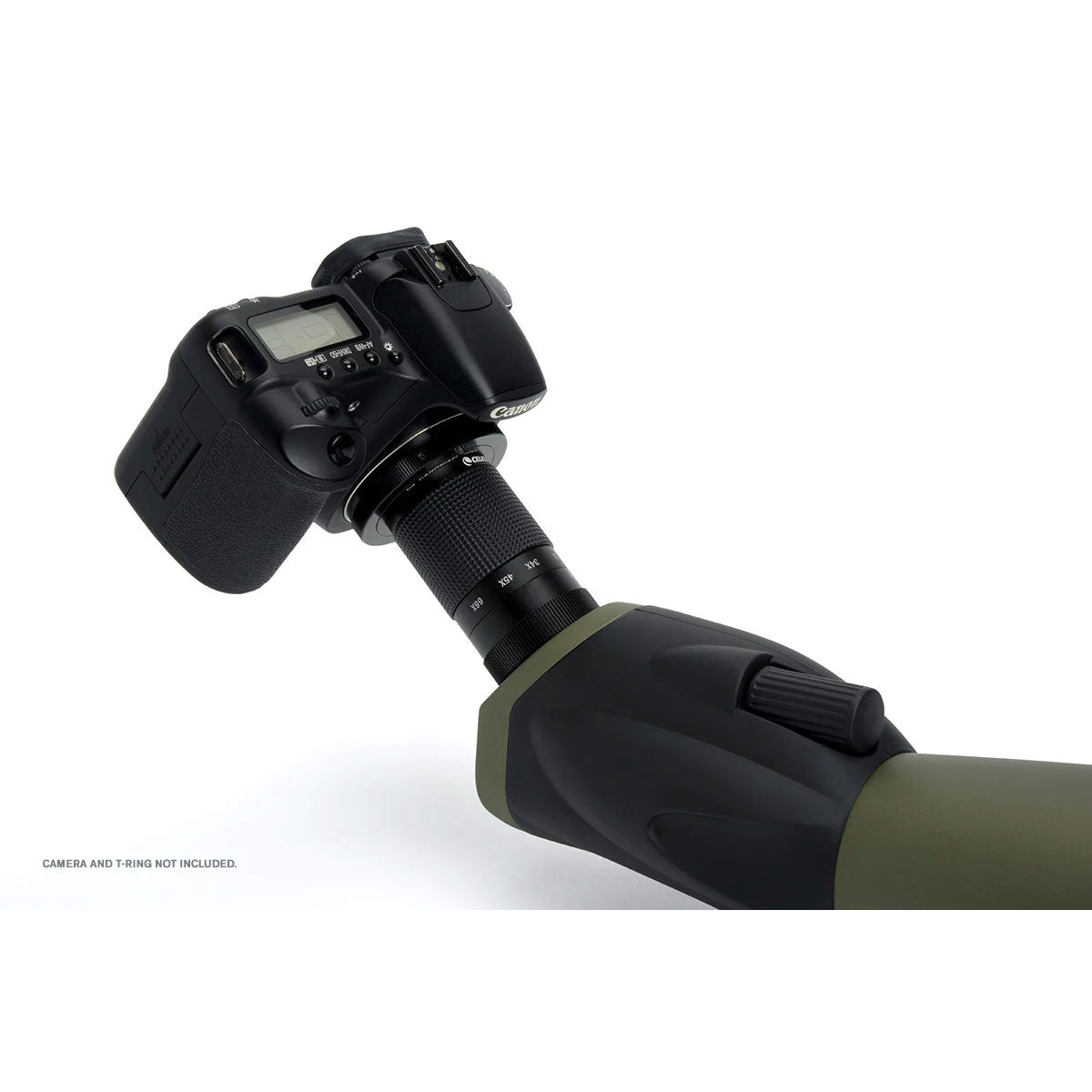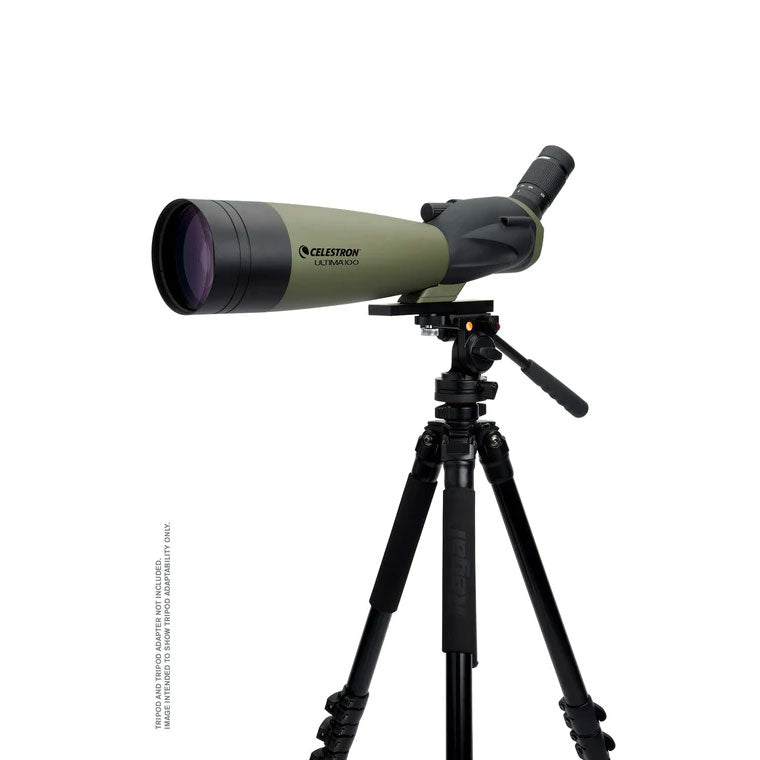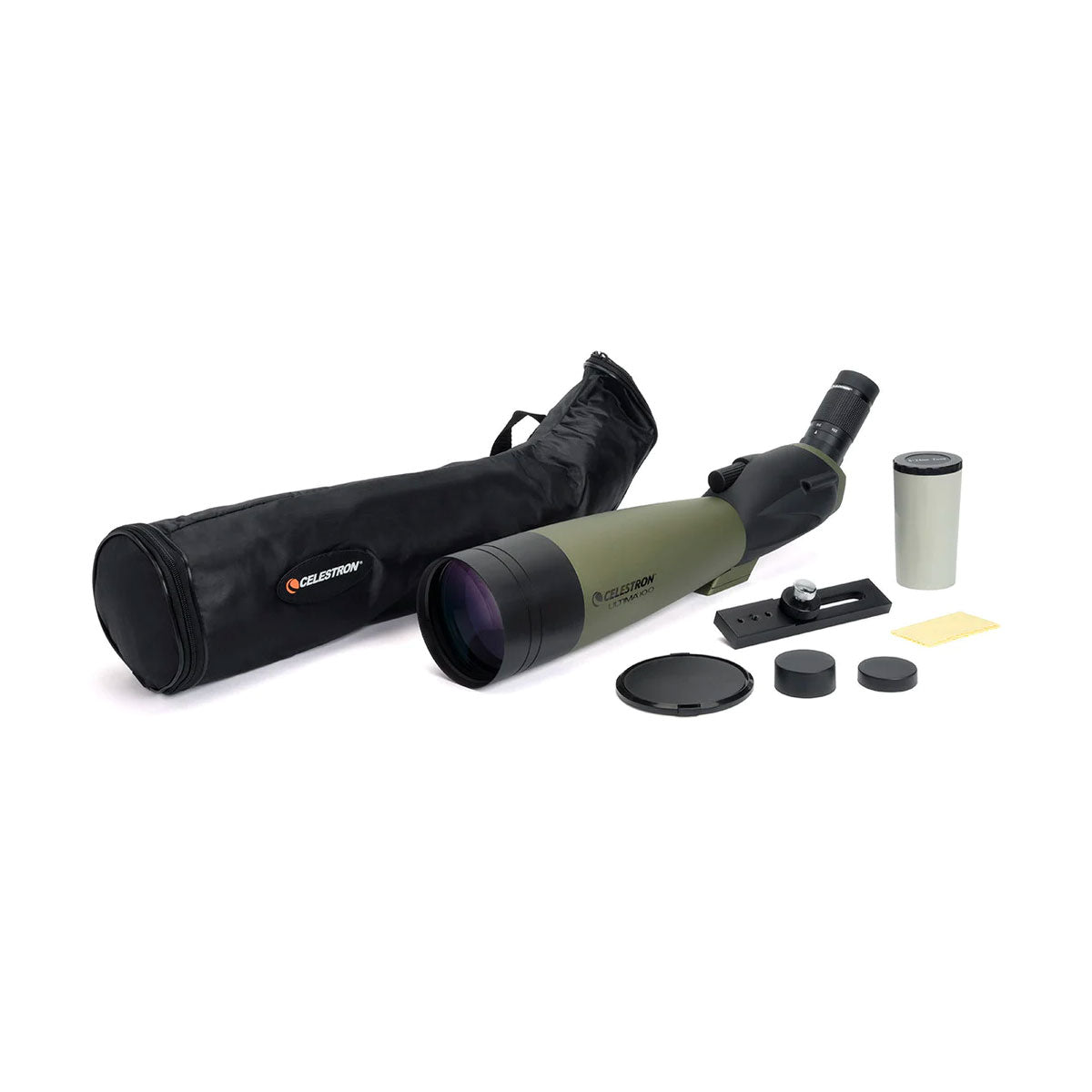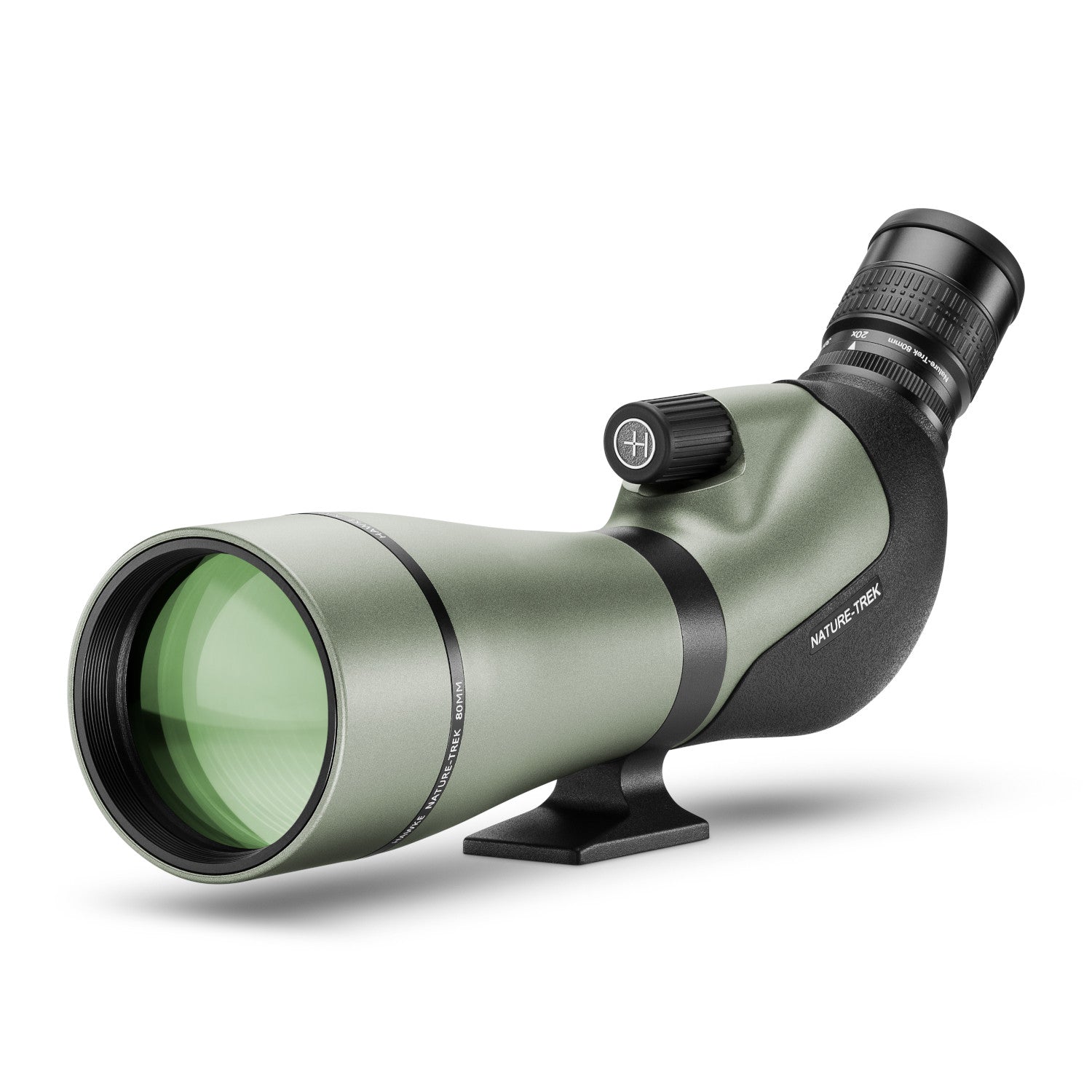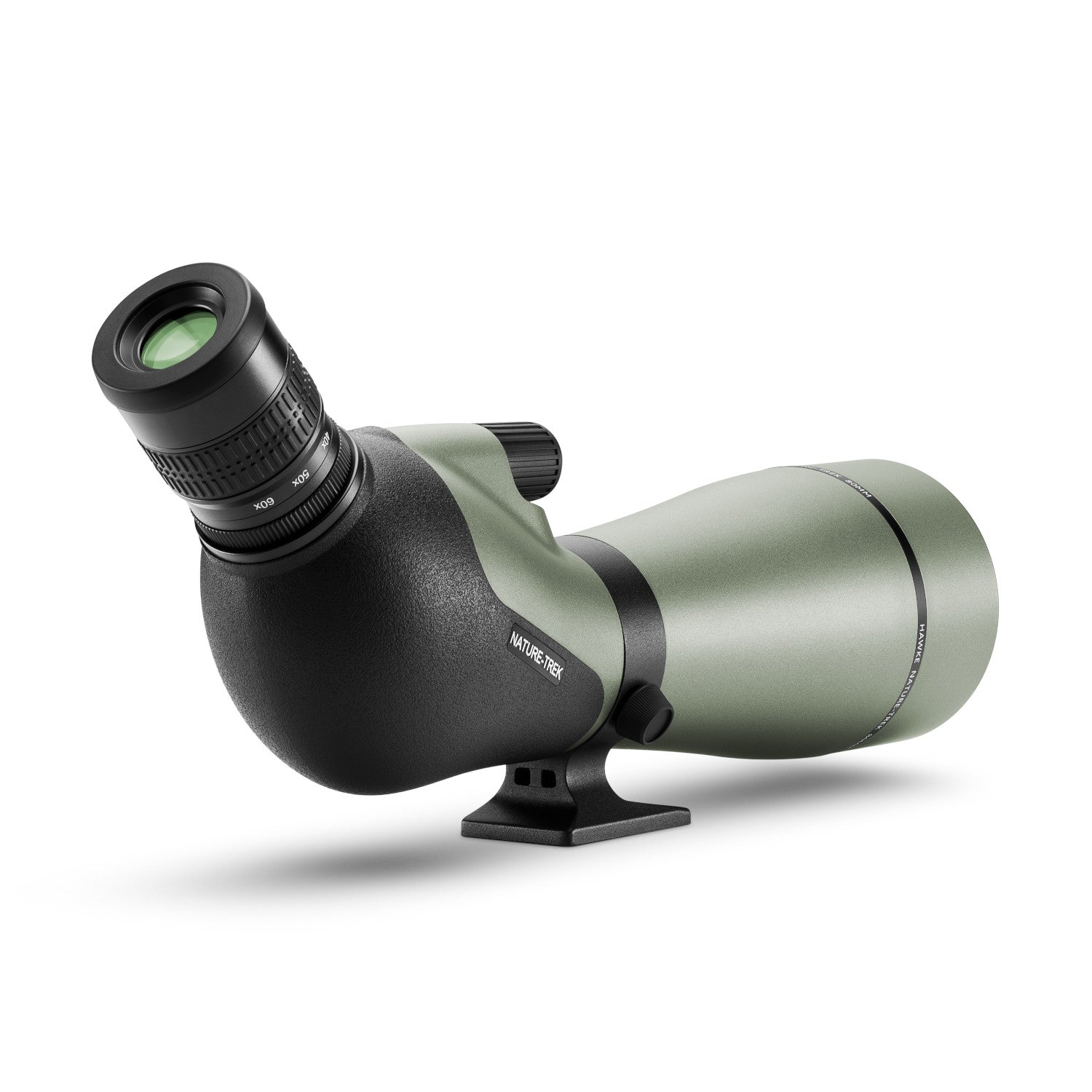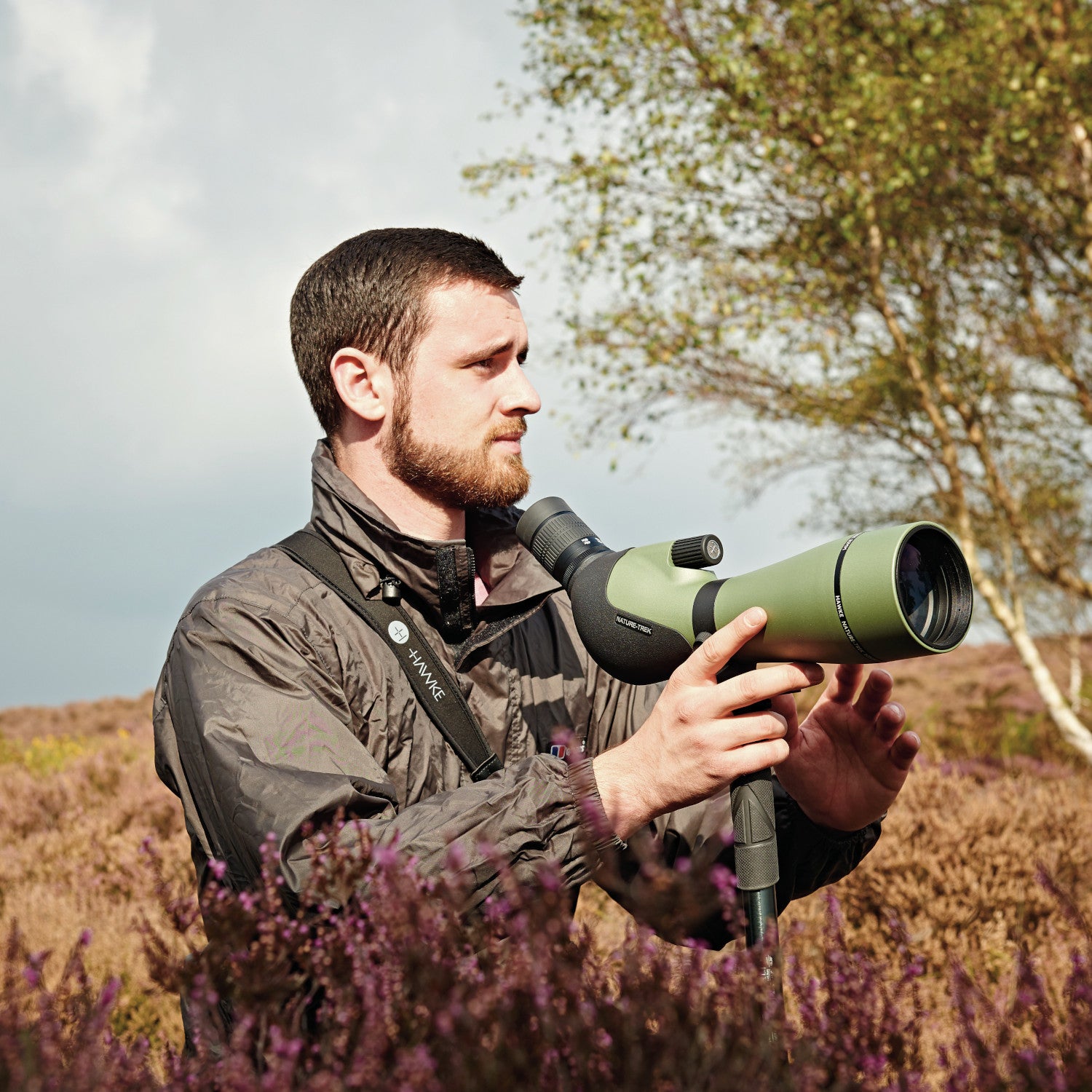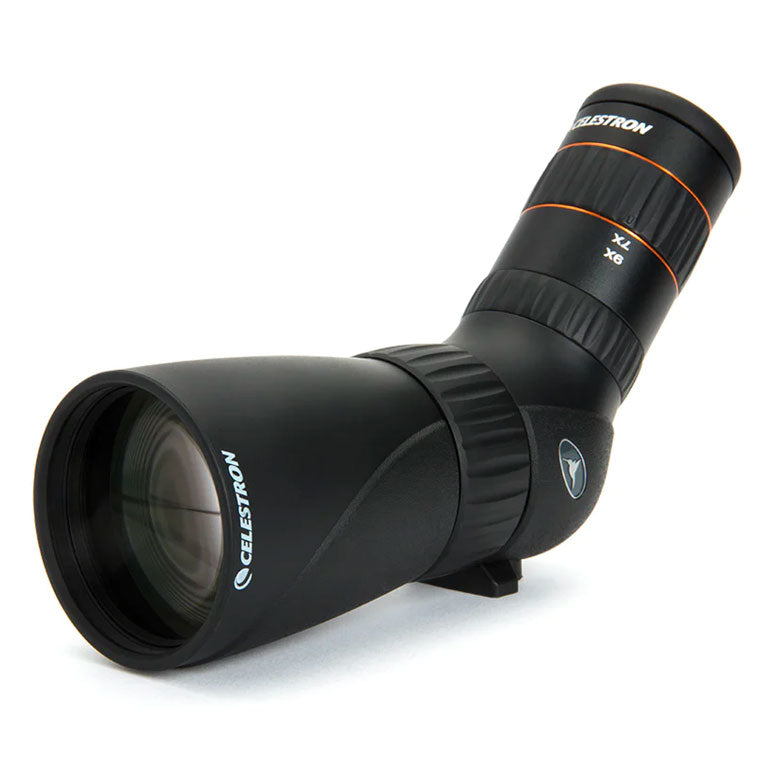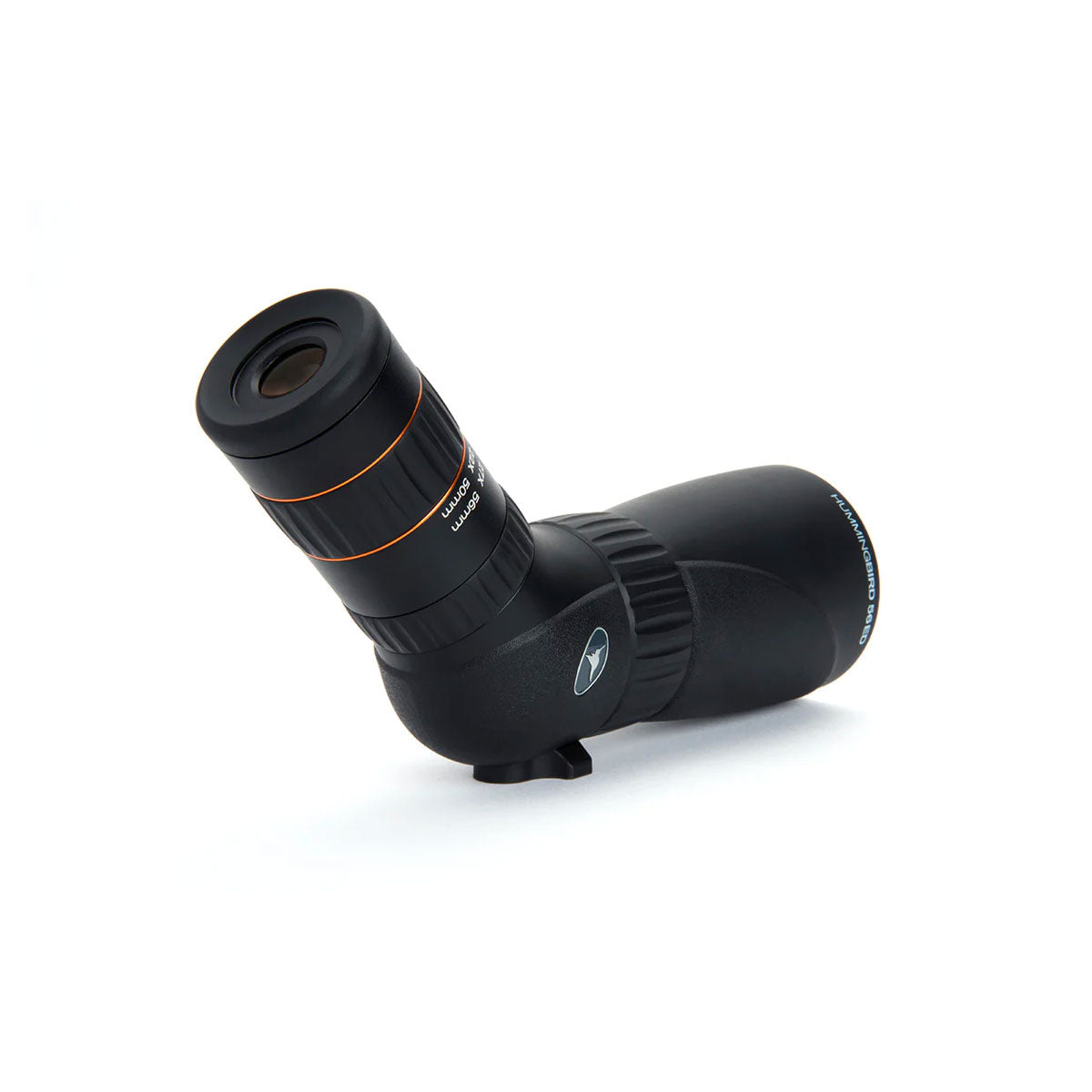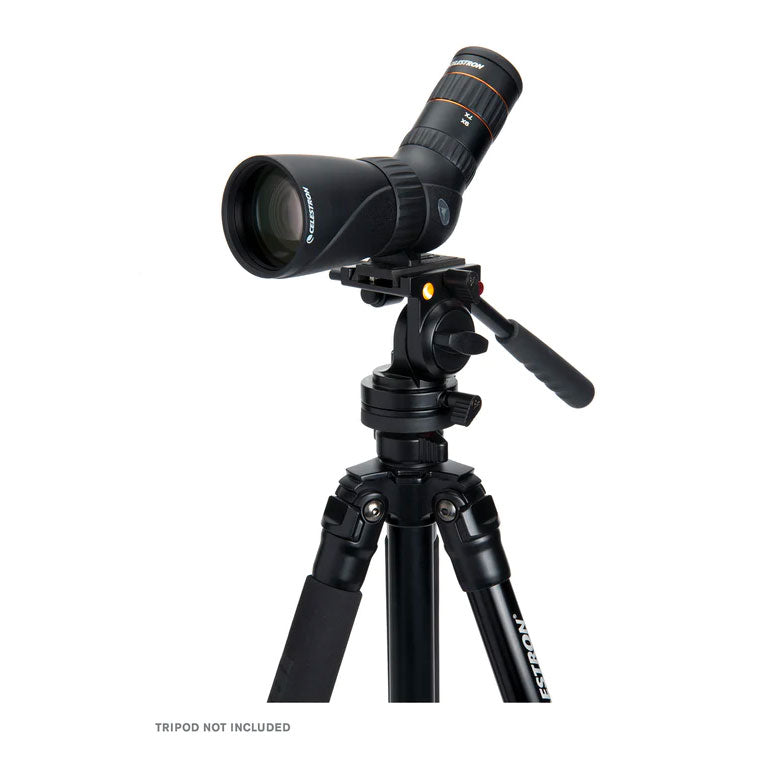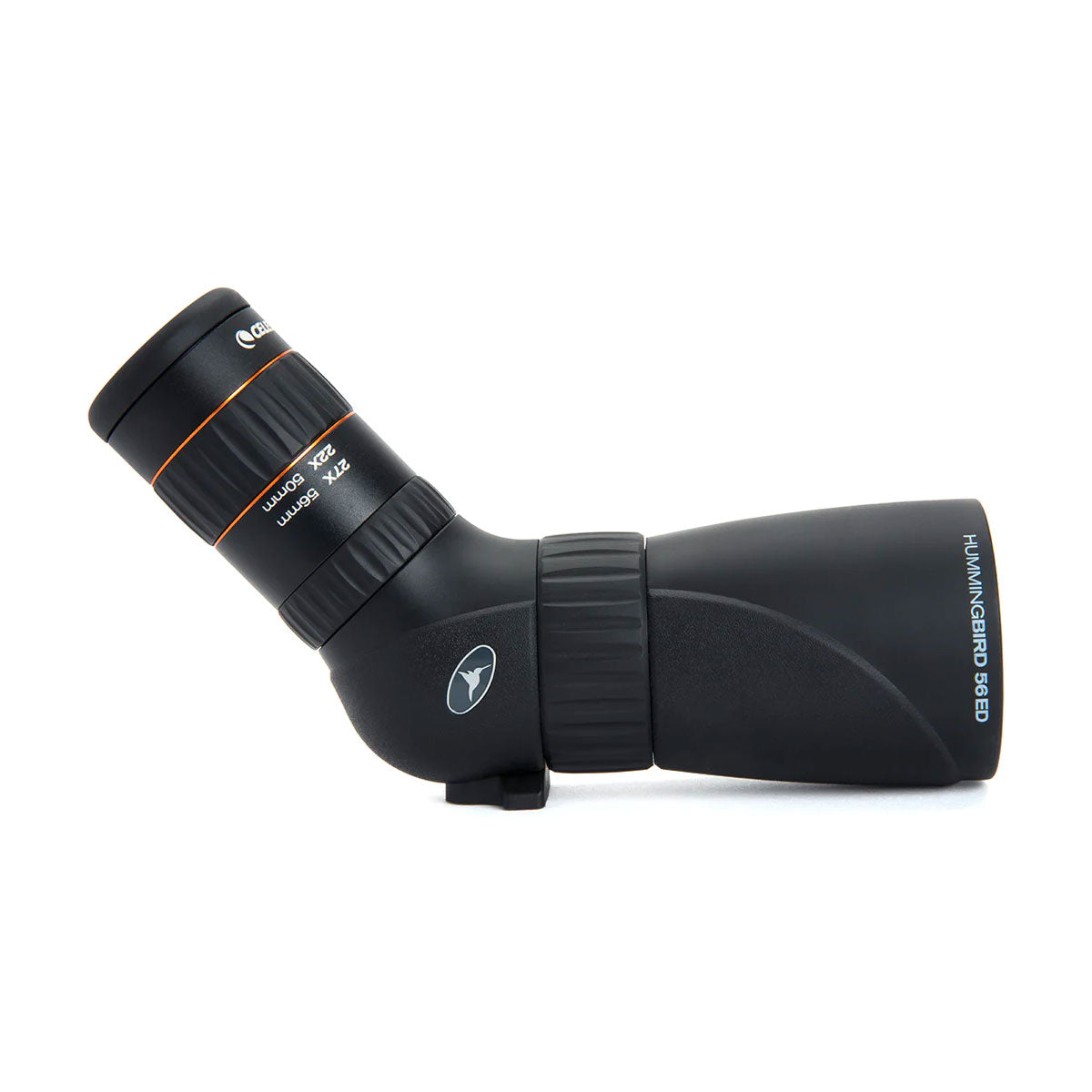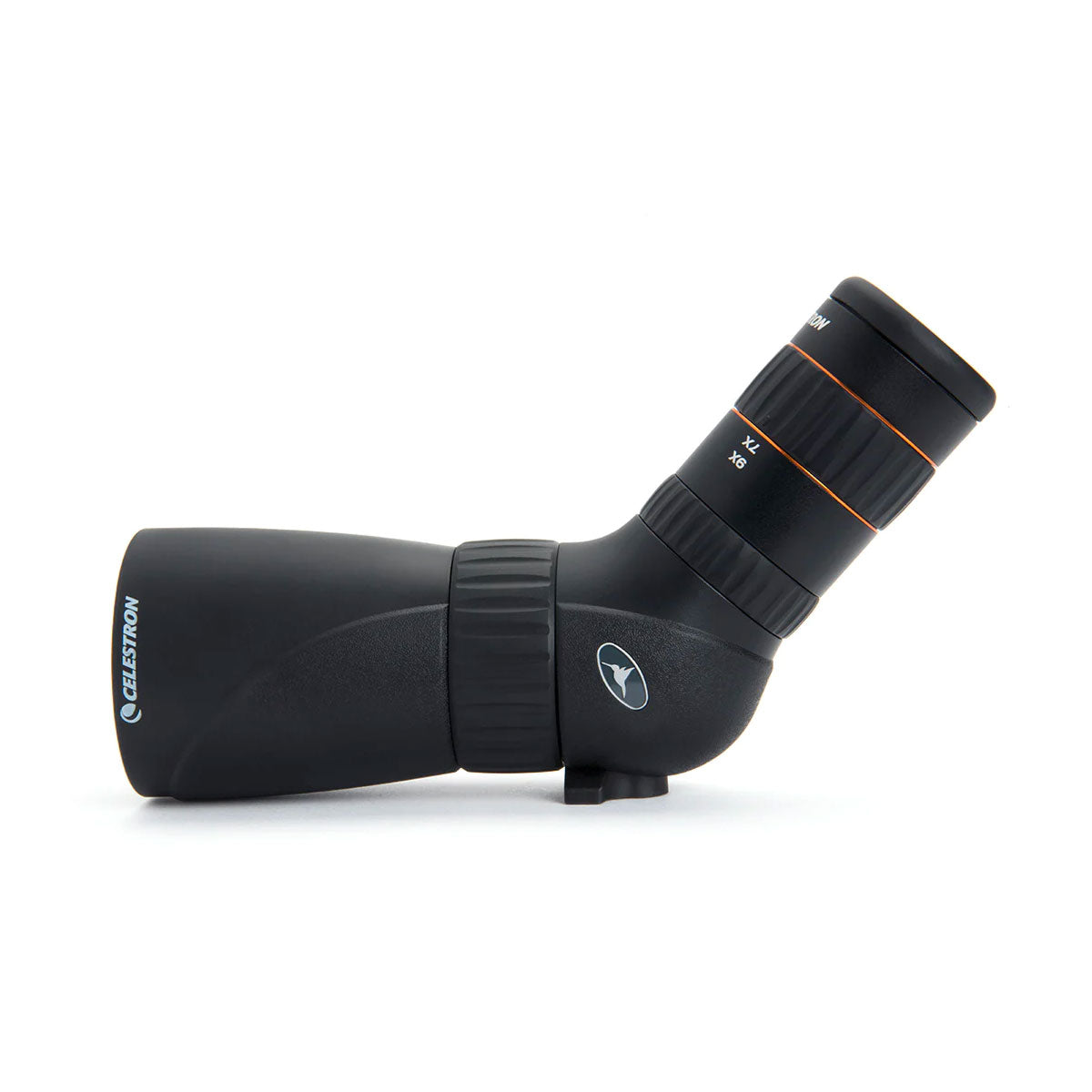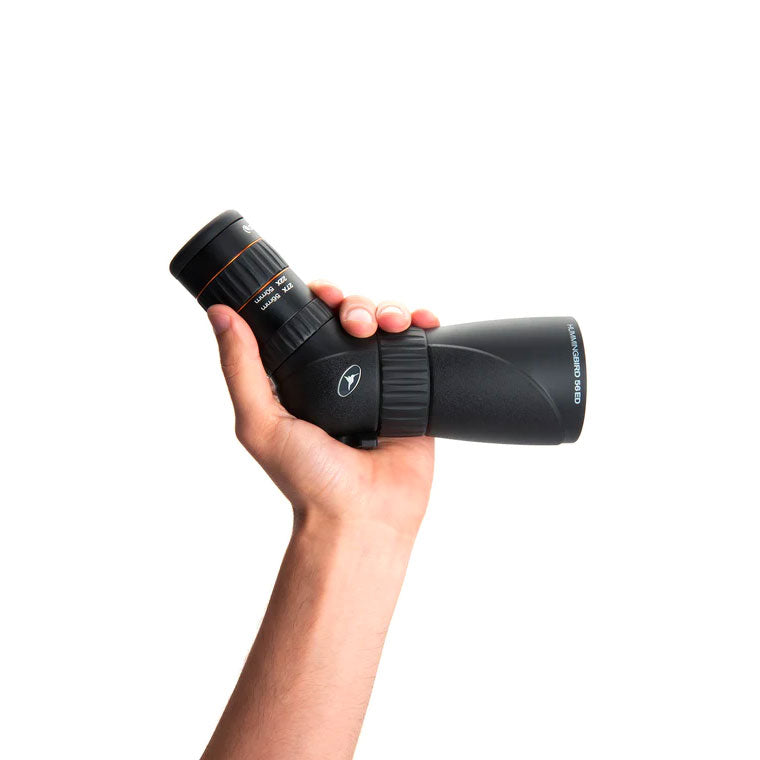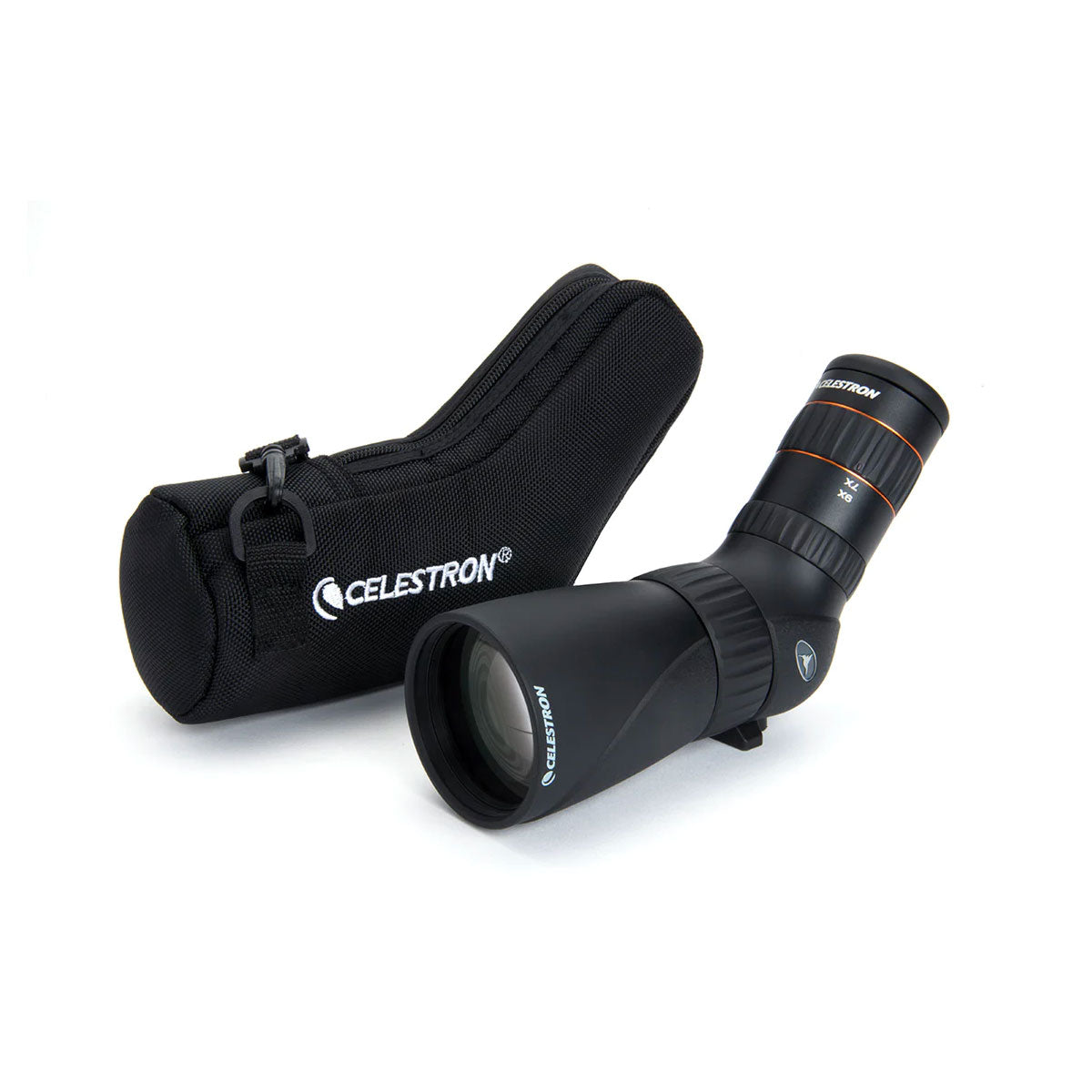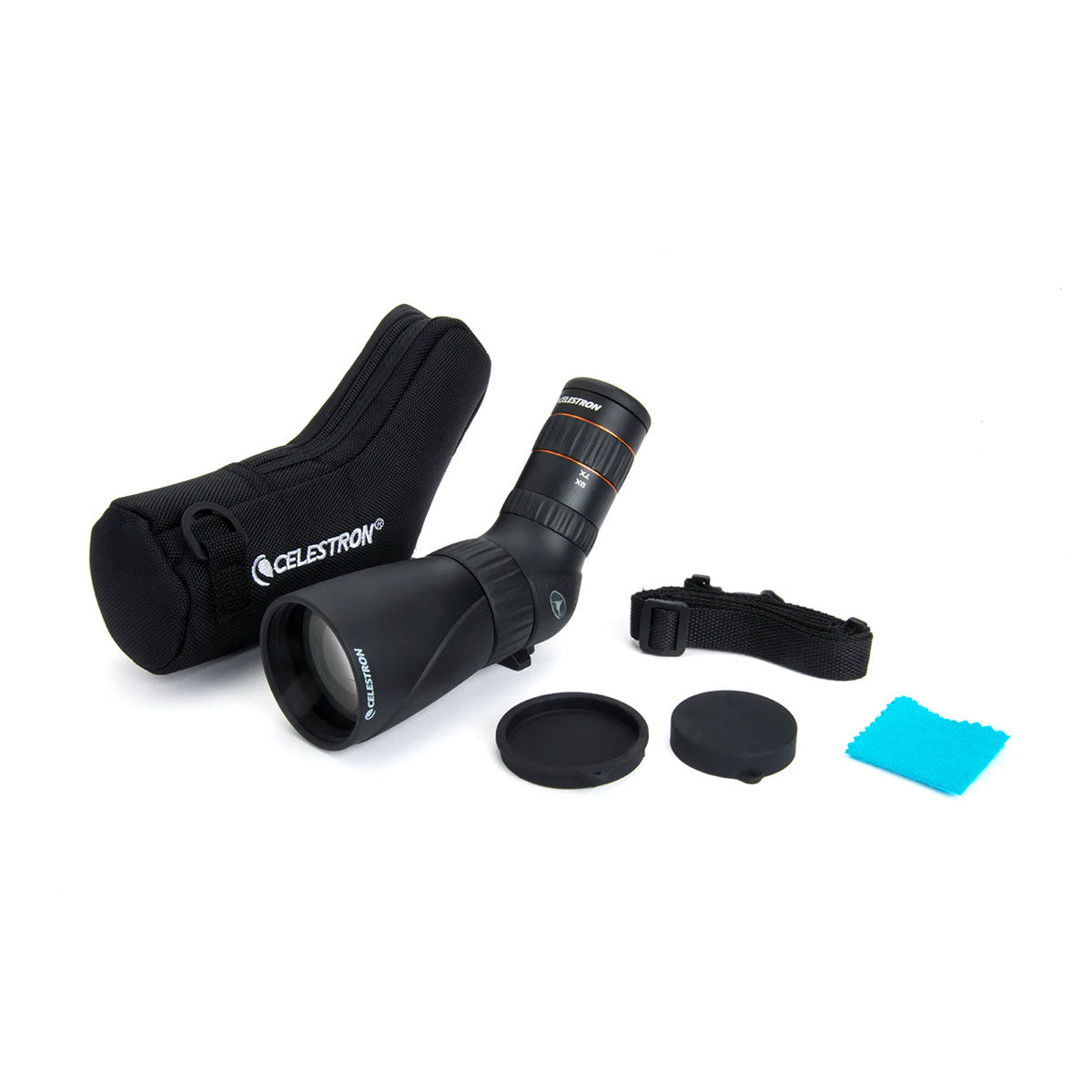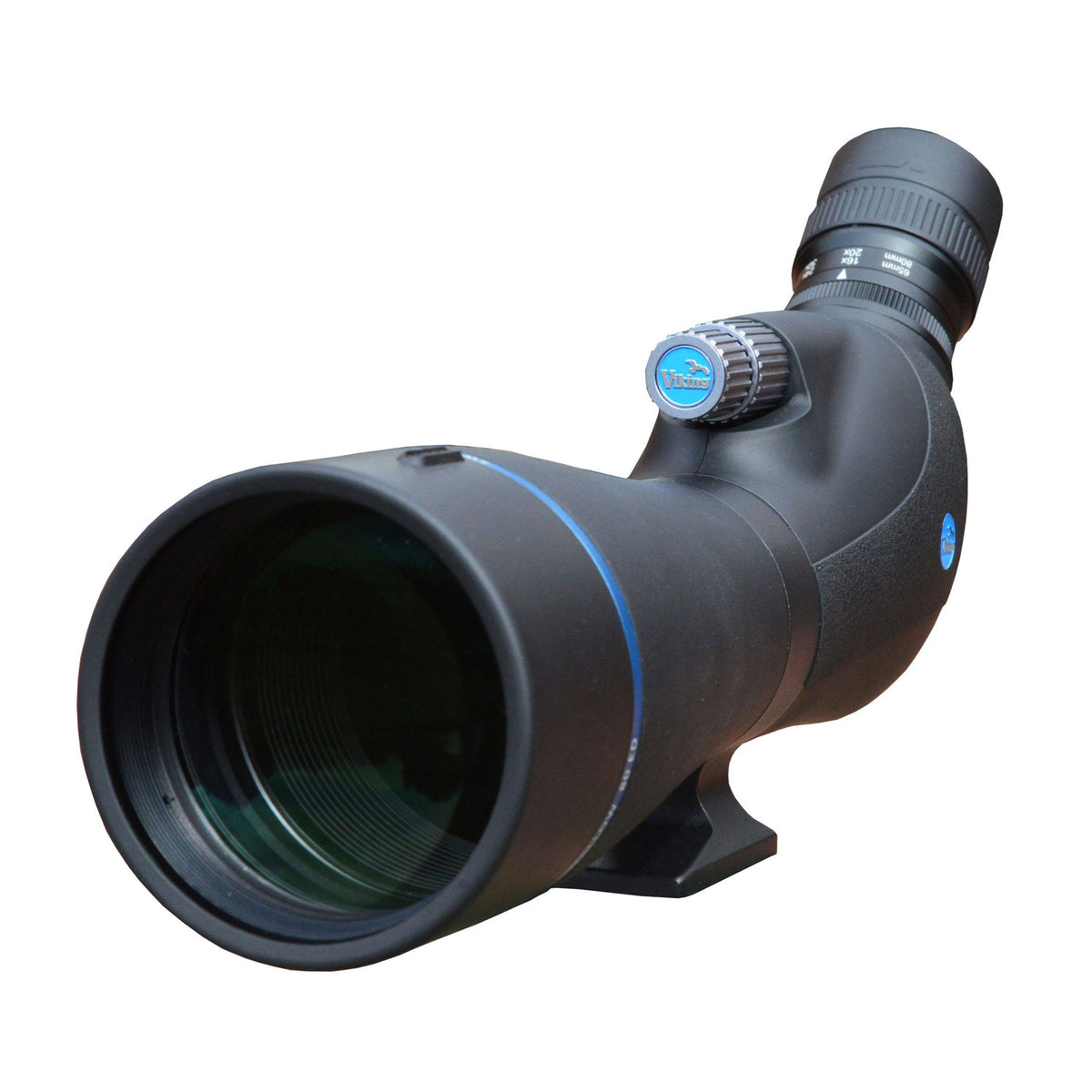
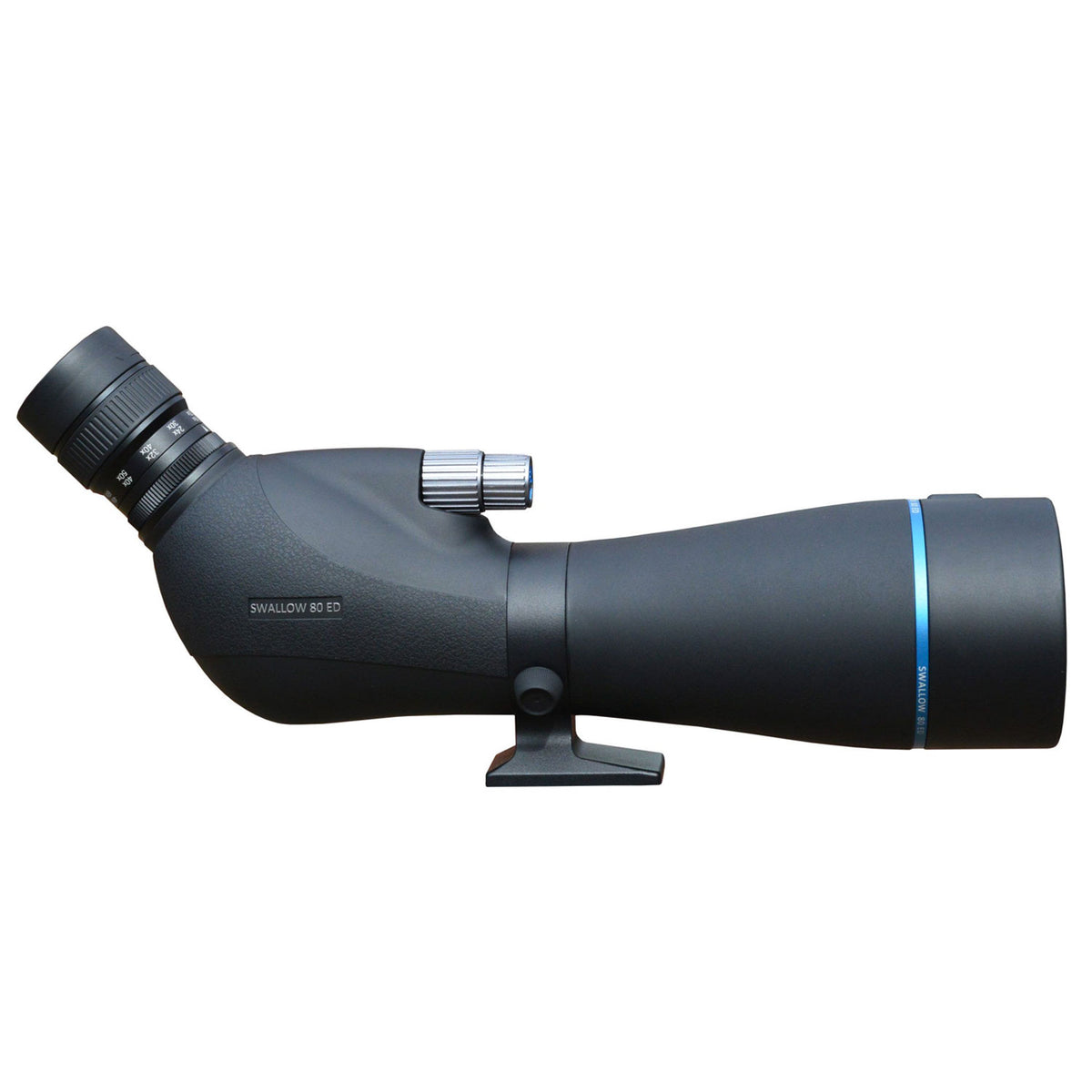
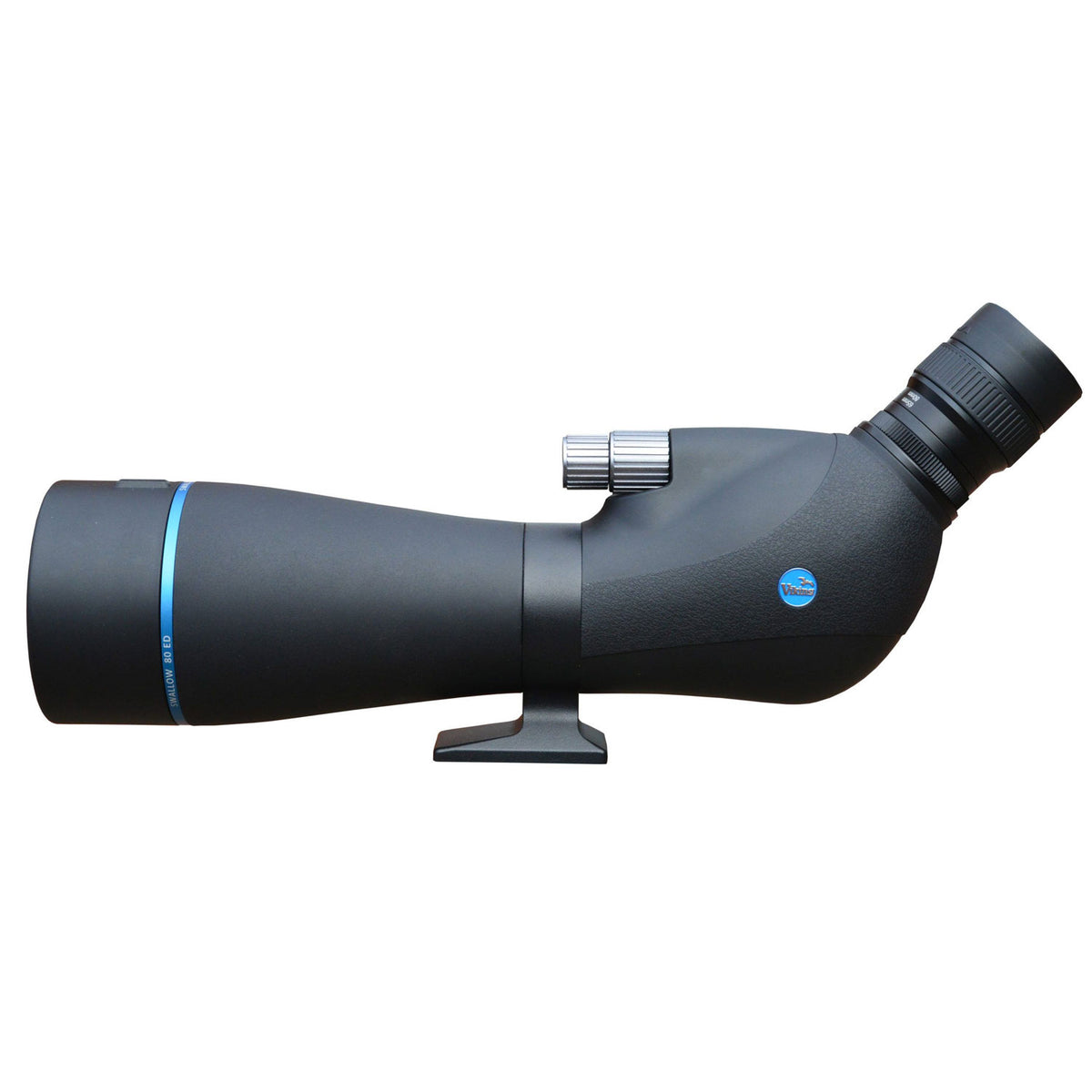
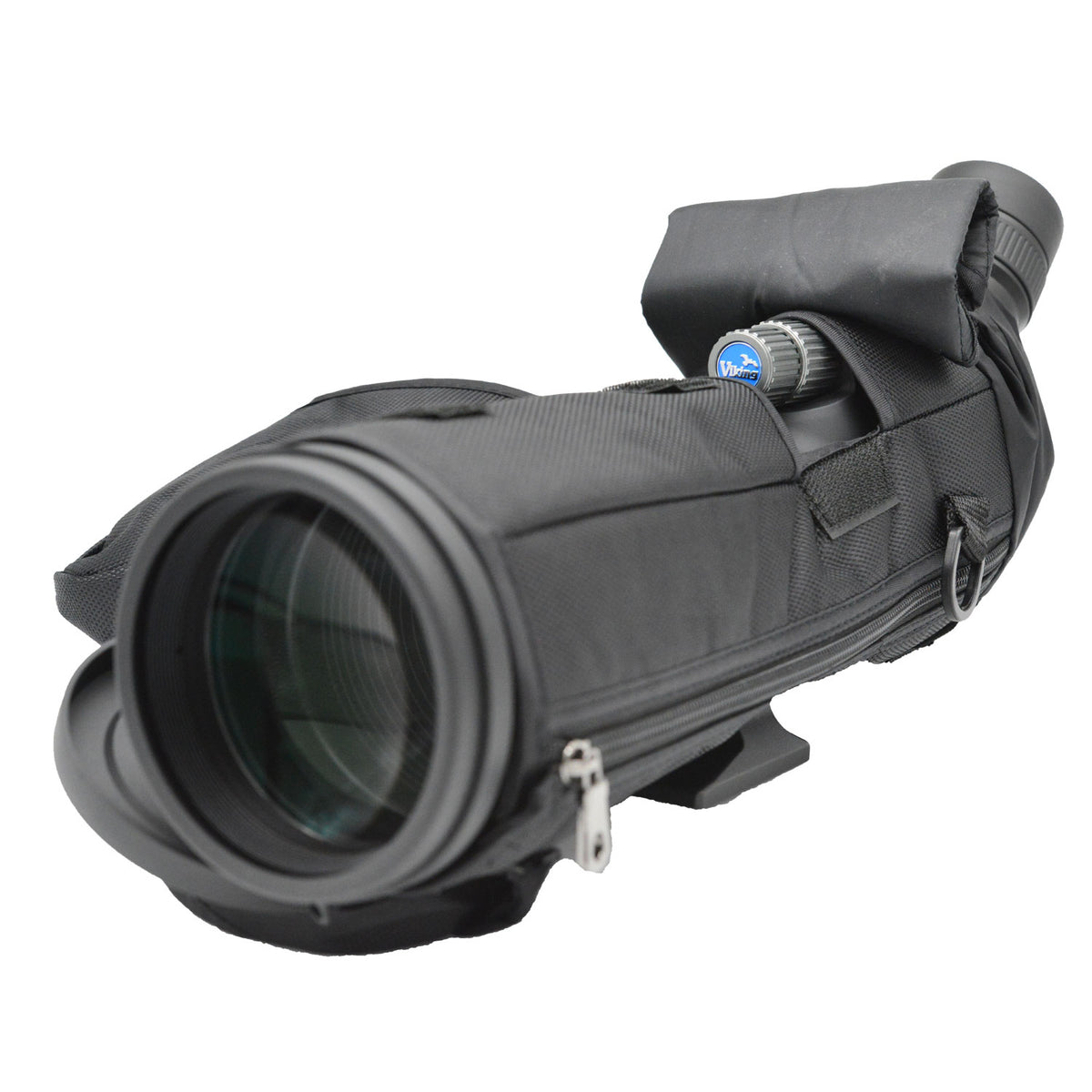
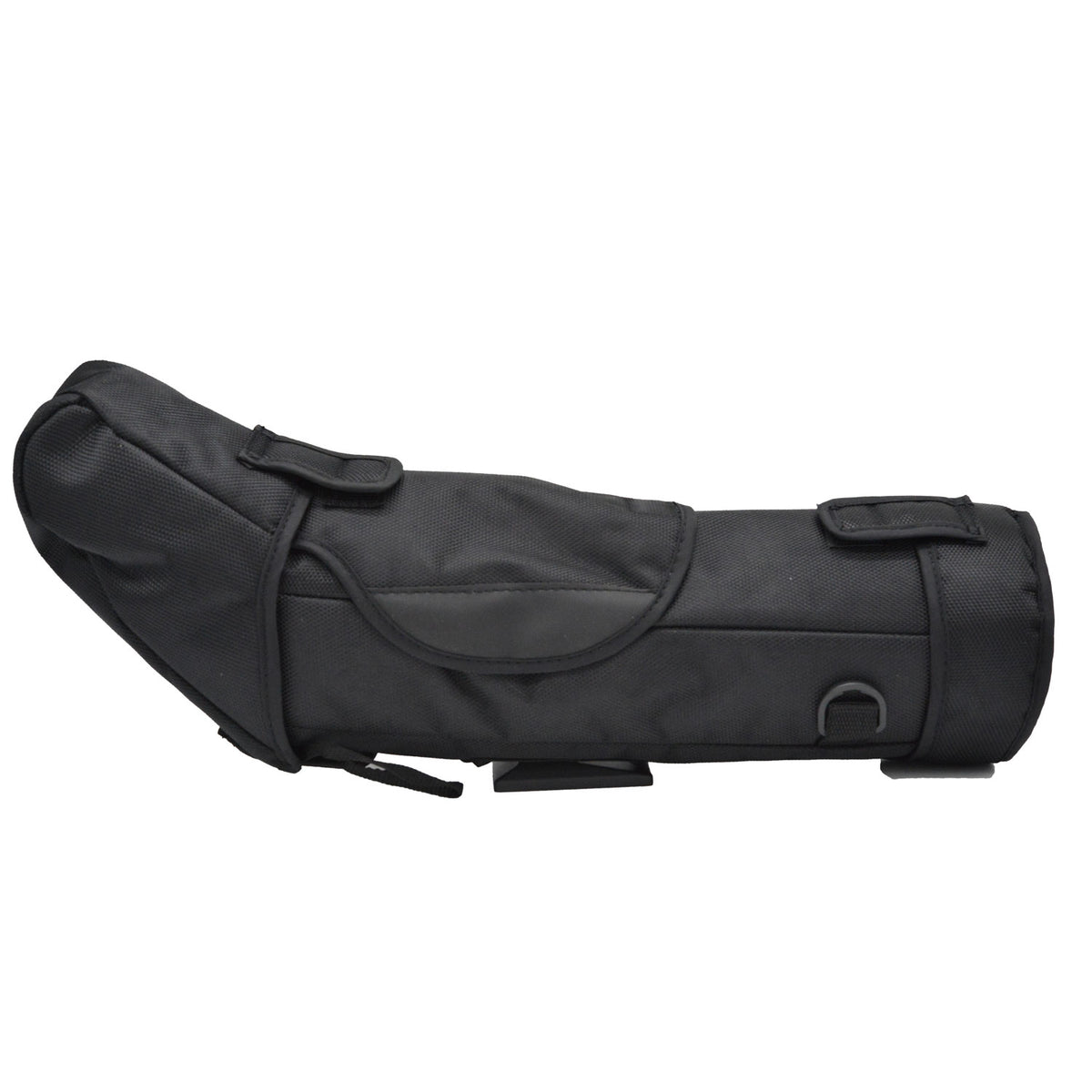
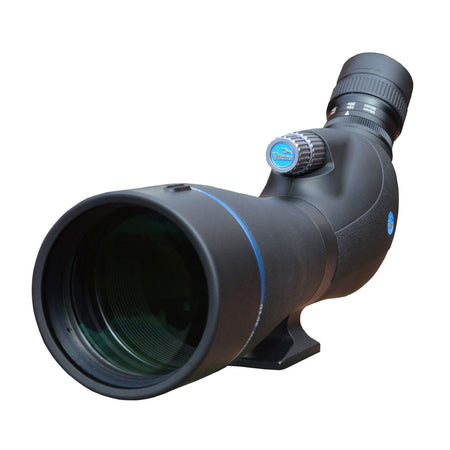
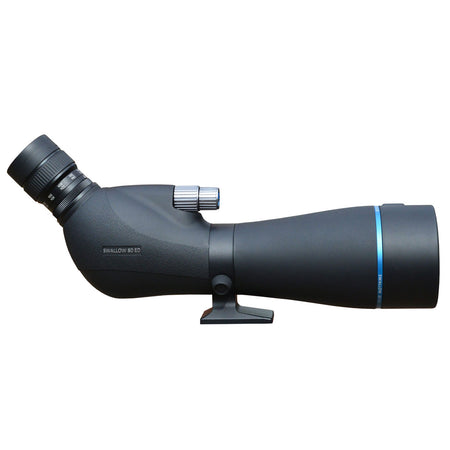
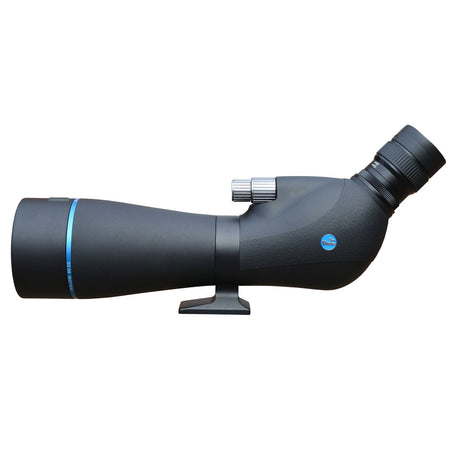
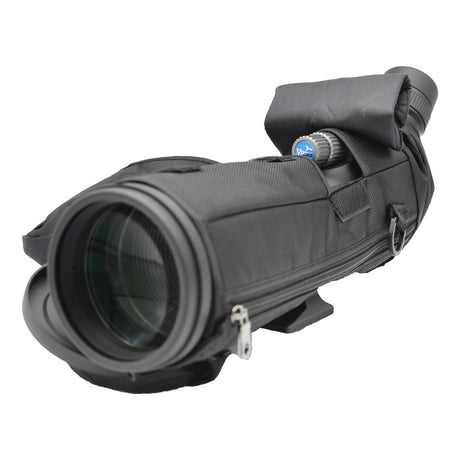
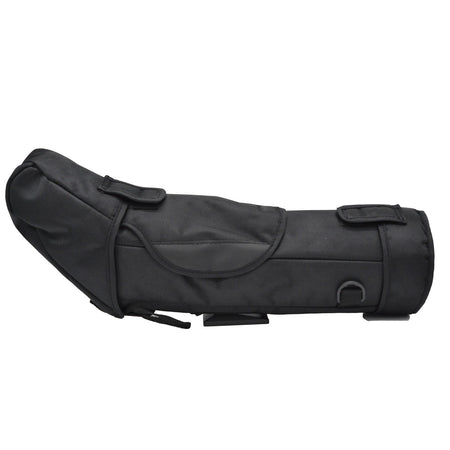
Viking Swallow ED 80mm Spotting Scope
Regular price
£509.00
Our Verdict: The Swallow ED delivers top-class performance without the four-figure price tag you can normally expect from the best full-sized Spotting Scopes!
- Extra-low dispersion (ED) glass objective elements
- A lightweight, but robust polycarbonate body material
- Dual focus wheels with different gearing
Our favourite Spotting Scope to use and top pick for Best Buy is the Viking Swallow ED. Available with an 80mm objective lens or with 65mm the Swallow ED’s strike the perfect balance between price and performance. Equipped with high-quality ED glass and fully multi-coated lenses, the Swallow ED Spotting Scope has the specification of even pricier models. The dual-focus wheel works like a dream, smooth and precise and the quality of the image is impressive. We tested during daytime and at dusk and this was head and shoulders above everything within it’s price range. Nitrogen-filled and fully waterproof, they are supplied with a rain cover so suitable for rainy outings. If you’re looking for the Best Spotting Scope but not prepared to break into 4-figures for the top-of-the-range models then this isn’t going to disappoint.
More Options Available:
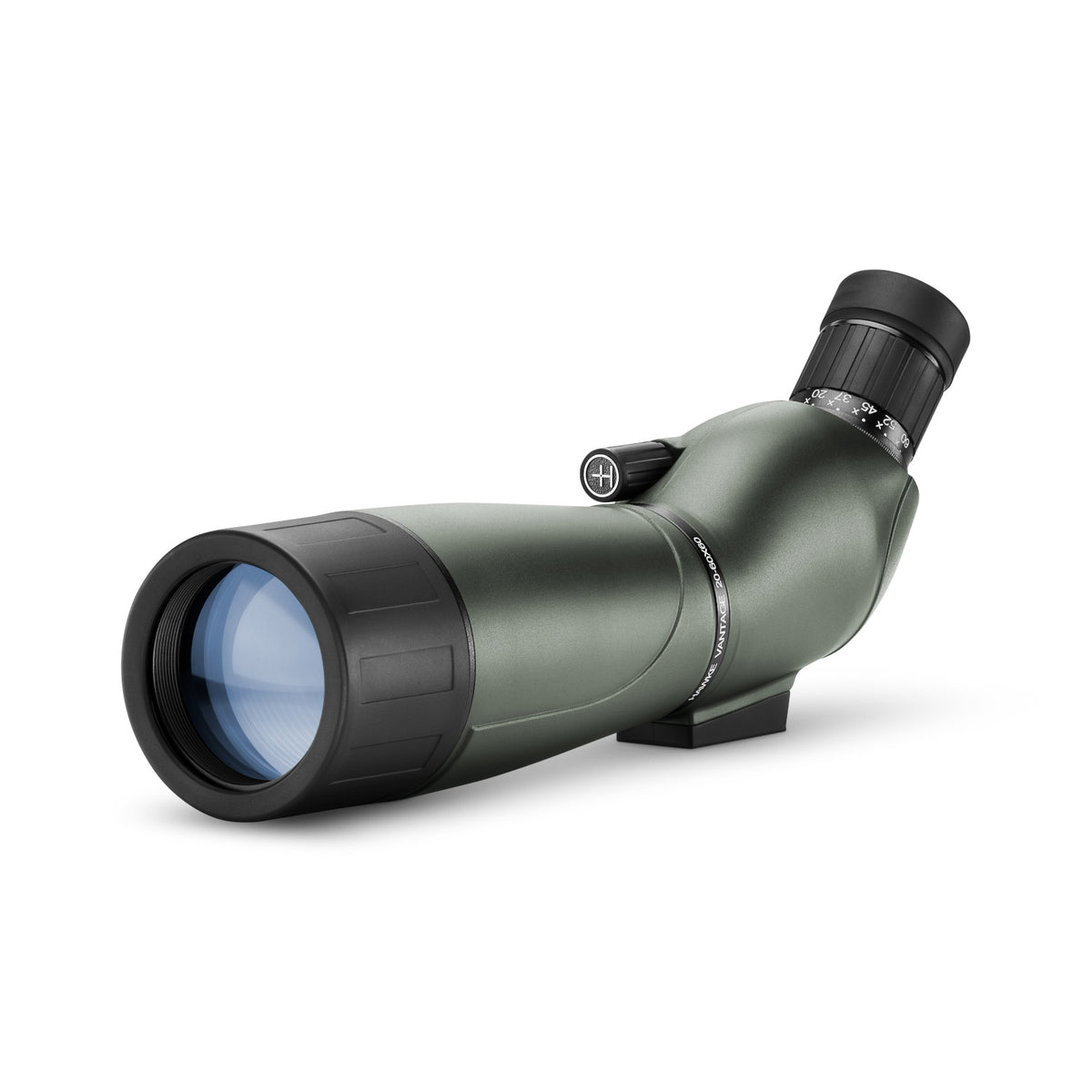
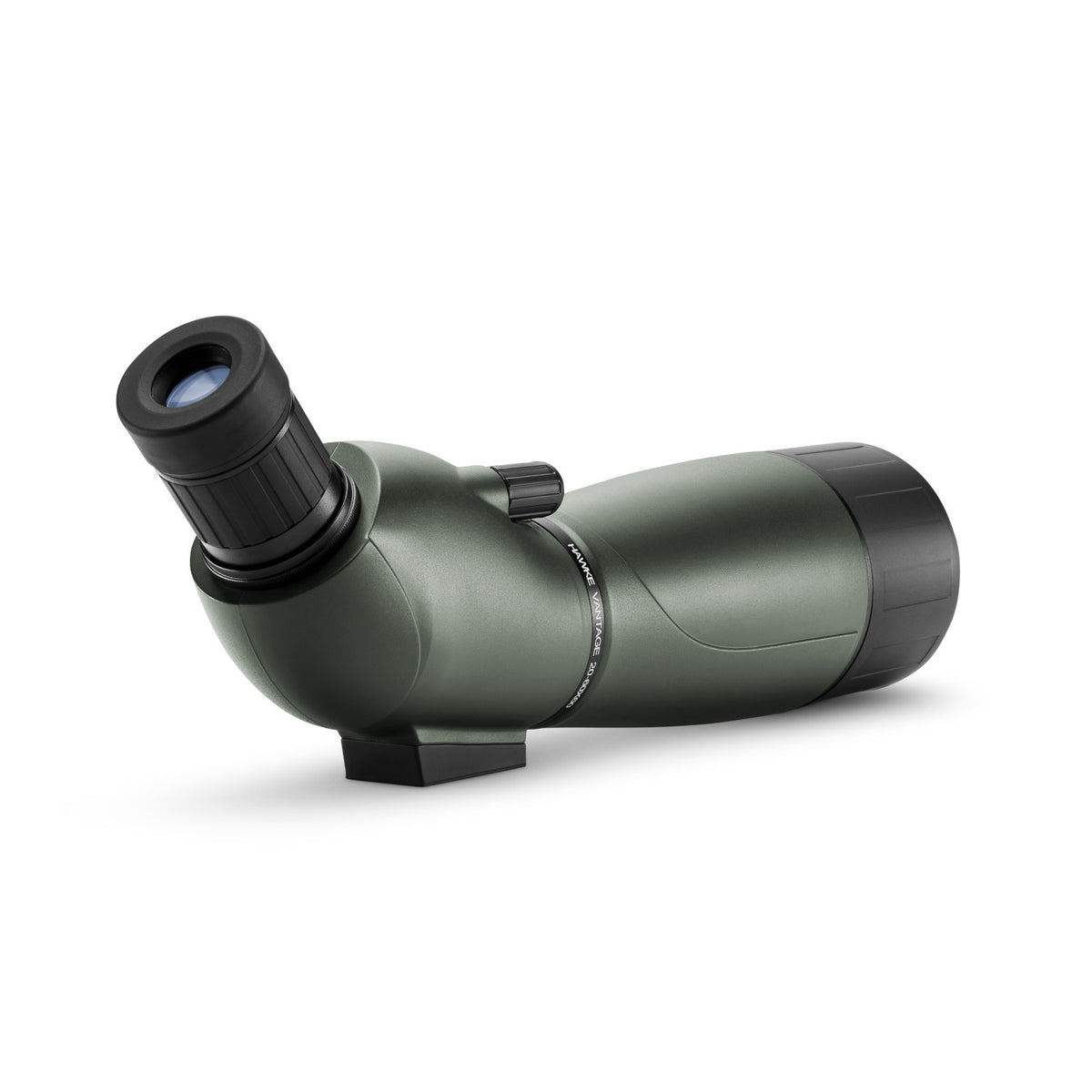
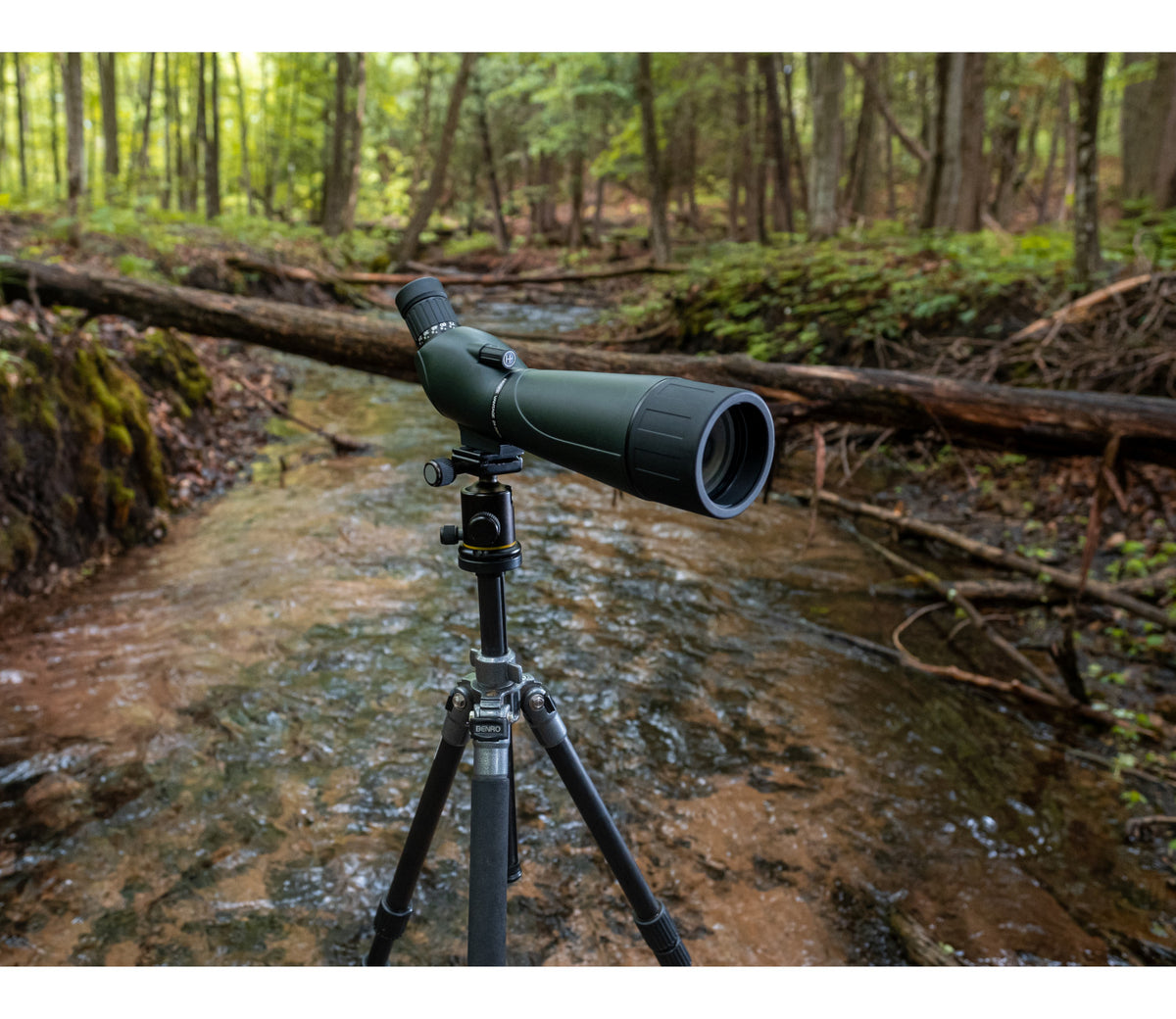
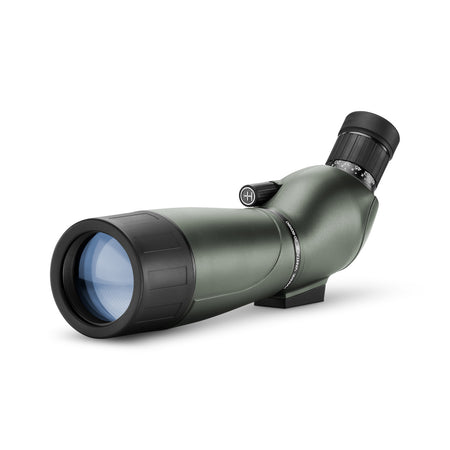
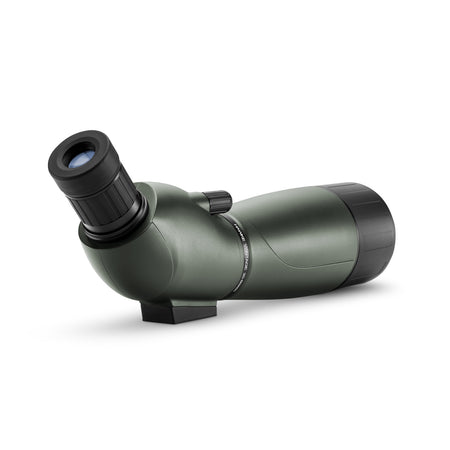
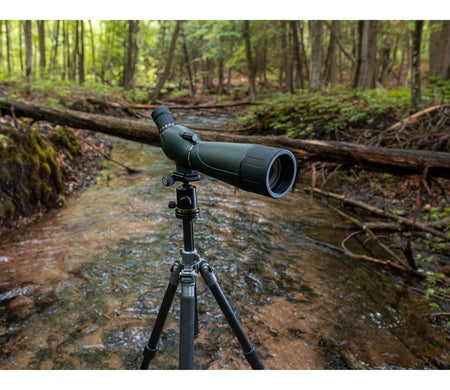
Hawke Vantage 20-60x60 Angled Spotting Scope
Regular price
£169.00
Our Verdict: The perfect option for your first spotting scope!
- BK-7 Porro Prisms For Intense Colour And Contrast
- Fully Multi-Coated Optics To Produce Sharp Images
- Close Focus From 7m
The Hawke Vantage scopes are a fantastic piece of equipment that comes with all the kit that a beginner would need. Including a hard carry case, which provides brilliant protection, and it's own mini tripod. Fully waterproof and fog proof, we found these scopes performed well in all weathers. Plus with the fully multi-coated lenses, the images and colours are great quality. While a little heavy in it's case, at this price point, these are our top entry level pick.
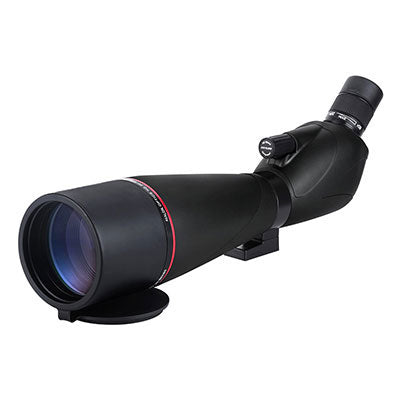
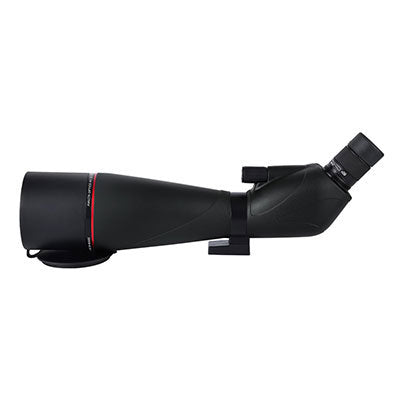
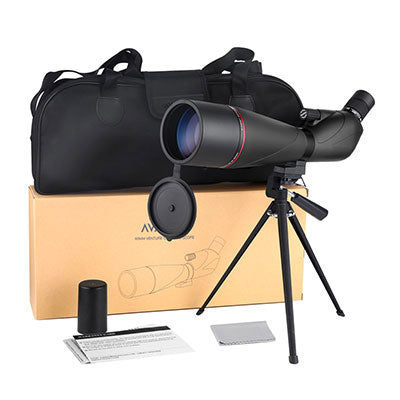
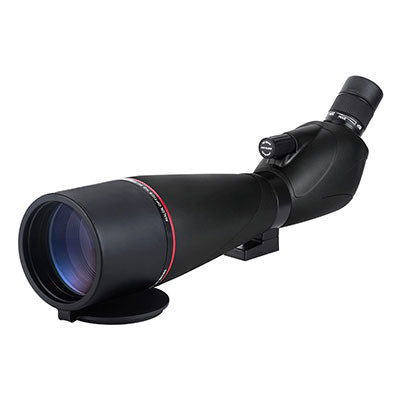
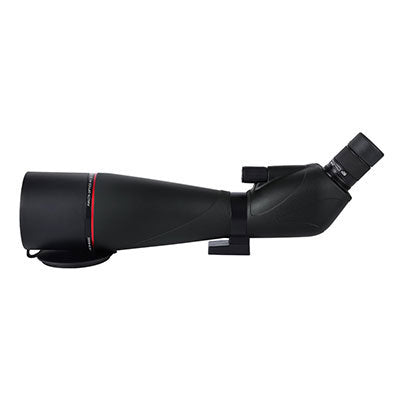
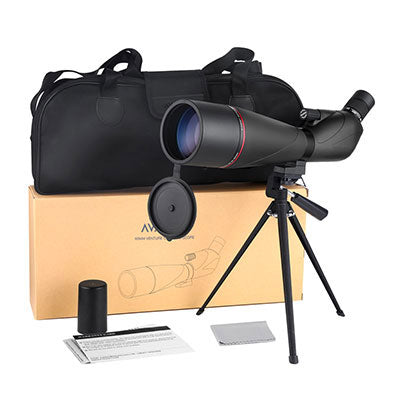
Avalon 80mm Venture HD Spotting Scope
Regular price
£399.00
Our Verdict: Another good Spotting Scope for beginners
- Large 80mm aperture for brighter images in low light conditions
- Adjustable 20x to 60x magnification for both close and long distance viewing
- The perfect multi-purpose spotting scope weighing only 2.86 pounds
Avalon have made a name for themselves as an optics brand that offers affordable quality and their Spotting Scope delivers just that. The beauty of the Venture Spotting Scope is the magnificent 80mm objective lens, which allows for wonderfully bright viewing and performs excellently in low light. The topics are fully multicoated and the clarity of images was impressive. If you’re looking for decent quality then this is a perfect choice.
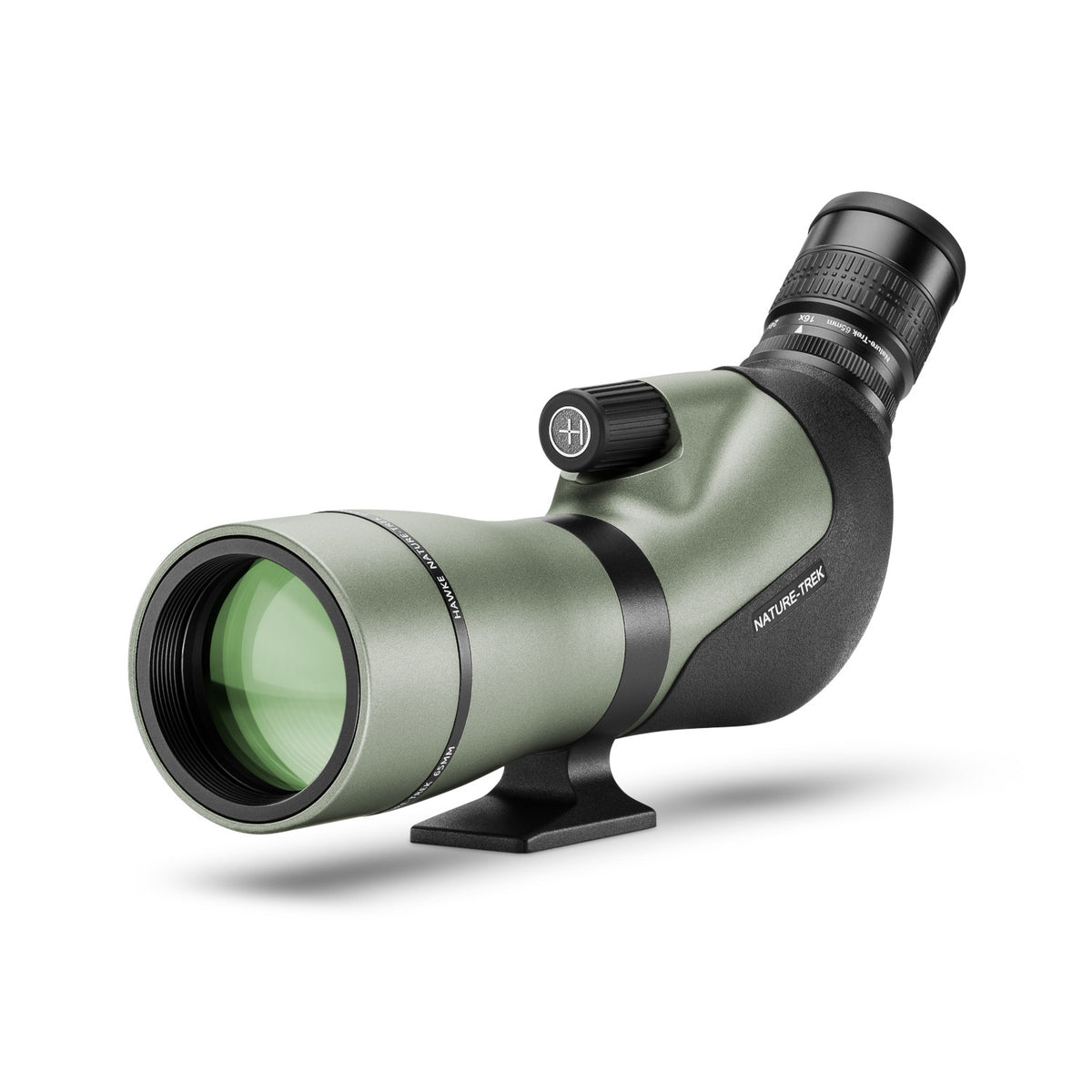
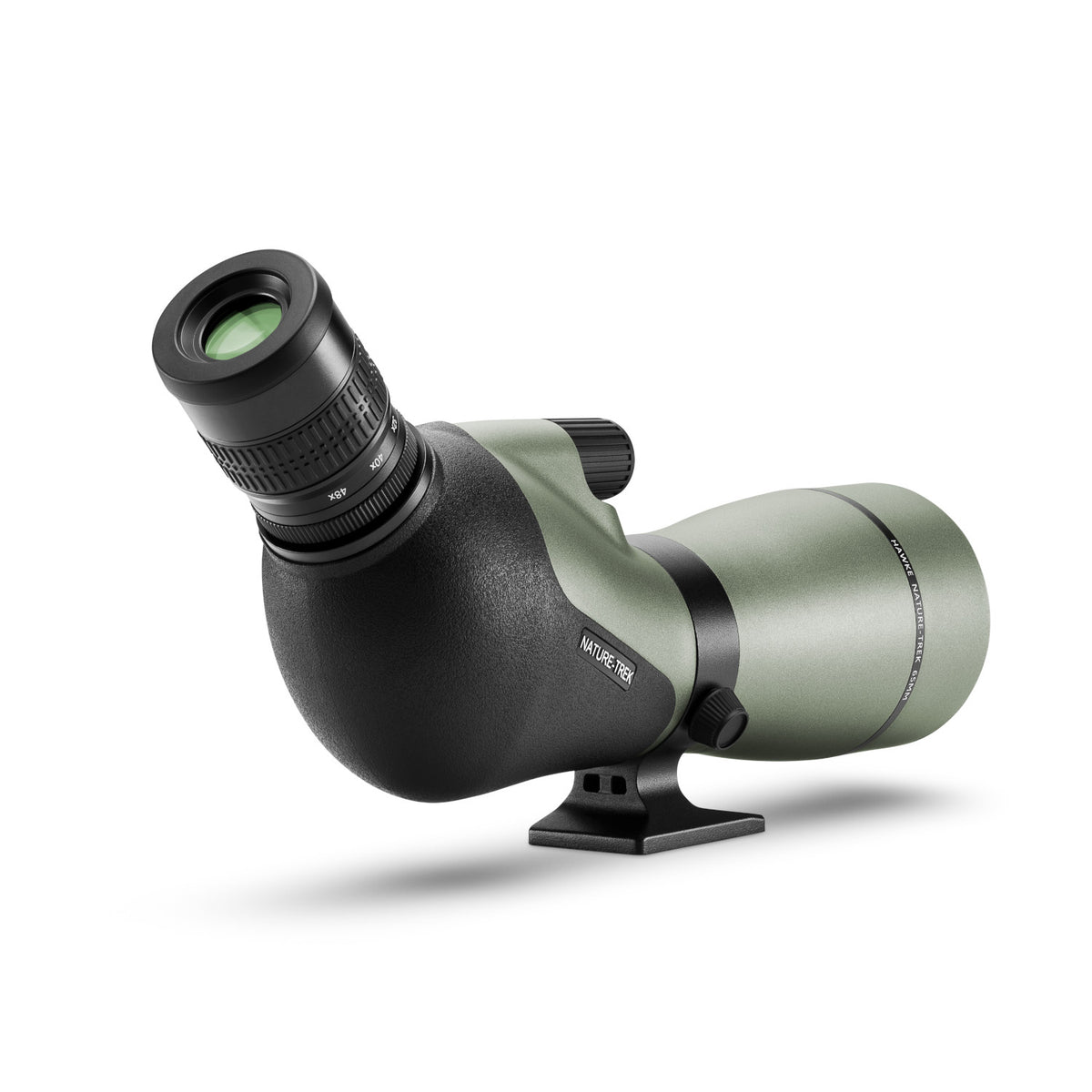
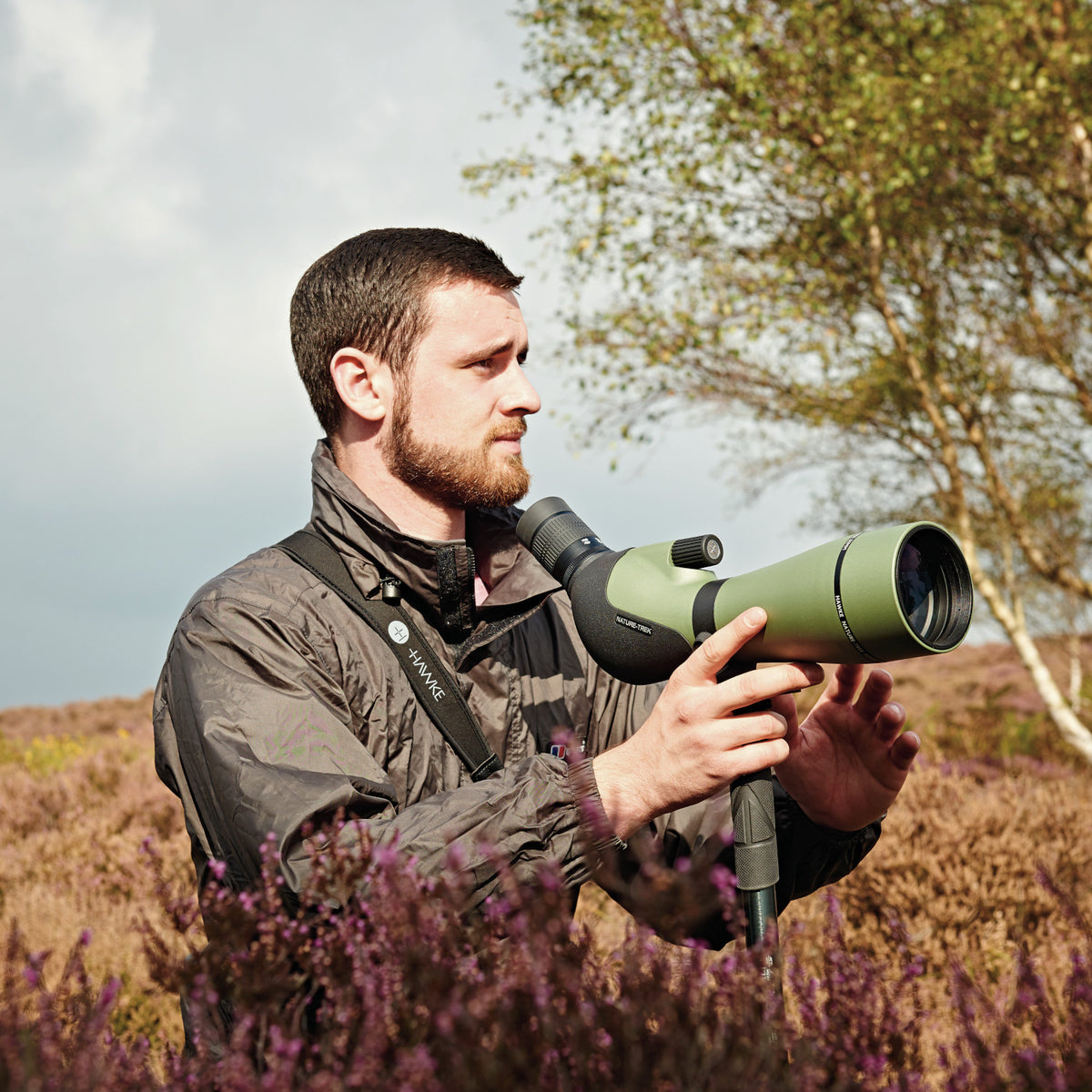
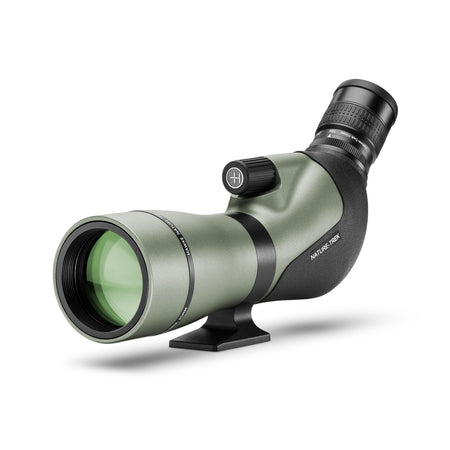
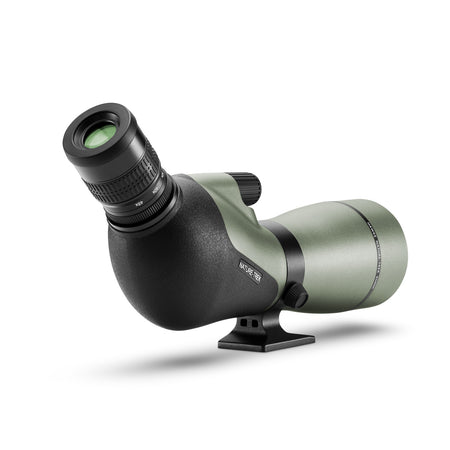
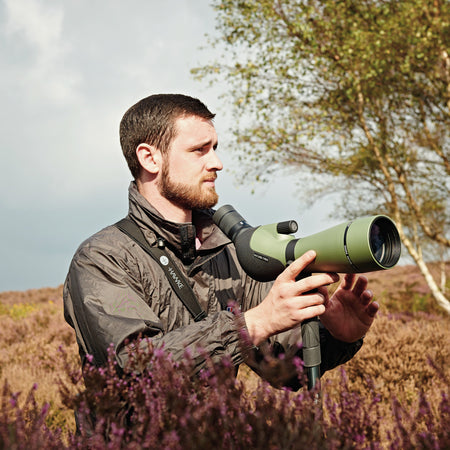
Hawke Nature-Trek 16-48x65 Angled Spotting Scope
Regular price
£279.00
Our Verdict: The perfect lightweight spotting scope
- BAK-4 Porro Prisms For Intense Colour And Contrast
- Close Focus - From 3.5m
- Rotating Body for Virtually Any Angle
The Hawke Nature-Trek 16-48x65 Angled Spotting Scope is a surprising compact and lightweight model, ideal for those looking to use the scope on the go. As with all Hawke optic products, these are waterproof and fog proof. The lenses are fully multi-coated and offer clean and bright images. These made our top 10 as they are a great mid-range scope, in a convenient size, with included soft cover, what more can you need at this pricepoint.
More Options Available:
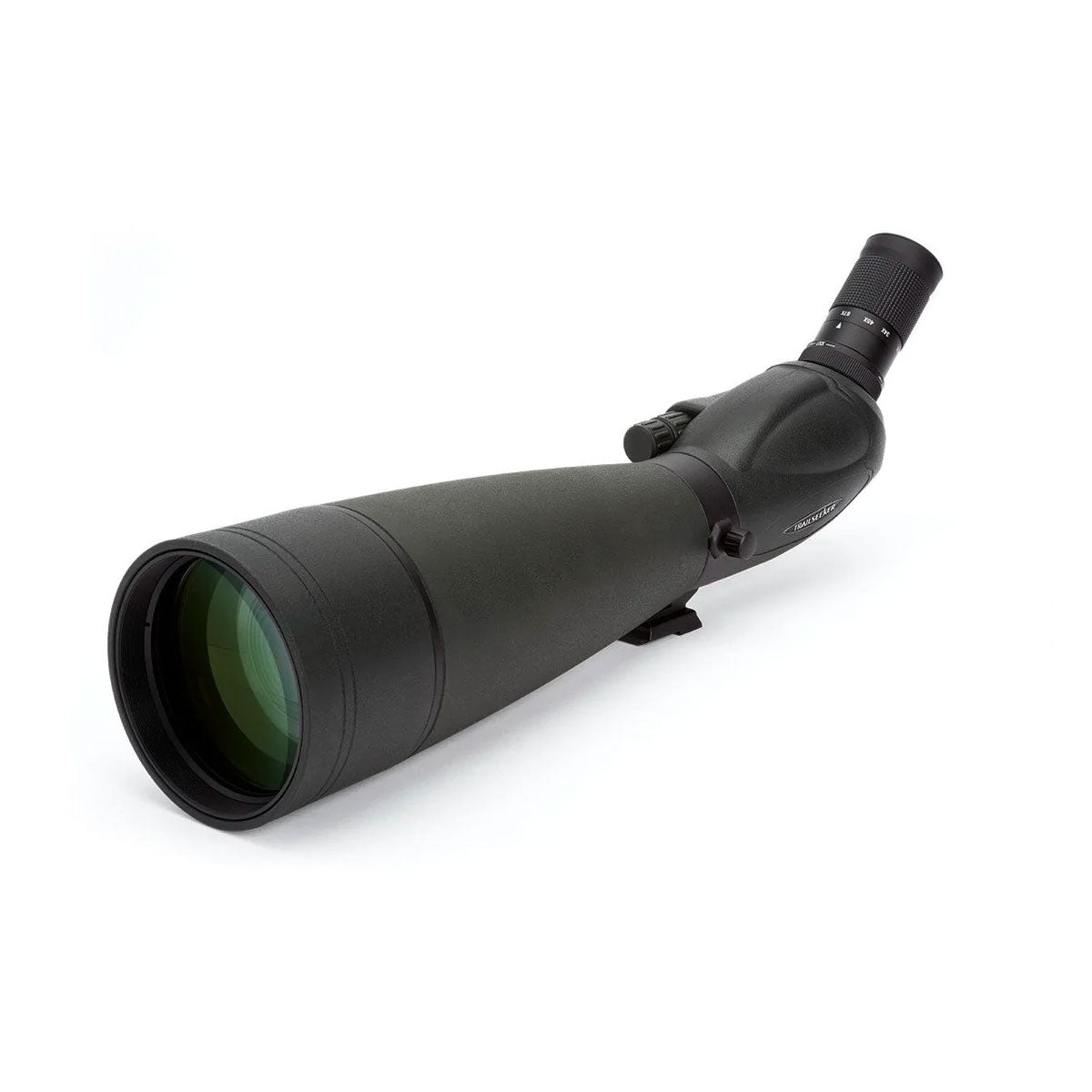
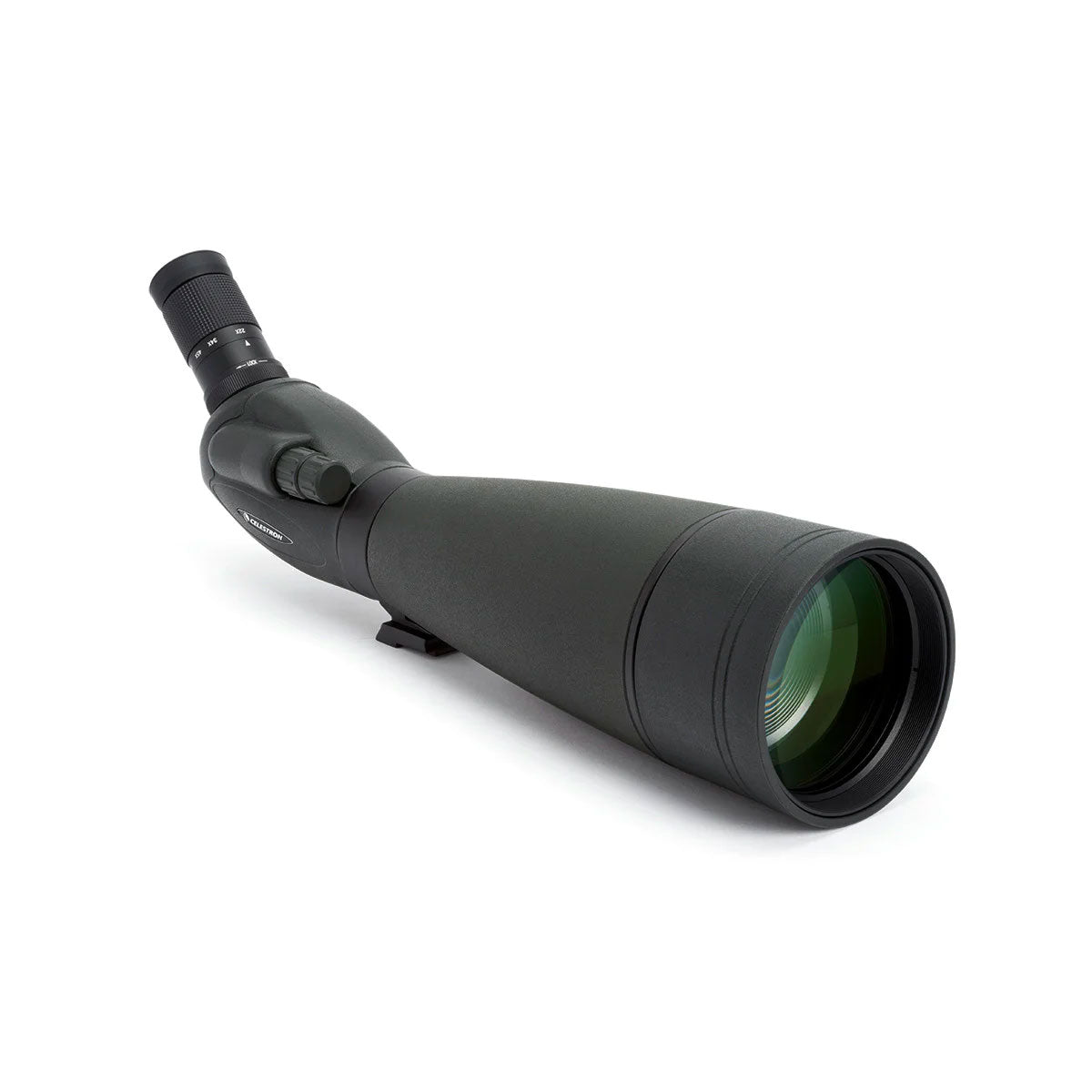
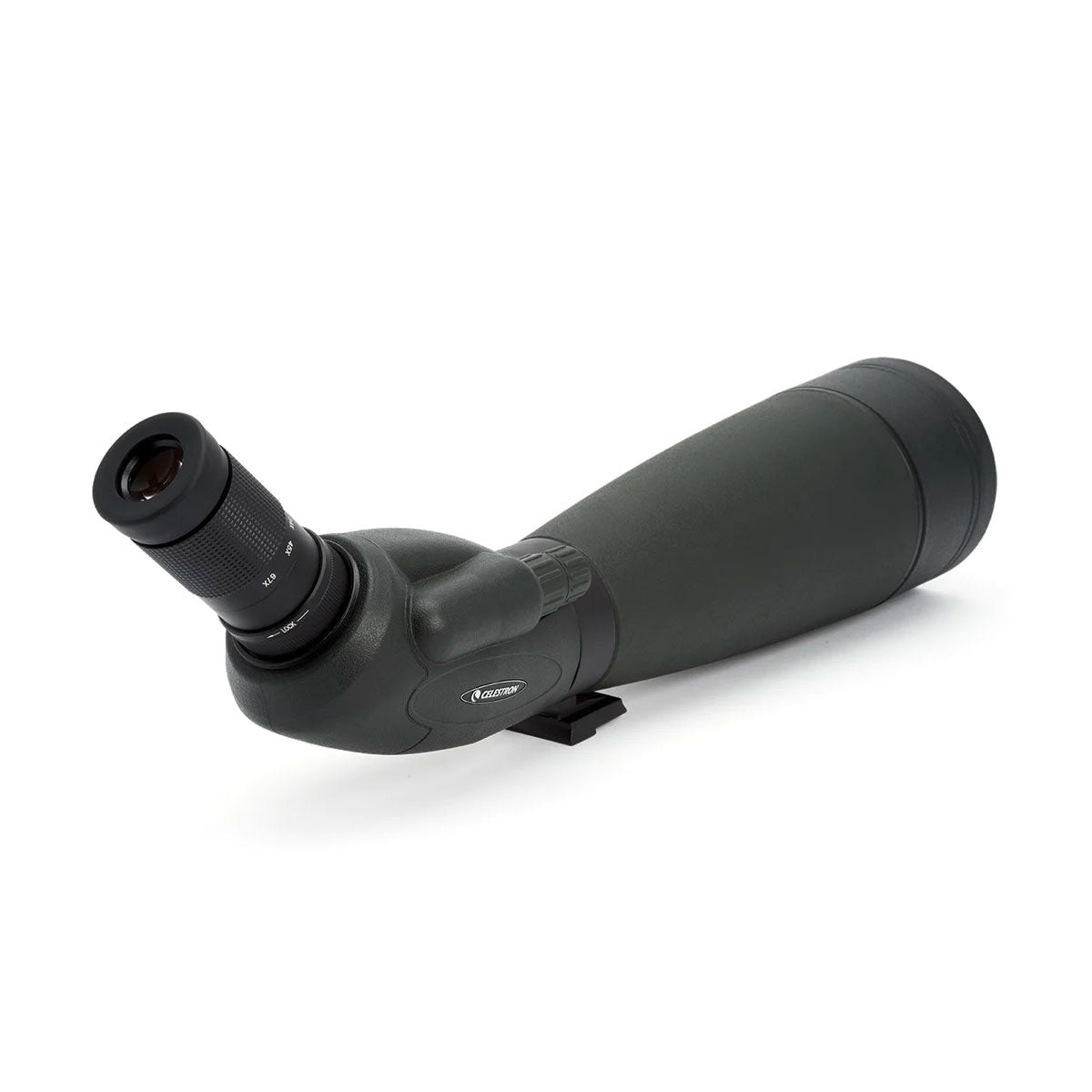
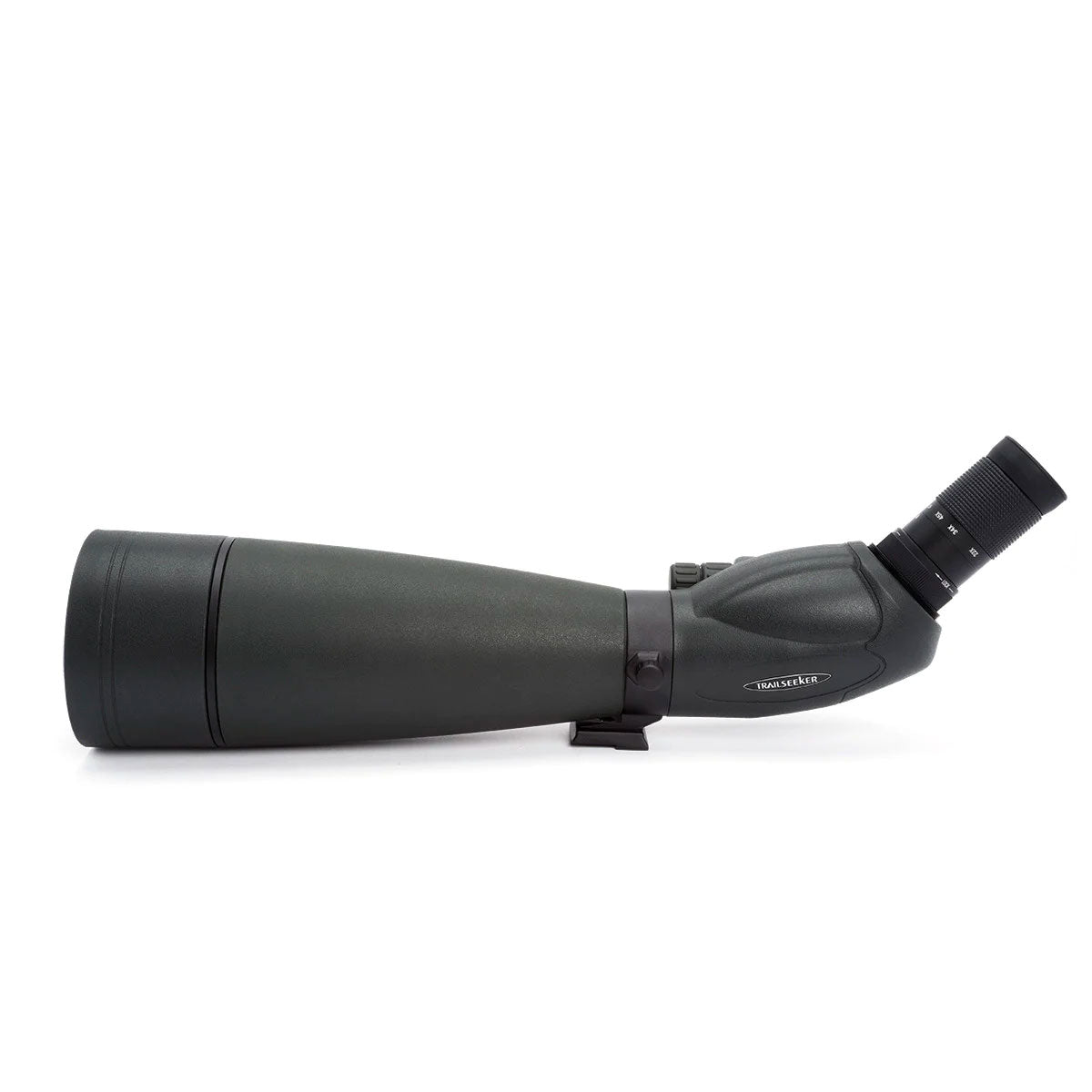
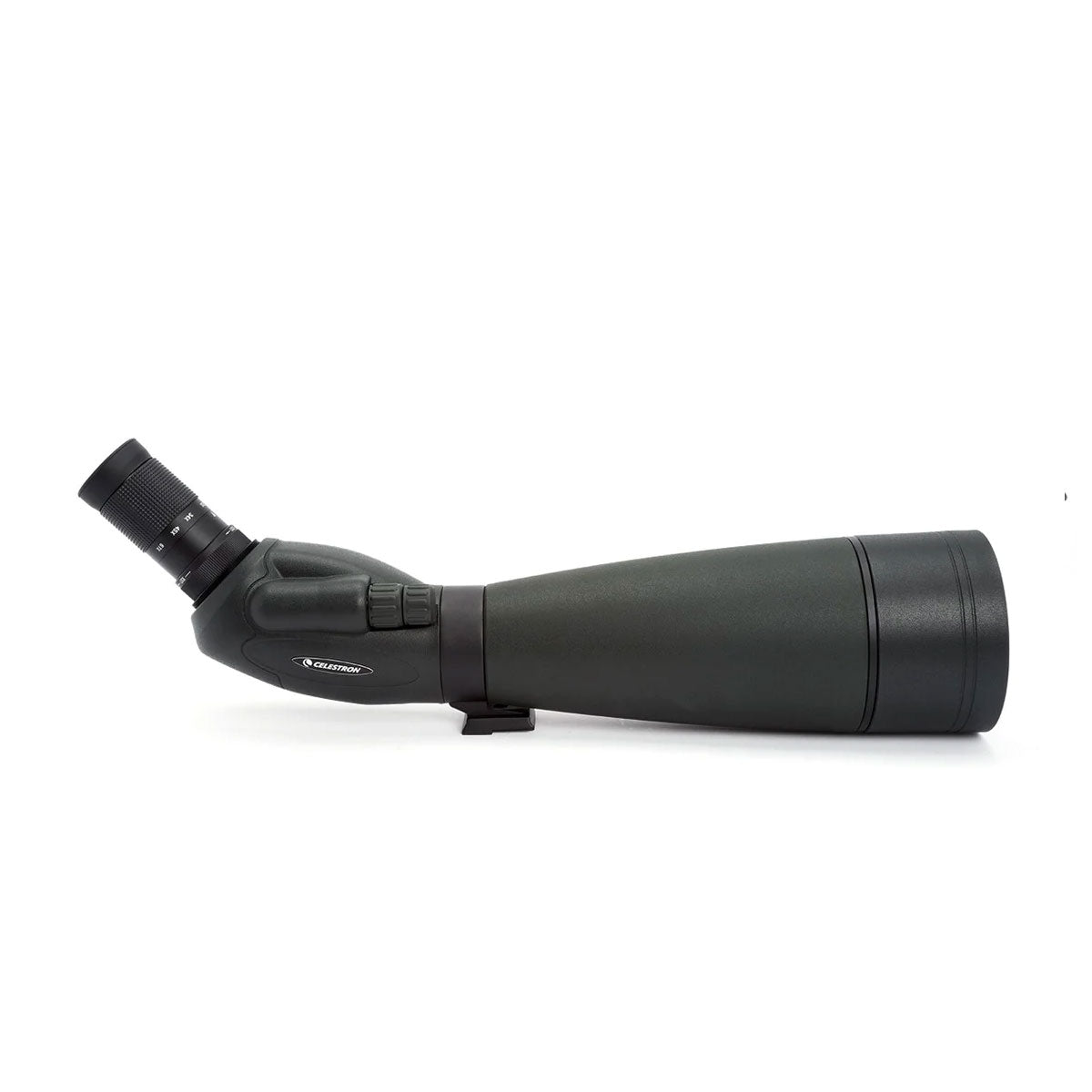
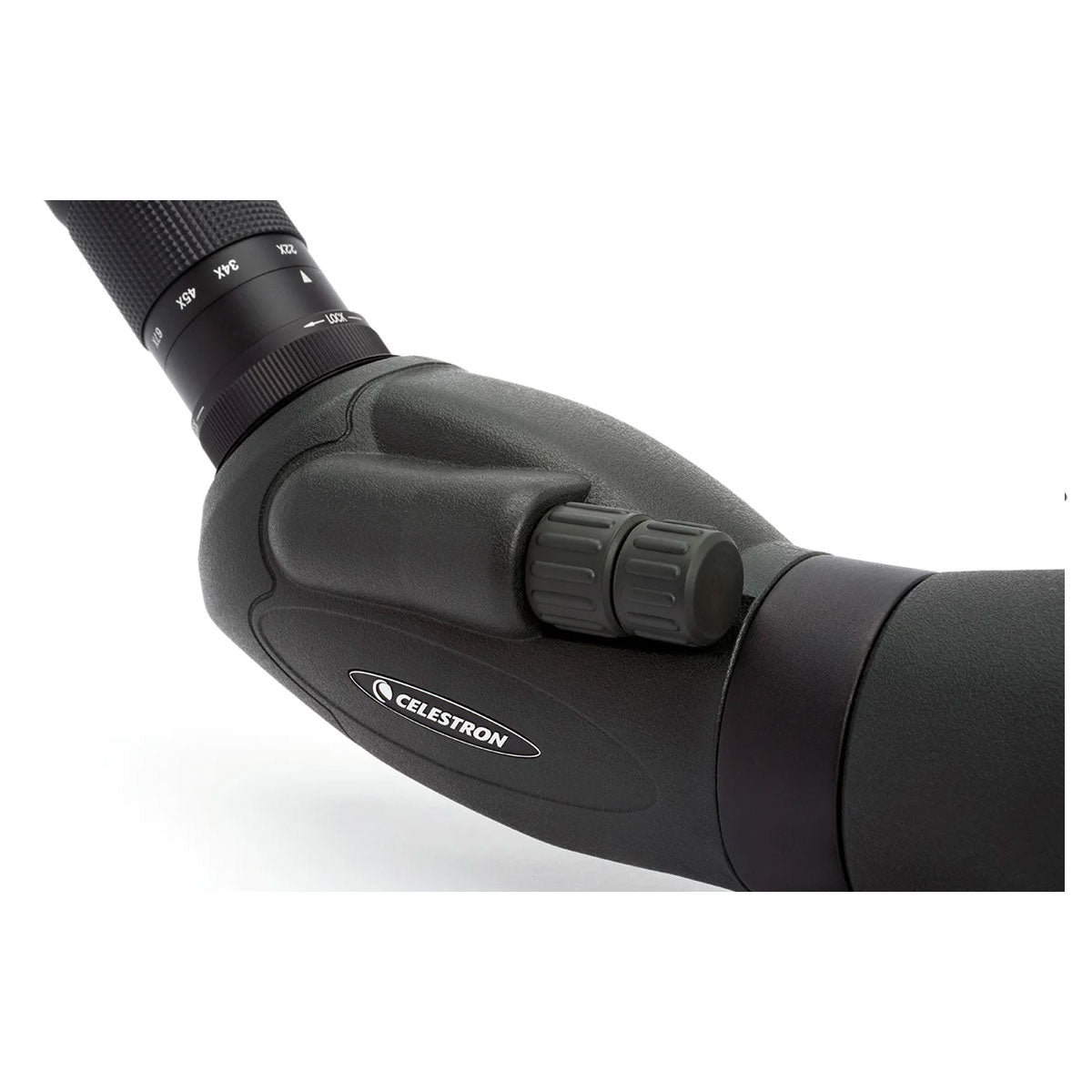
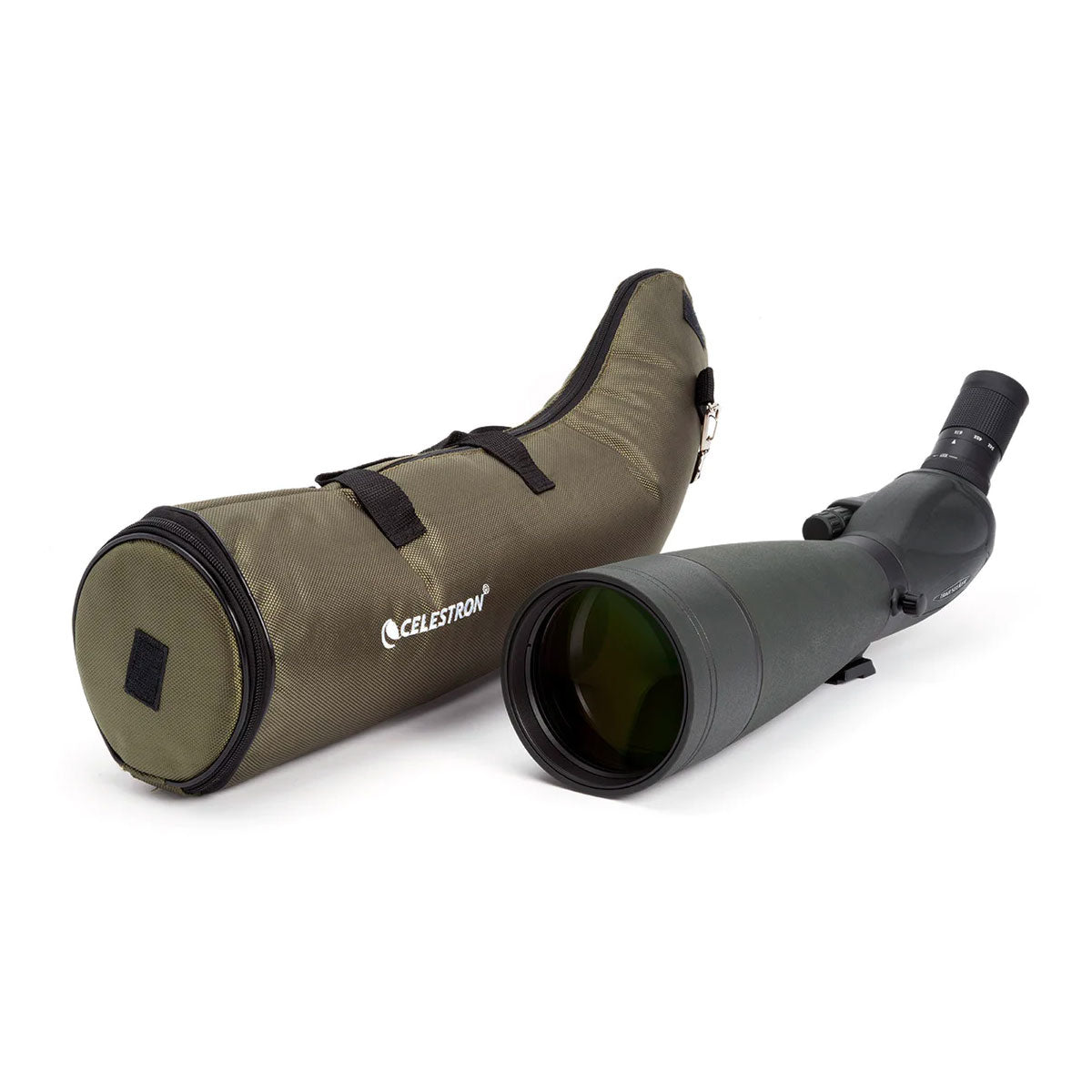
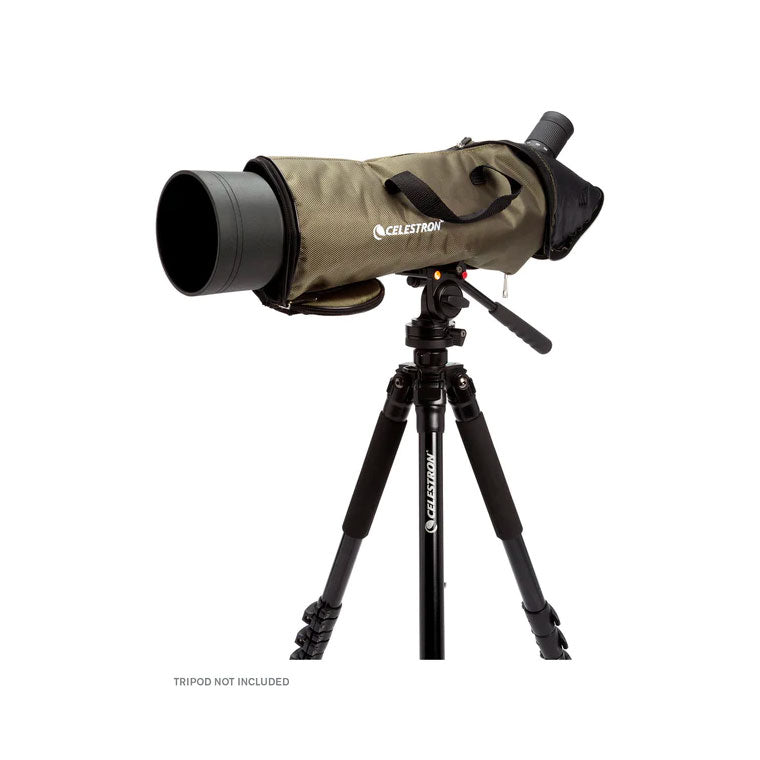
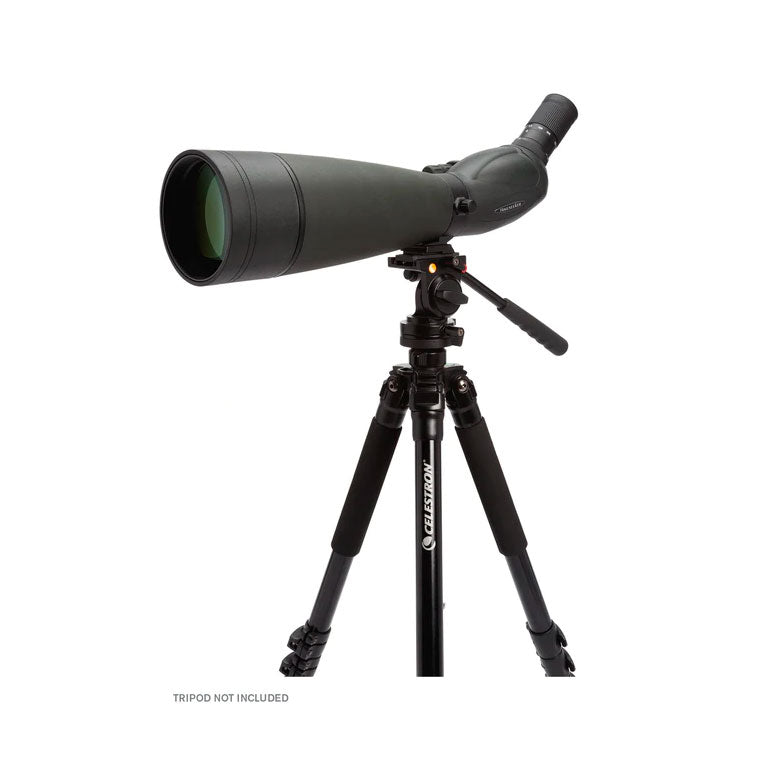
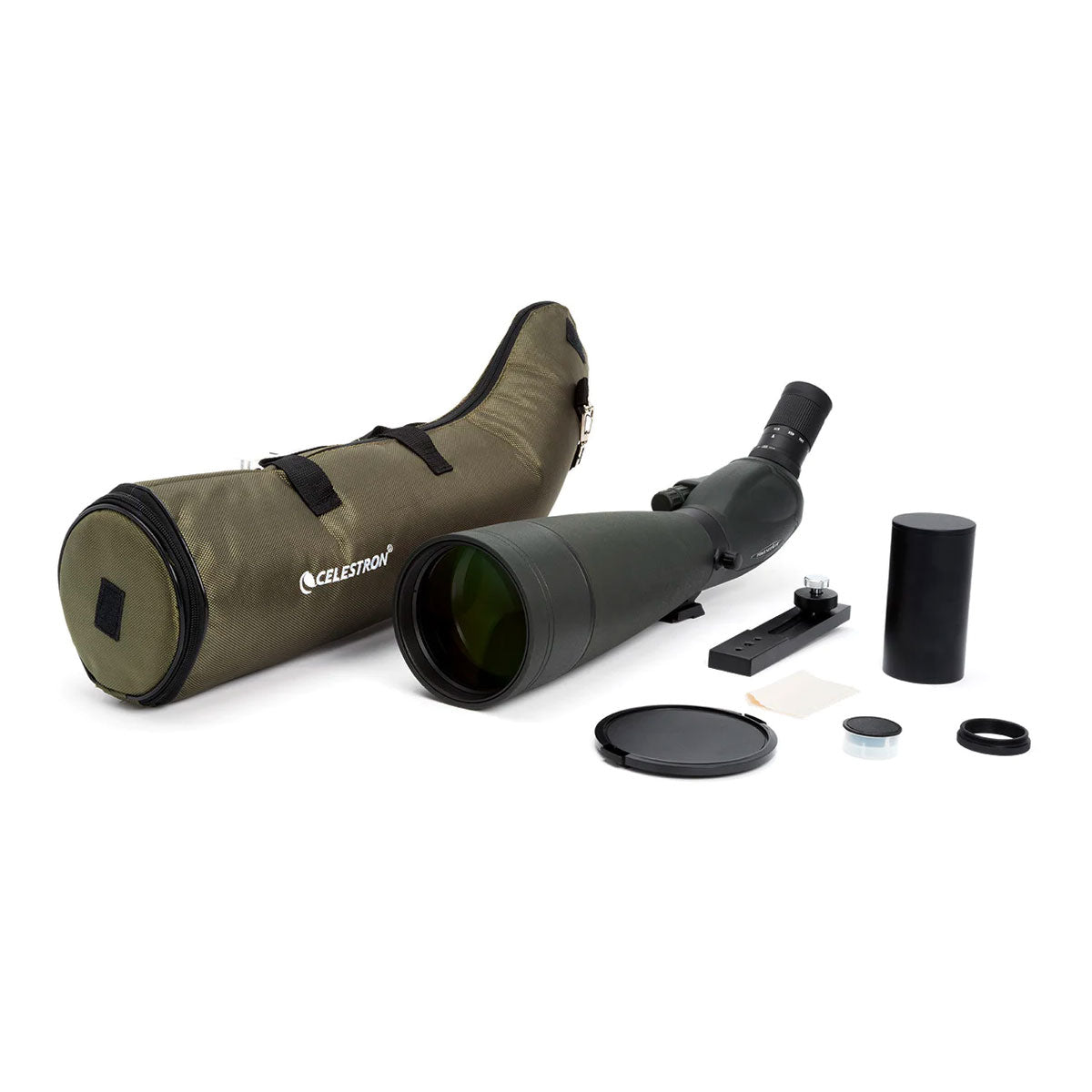
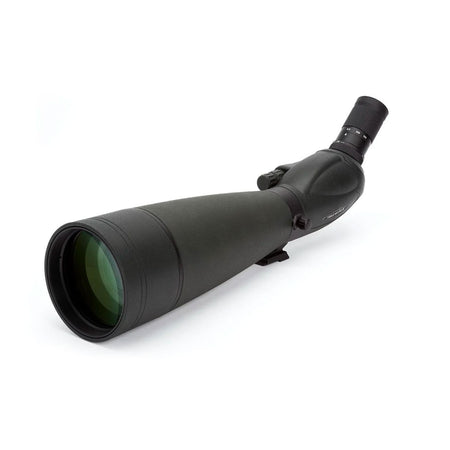
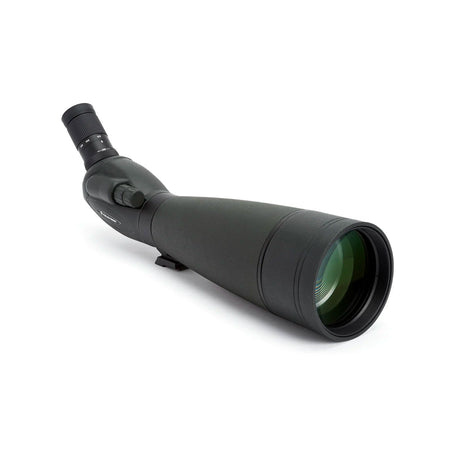
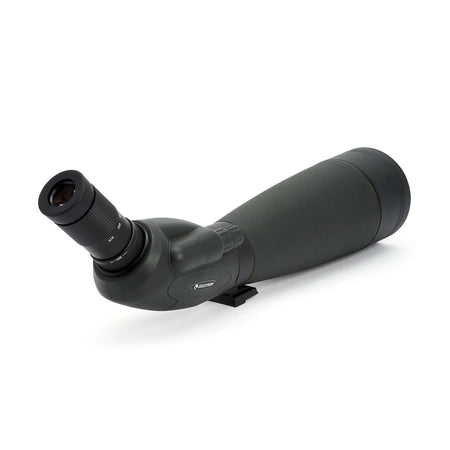
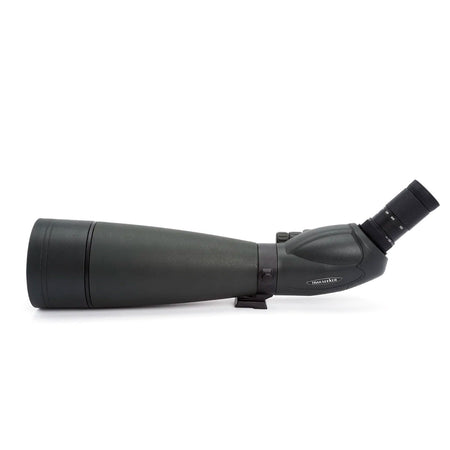
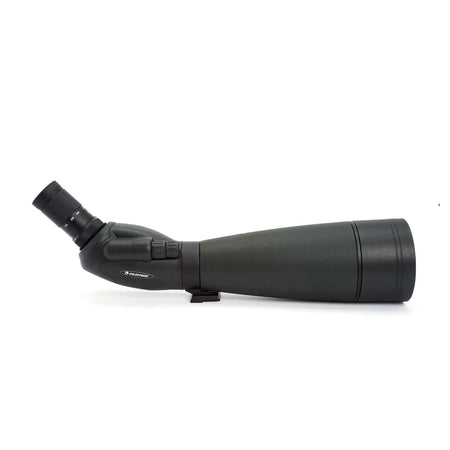
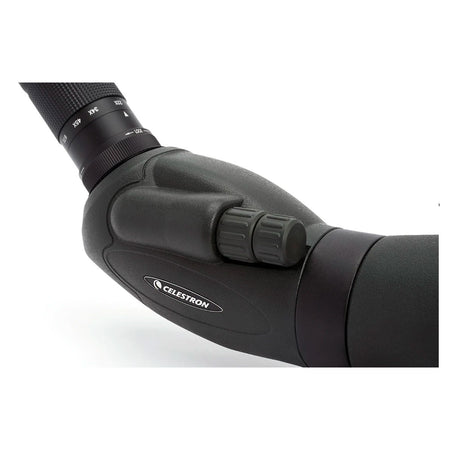
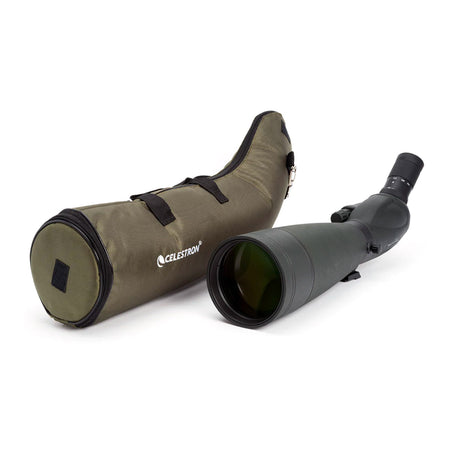
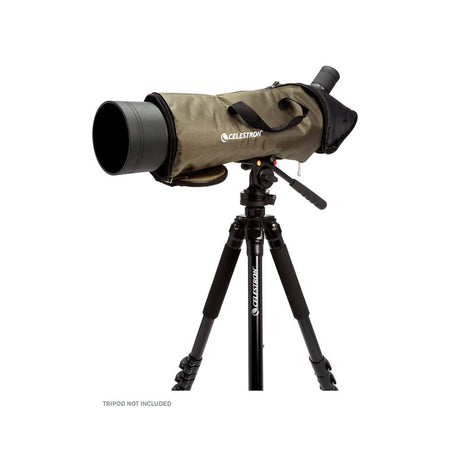
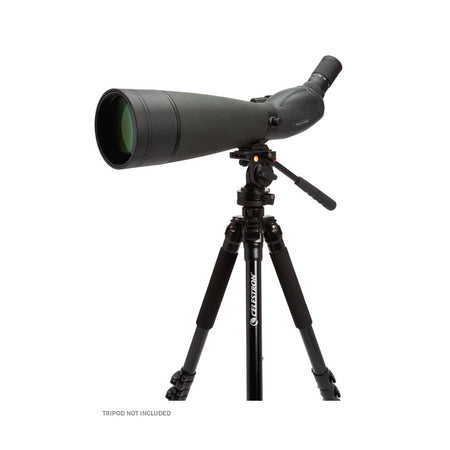
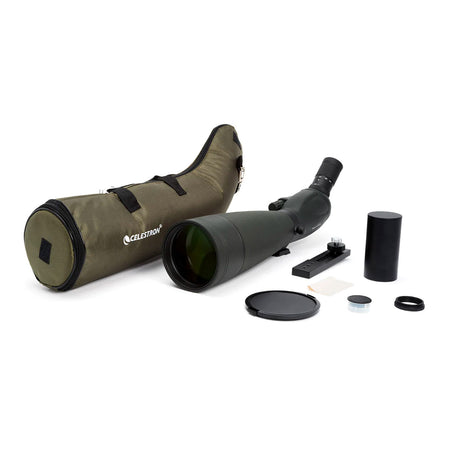
Celestron TrailSeeker 100mm Angled Zoom Spotting Scope
Regular price
£349.99
Regular price
£379.99
Sale price
£349.99
Our Verdict:
- XLT fully multi-coated optics increase light transmission through the optical path to deliver crisp, high contrast images
- Dual focus mechanism with course and fine adjustments
- 360° rotating tripod mount allows the eyepiece to be set in any viewing position
A great mid-priced spotting scope ideally suited for birding. The Celestron Trailseeker has a wide 100mm objective lens and allows for a rapid focus which can be handy for tracking birds on the move. This Spotting Scope features an angled design (though a straight option is also available) and contains multi-coated optics, which aids light transmission for a clearer image. And the larger objective lens allows more light making it an ideal choice for all light conditions. We found the focus dial to be very smooth and easy to adjust. The Celestron Trailseeker is also nitrogen filled so fully waterproof and fog-proof. Conveniently portable and weighing in at under 2kg is pretty impressive for 100mm Spotting Scope of this size and spec and comes with it’s own carry case. All in all, this is a a really well made Spotting Scope that offers reliable performance at a reasonable price!
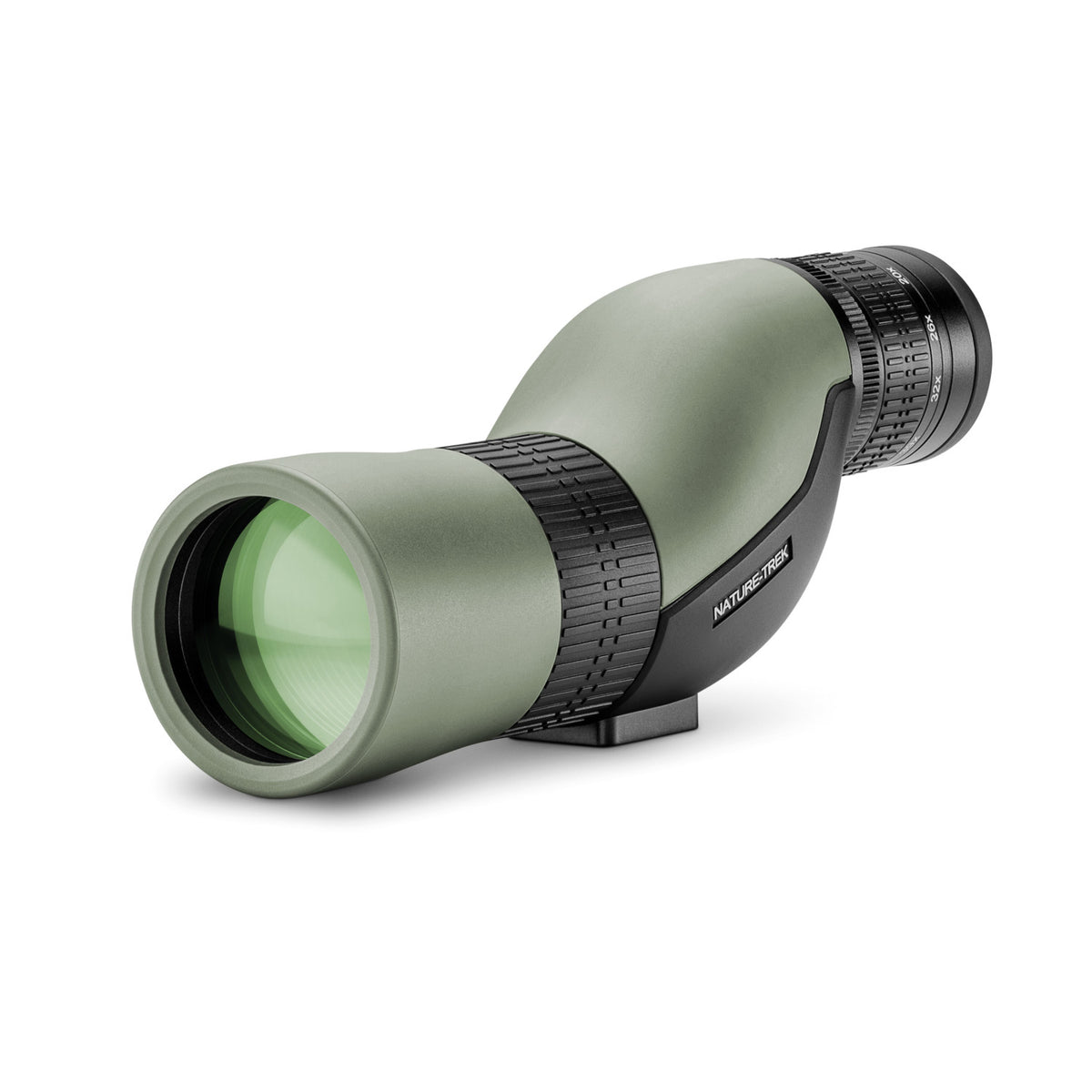
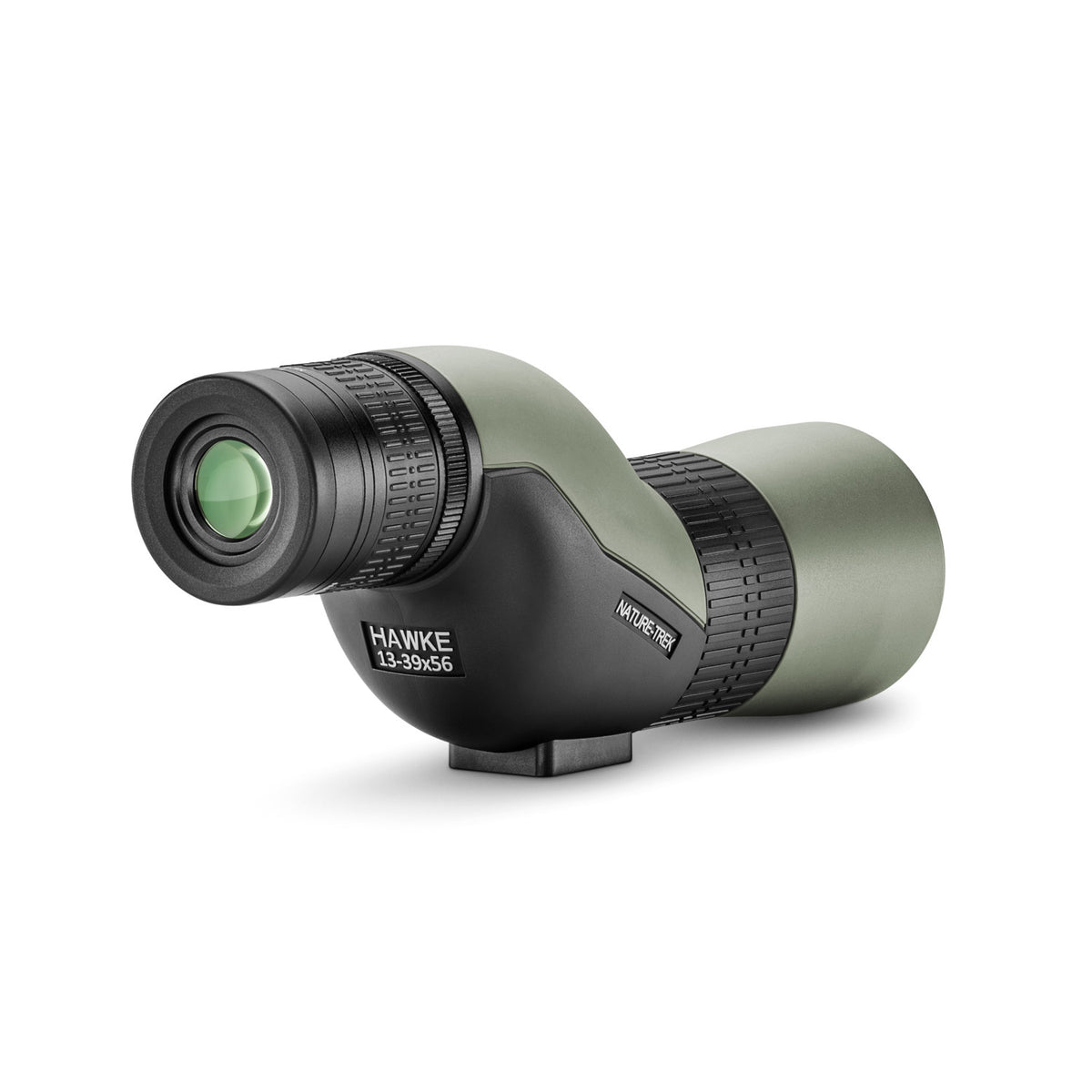
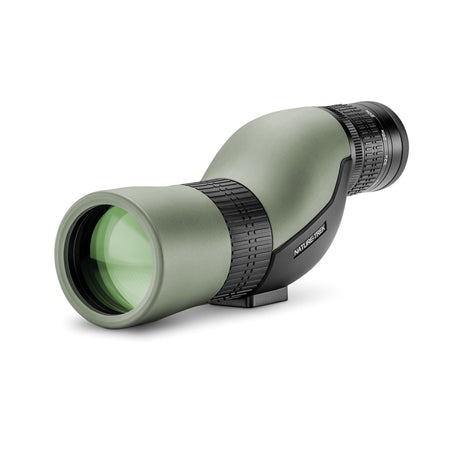
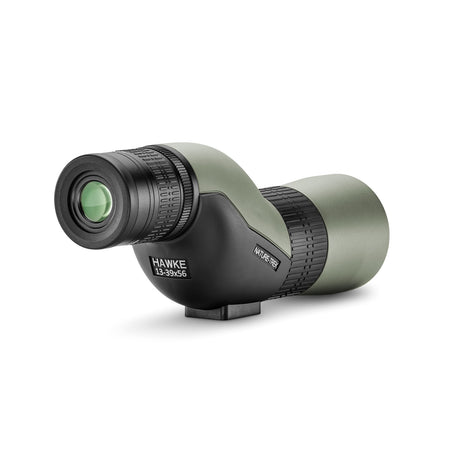
Hawke Nature-Trek 13-39x56 Straight Spotting Scope
Regular price
£279.00
Our Verdict:
- Ultra Compact And Lightweight Build
- BAK-4 Porro Prisms For Intense Colour And Contrast
- Barrel Focus for Ultra Fine Focusing
More Options Available:
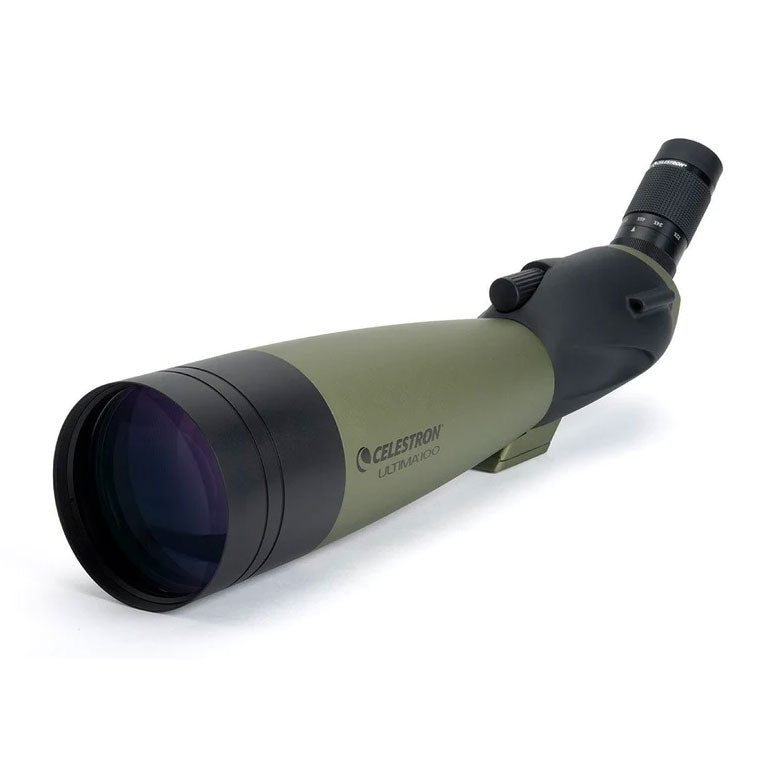
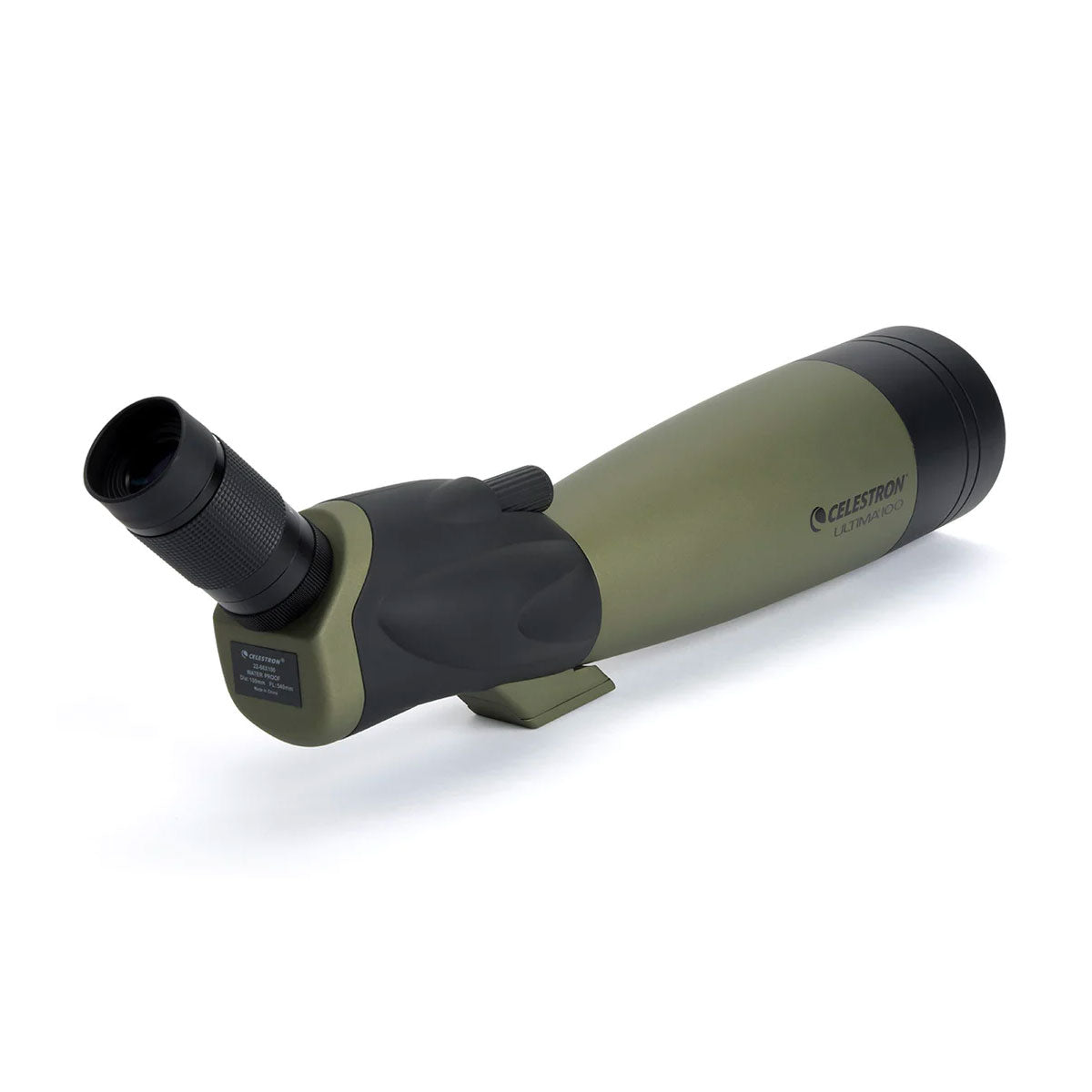
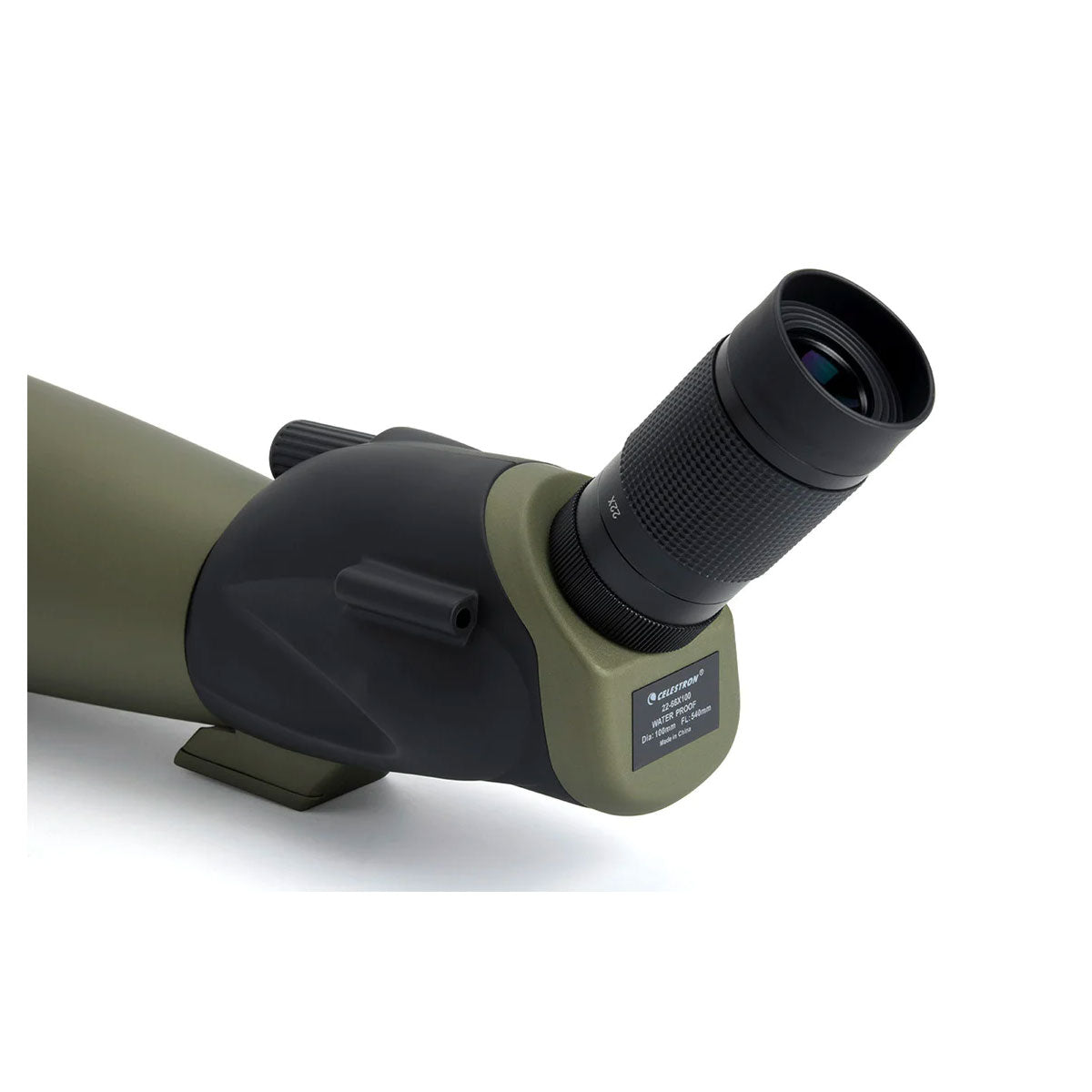
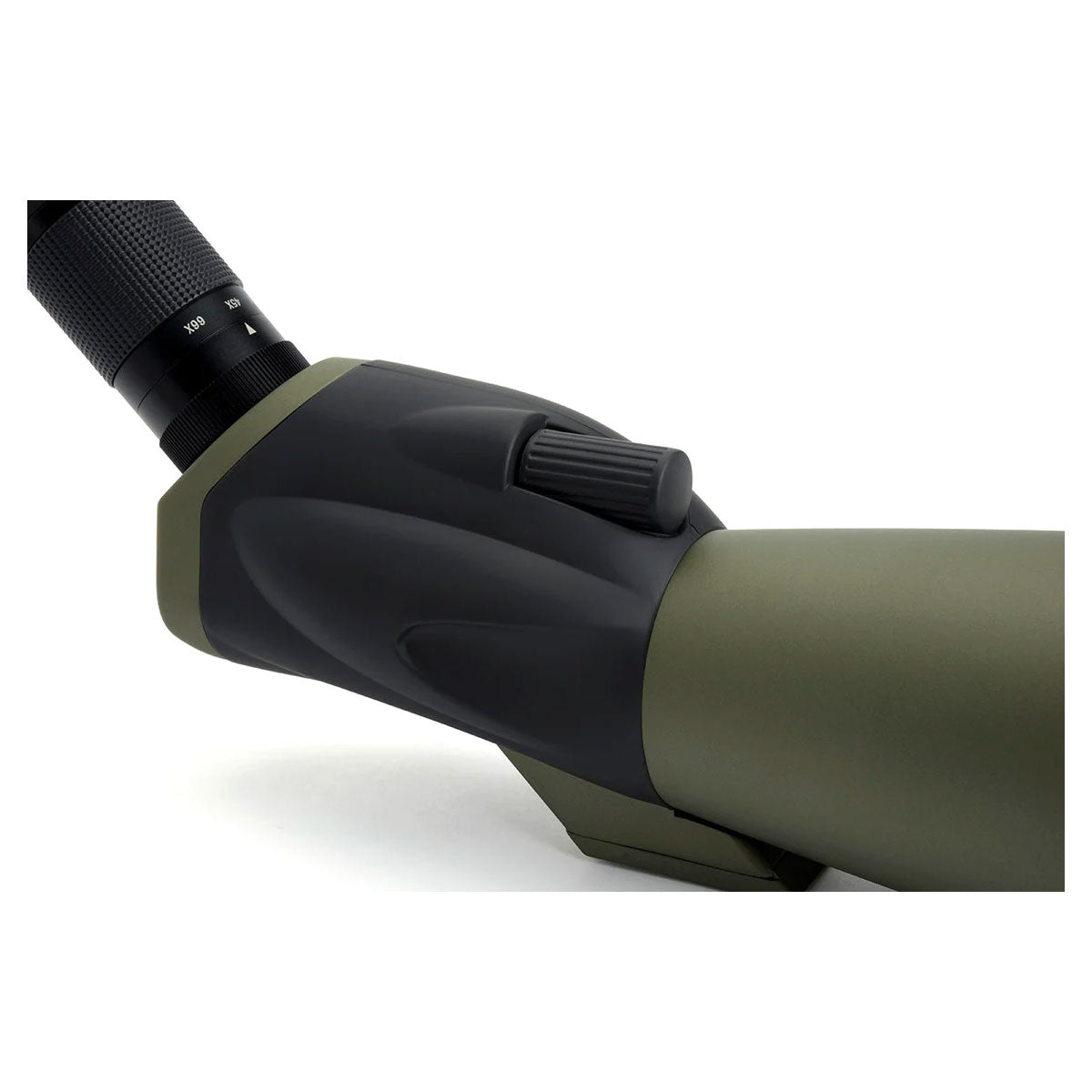
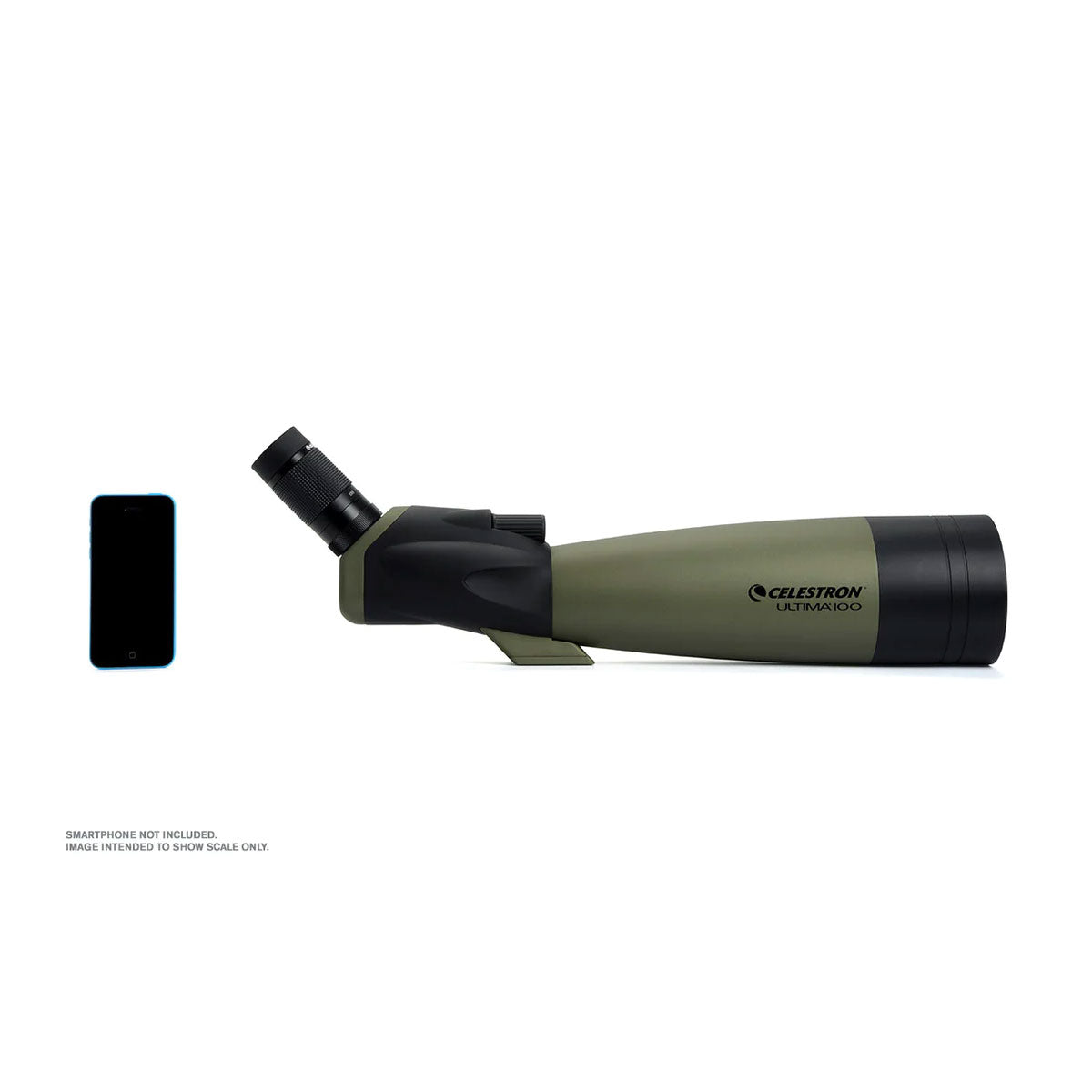
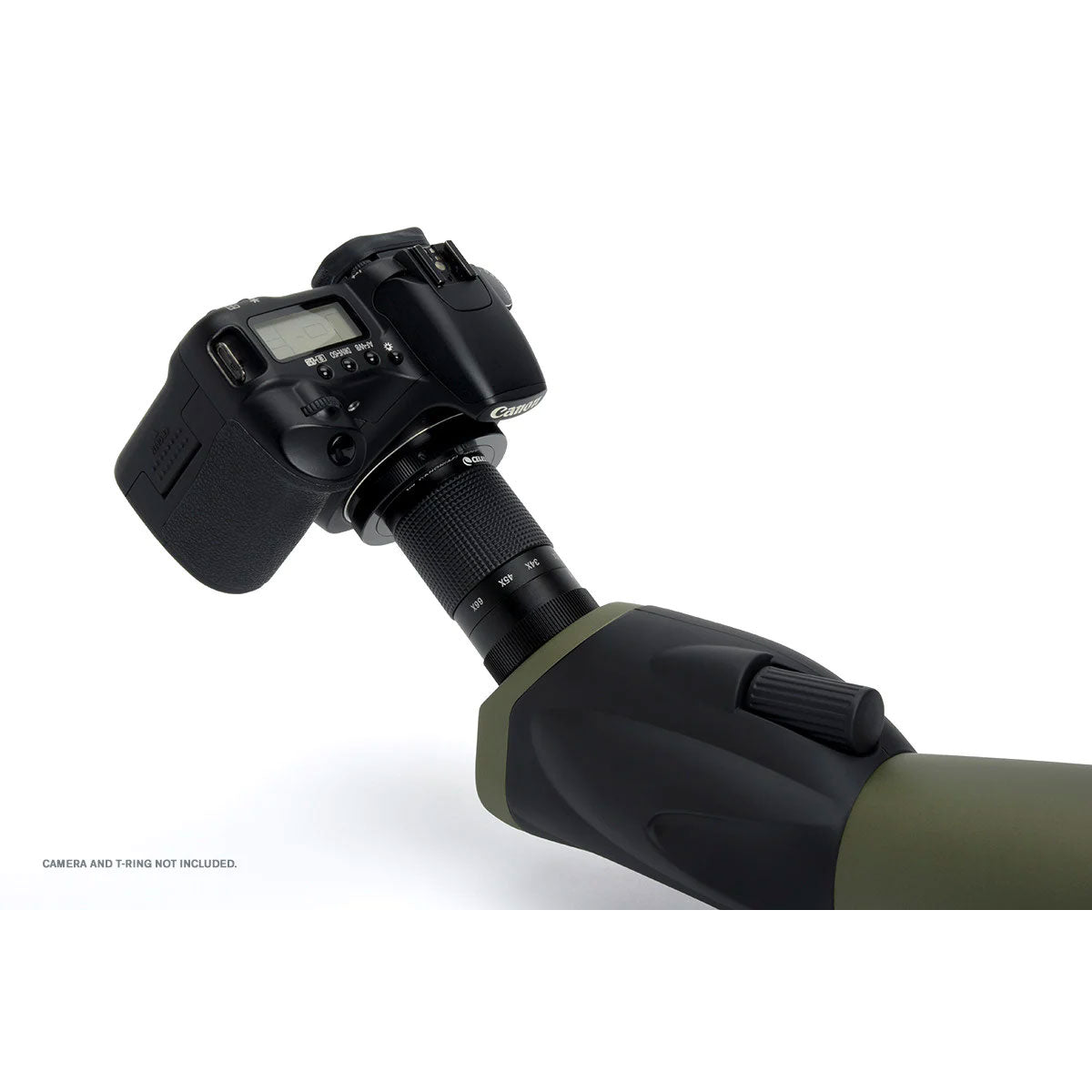
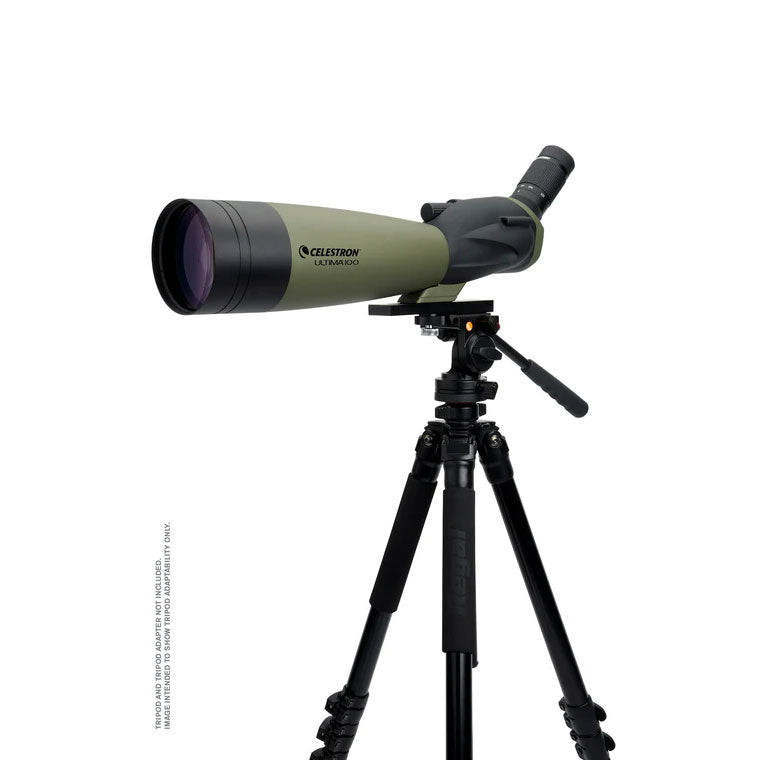
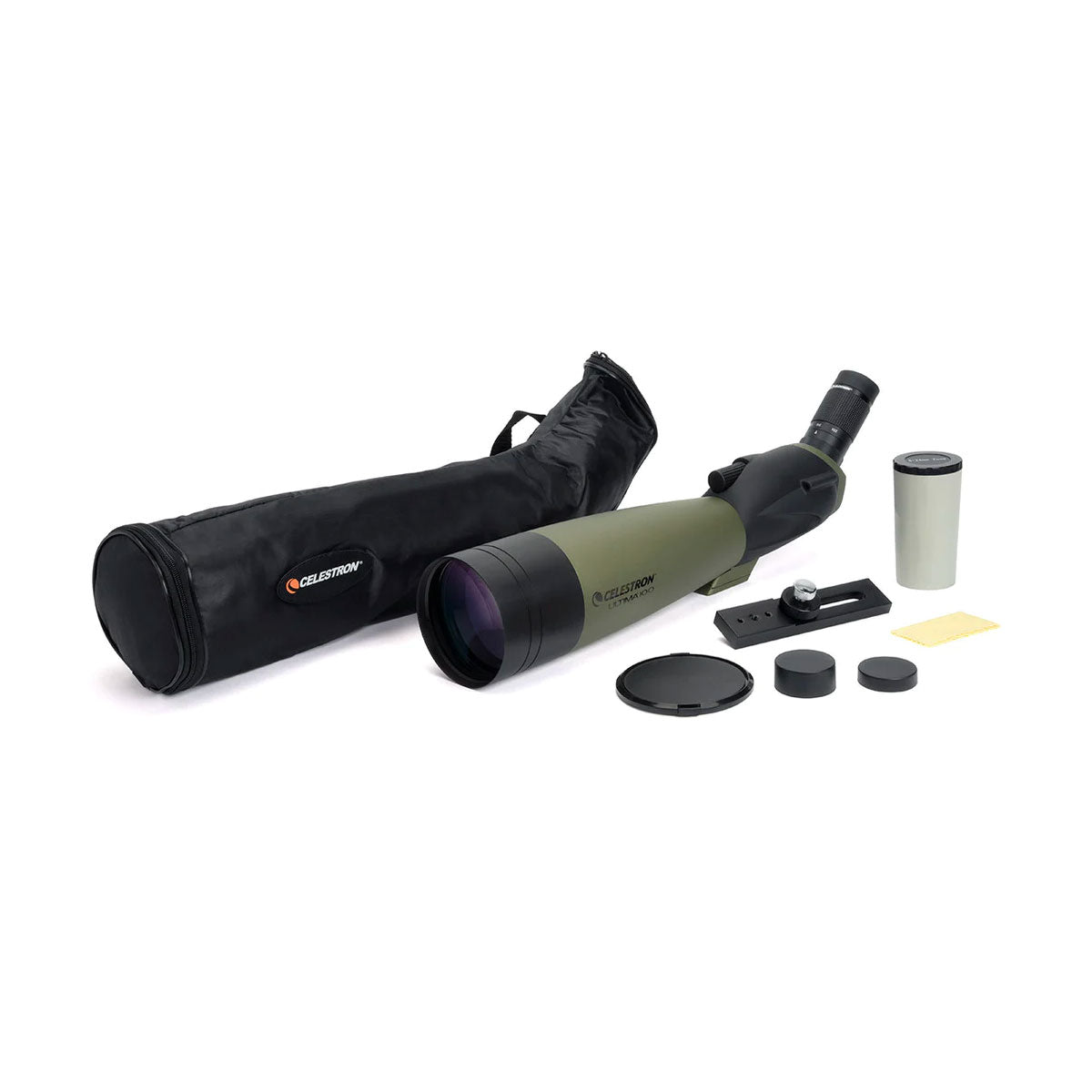
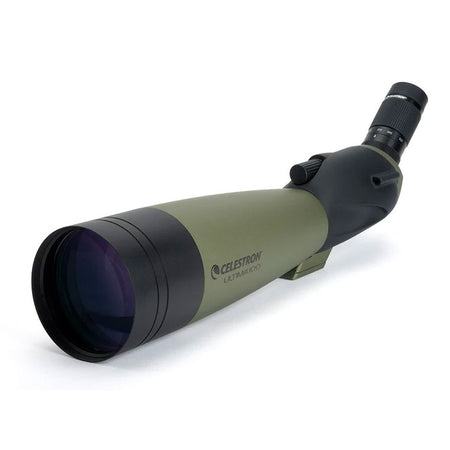
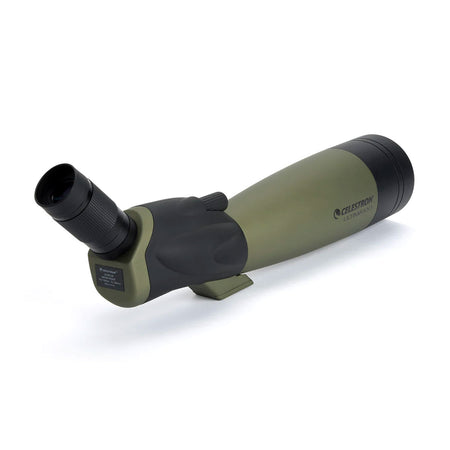
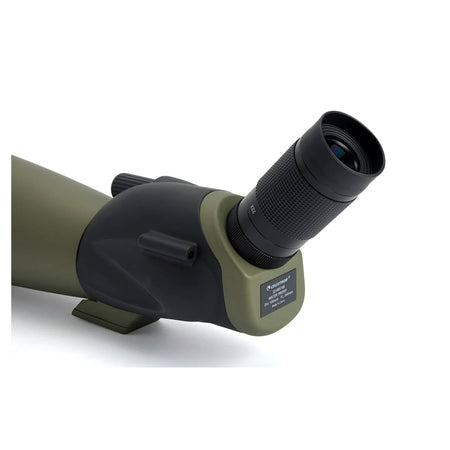
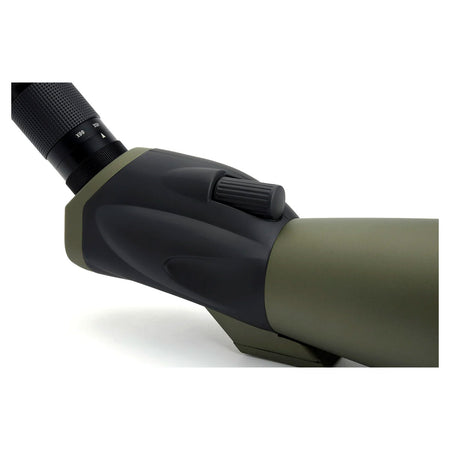
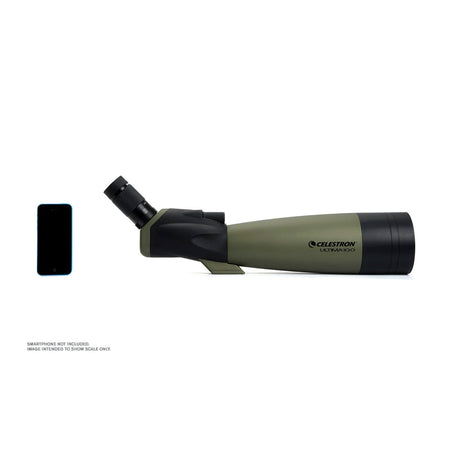
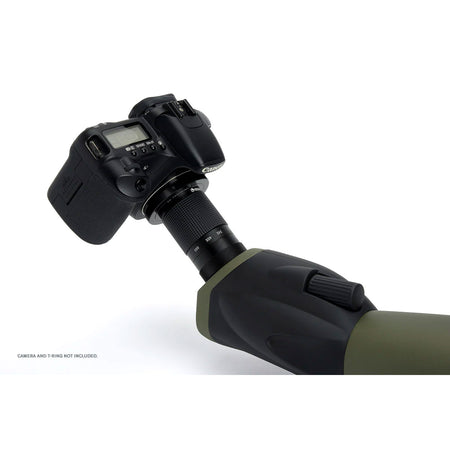
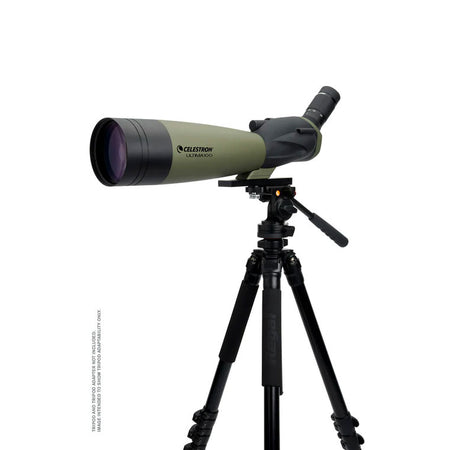
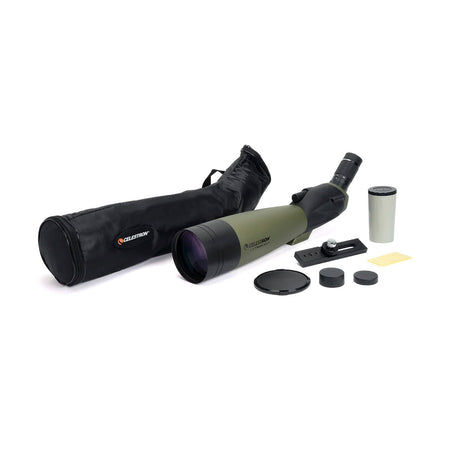
Celestron Ultima 100mm Angled Spotting Scope
Regular price
£369.99
Our Verdict:
- 100mm Refractor Spotting Scope
- Multi-Coated optics
- 45° viewing angle
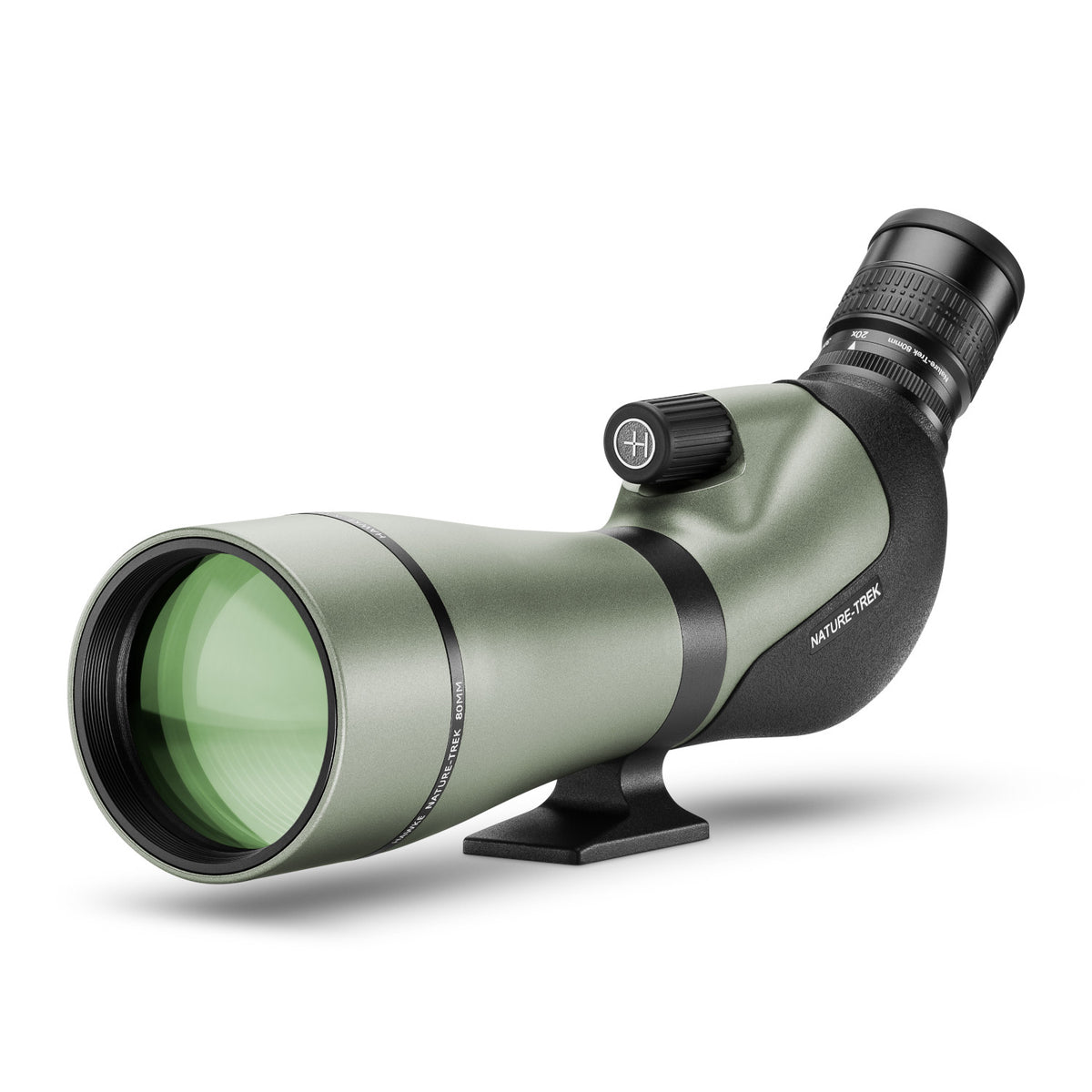
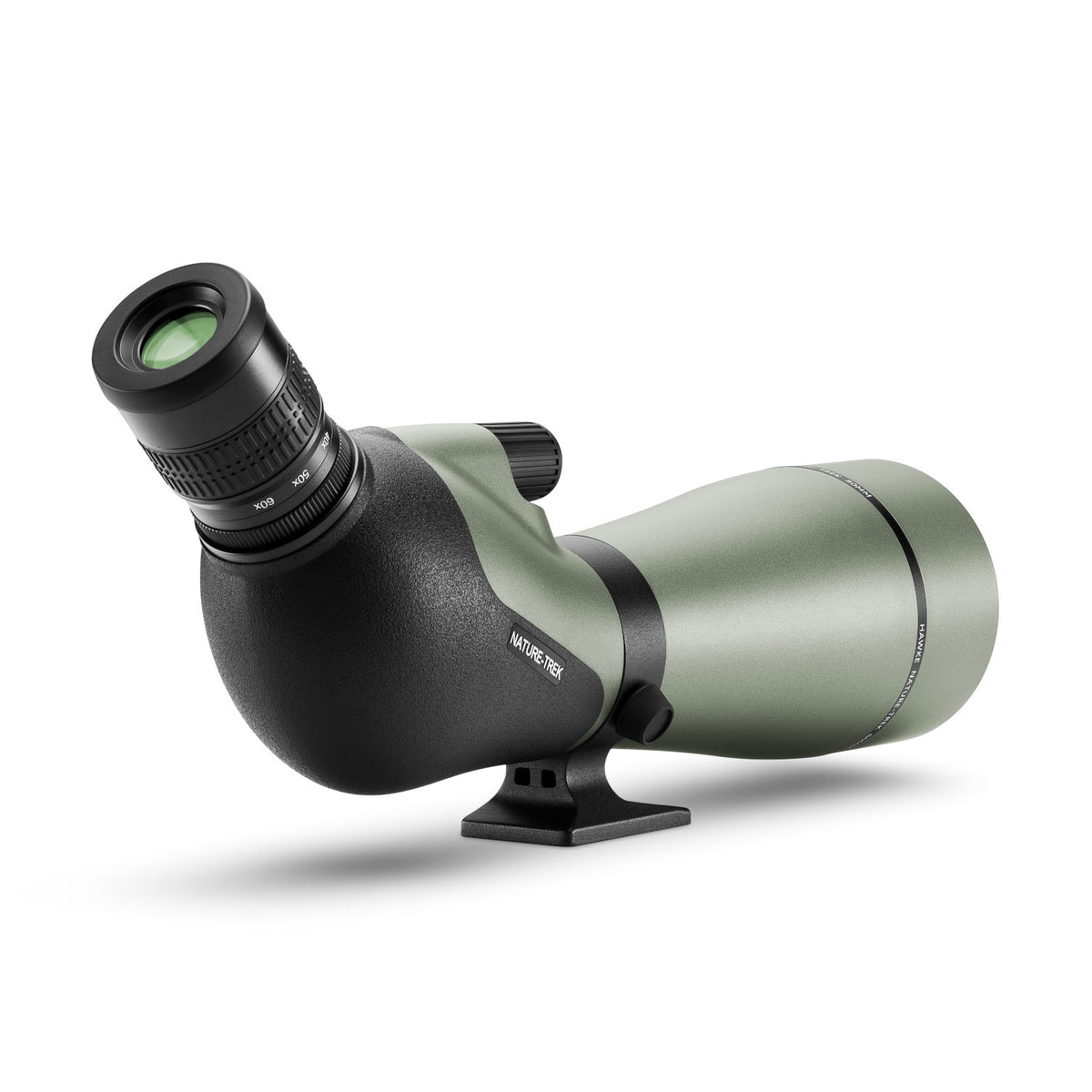
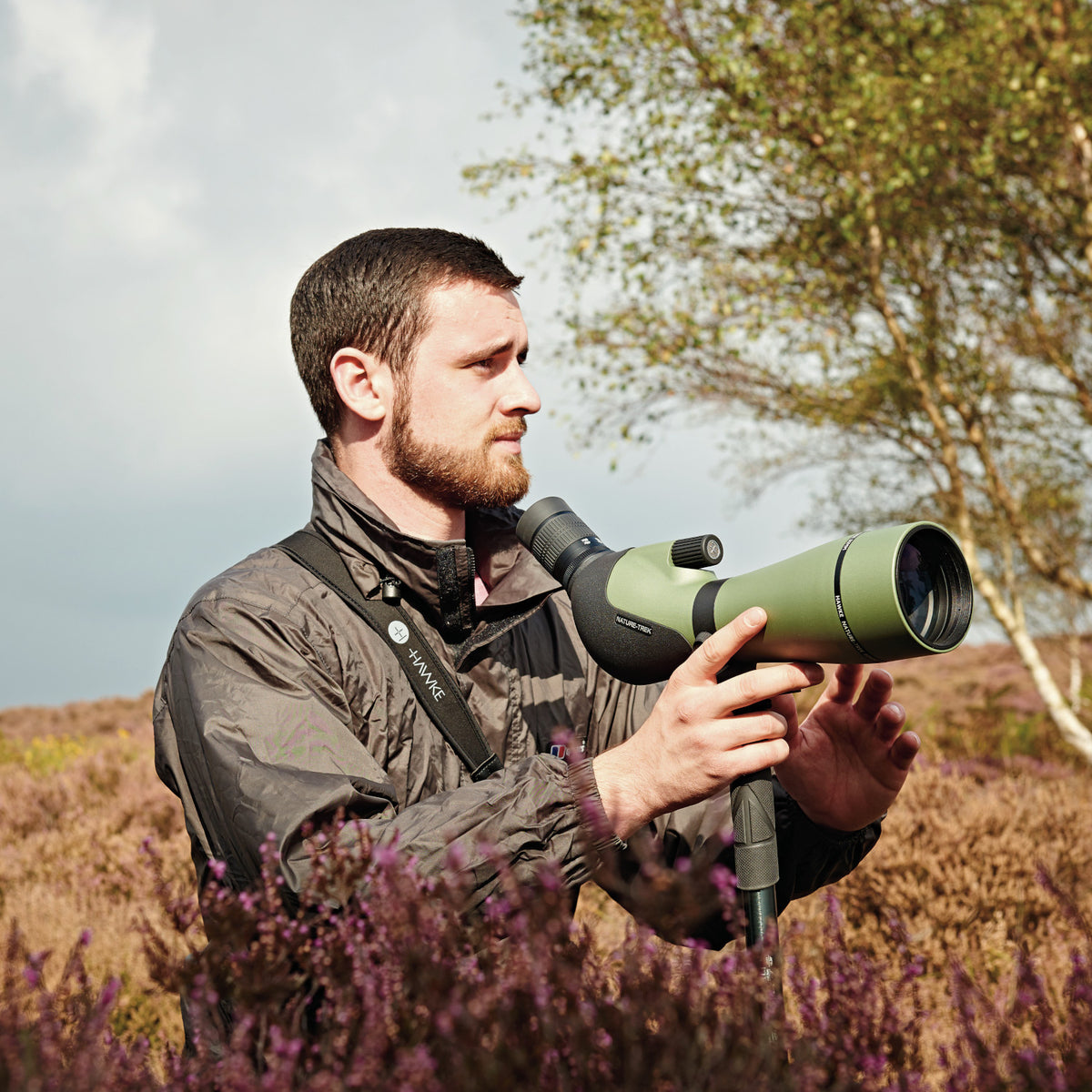
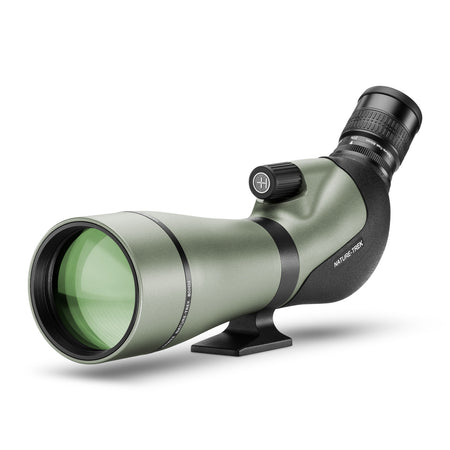
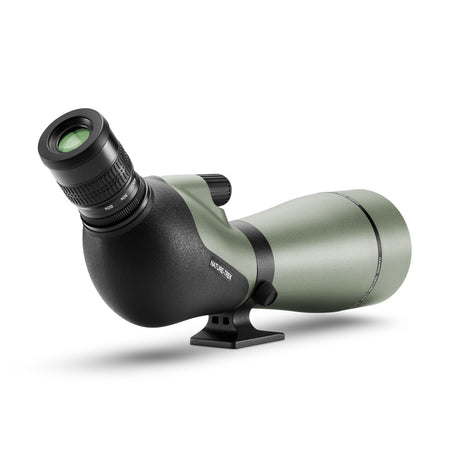
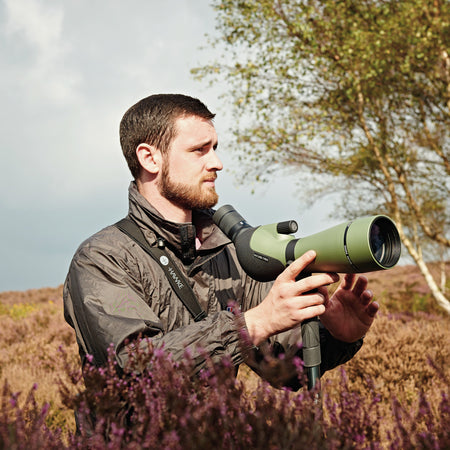
Hawke Nature-Trek 20-60x80 Angled Spotting Scope
Regular price
£329.00
Our Verdict: Perfectly compact despite the wide objective lens!
- BAK-4 Porro Prisms For Intense Colour And Contrast
- Close Focus - From 5.5m
- Rotating Body for Virtually Any Angle
We were so impressed with the performance of the Nature-Trek Spotting Scopes and their great value for money, that 3 have been included in our top picks. This 20-60x80 angled scope has a larger objective lens and offers brighter and more detailed observations. Although it's a little heavier, this is still a relatively lightweight option.
More Options Available:
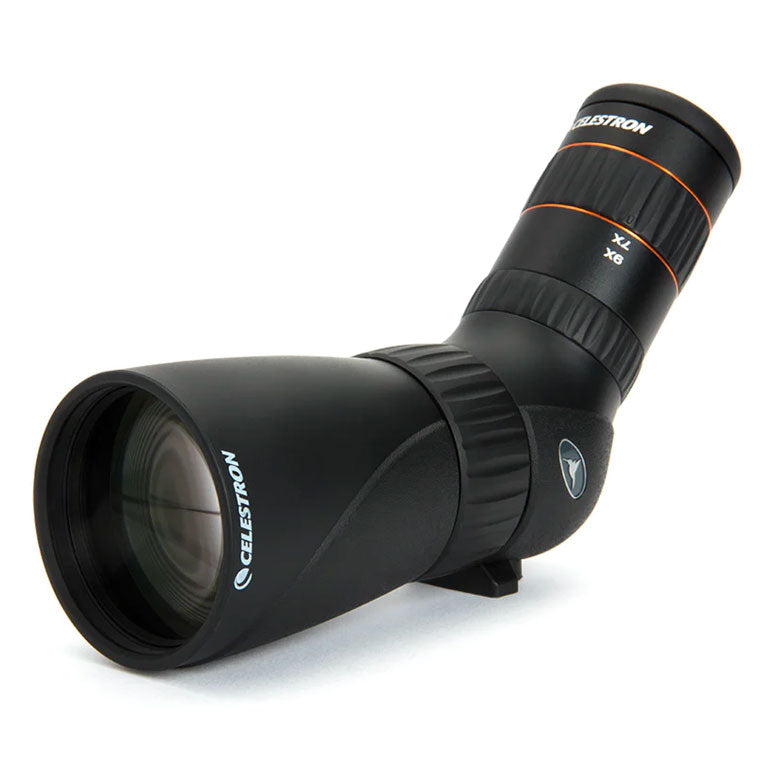
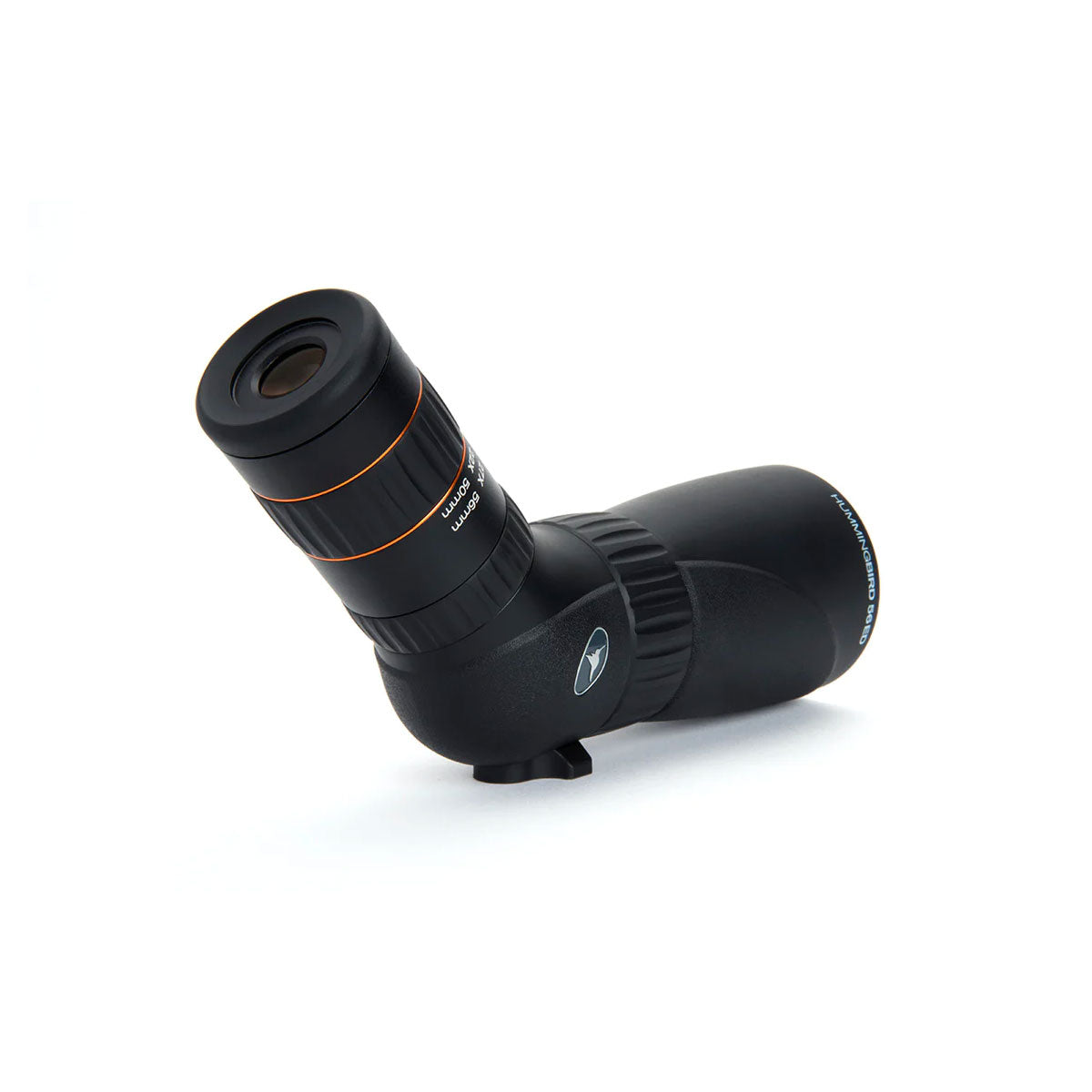
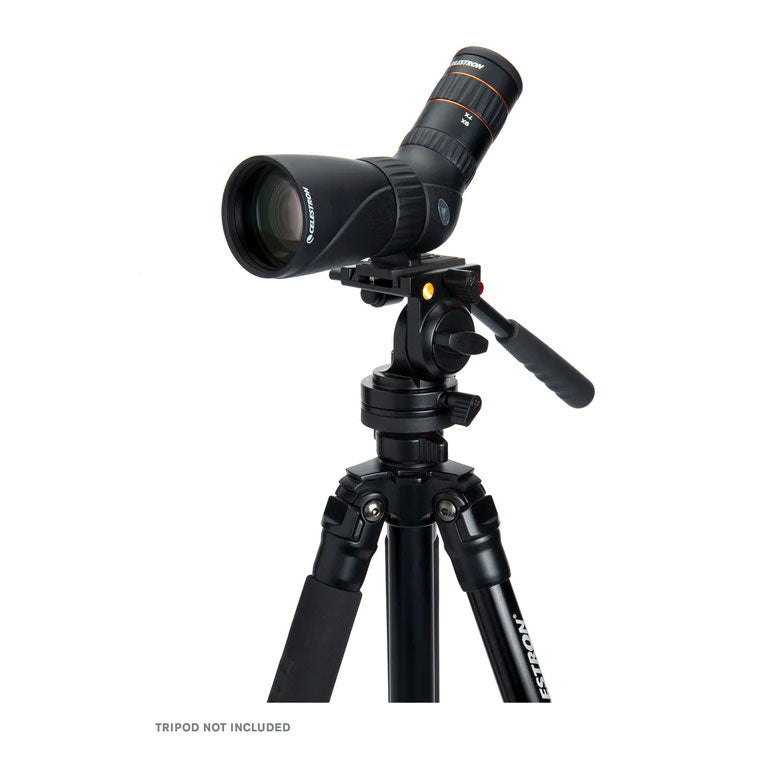
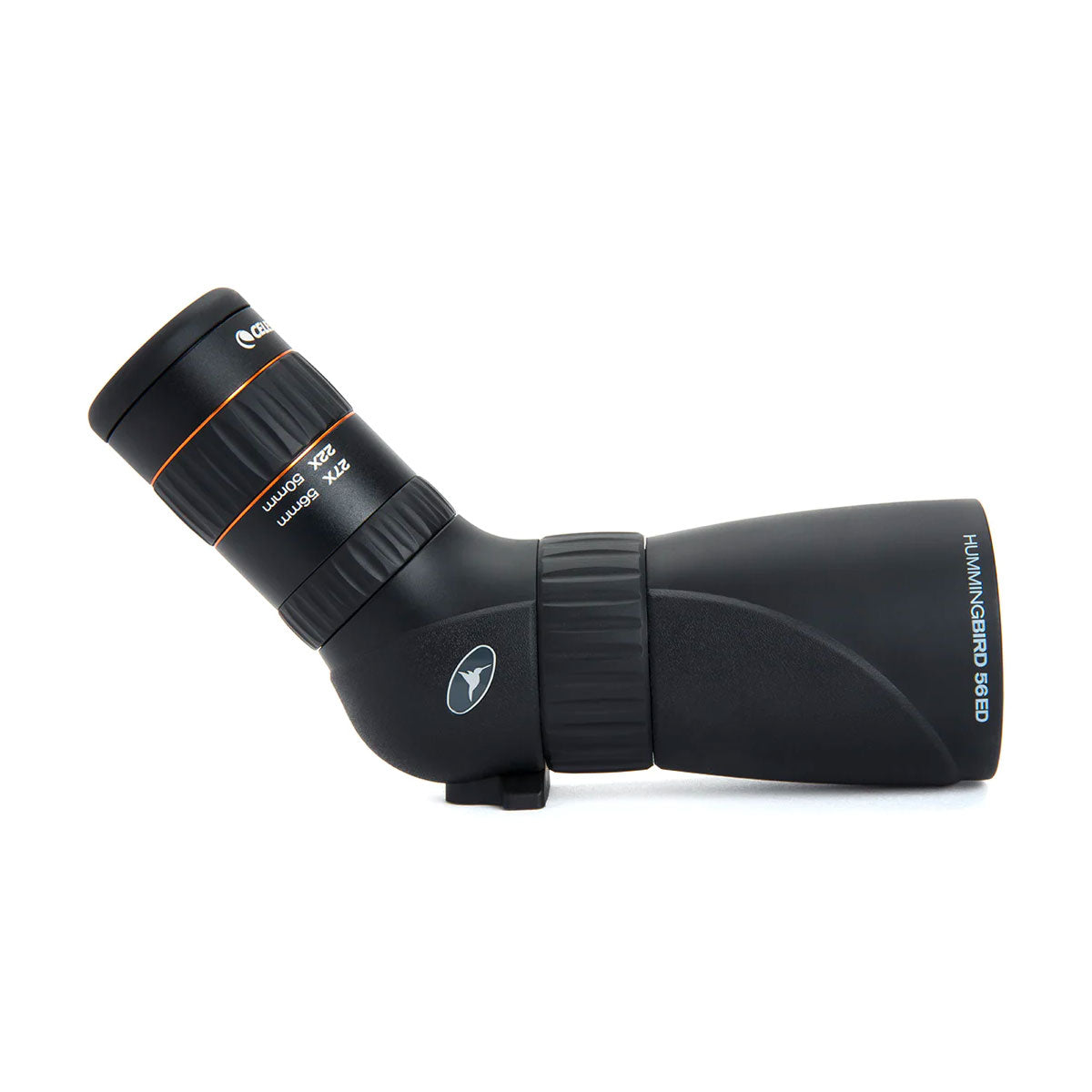
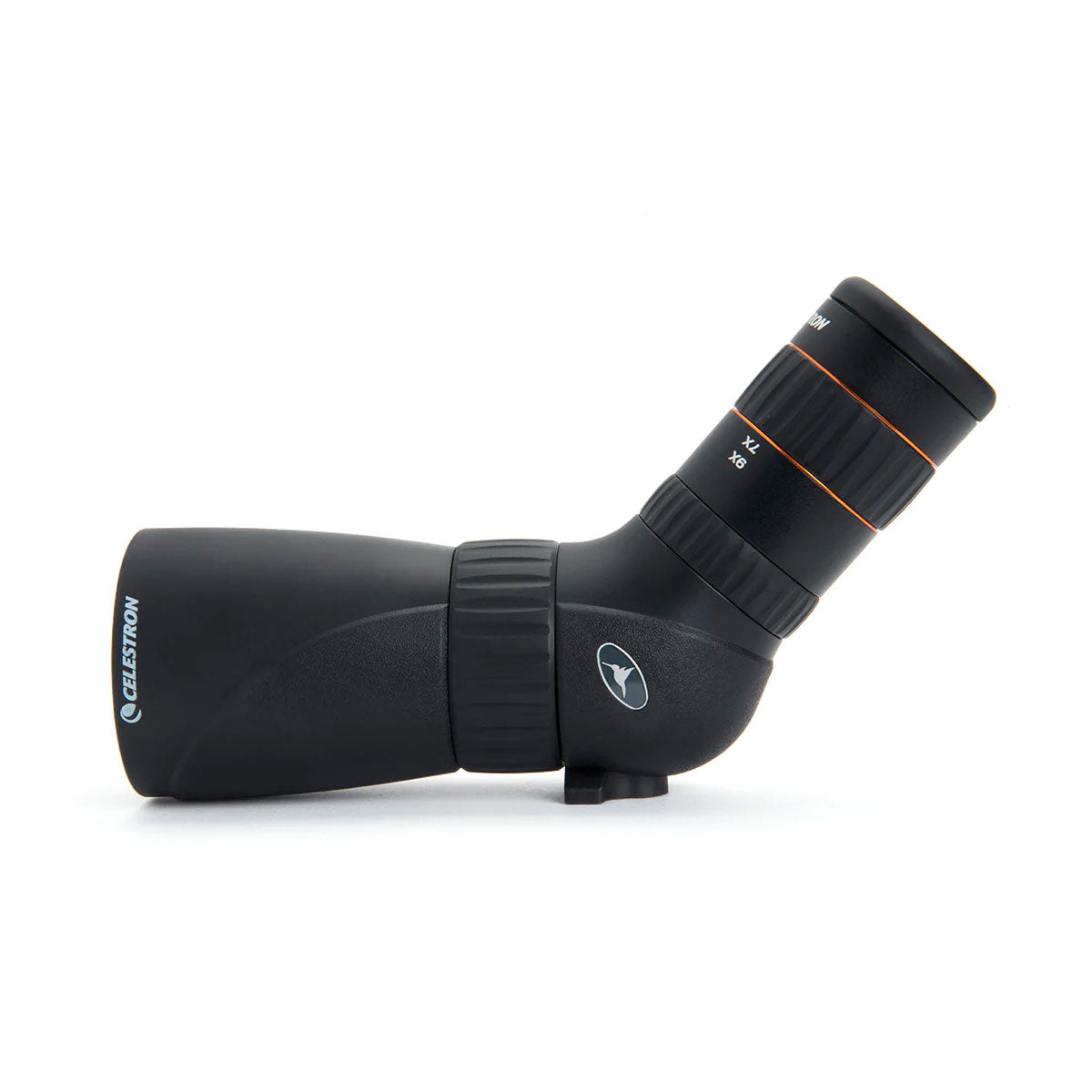
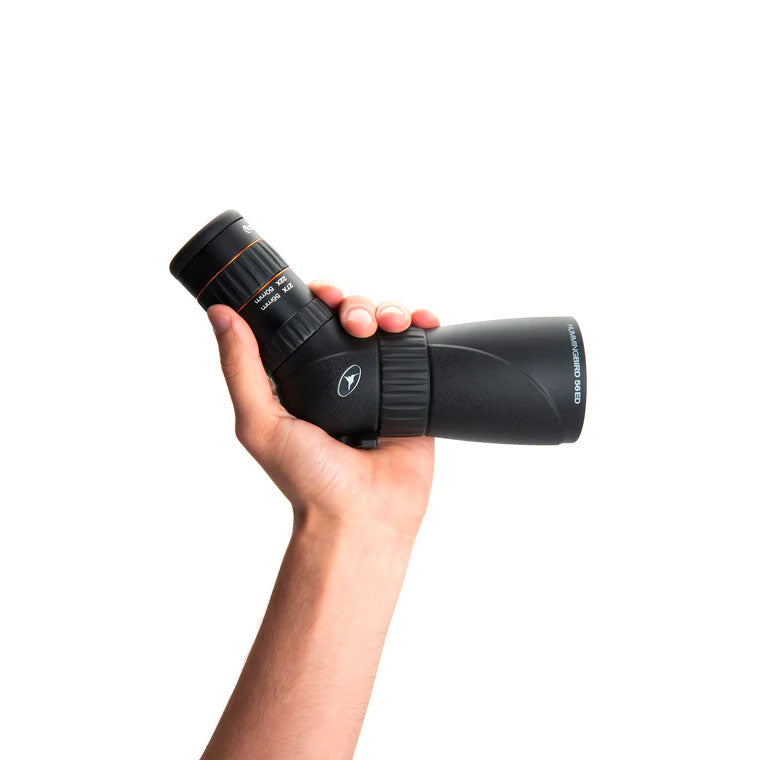
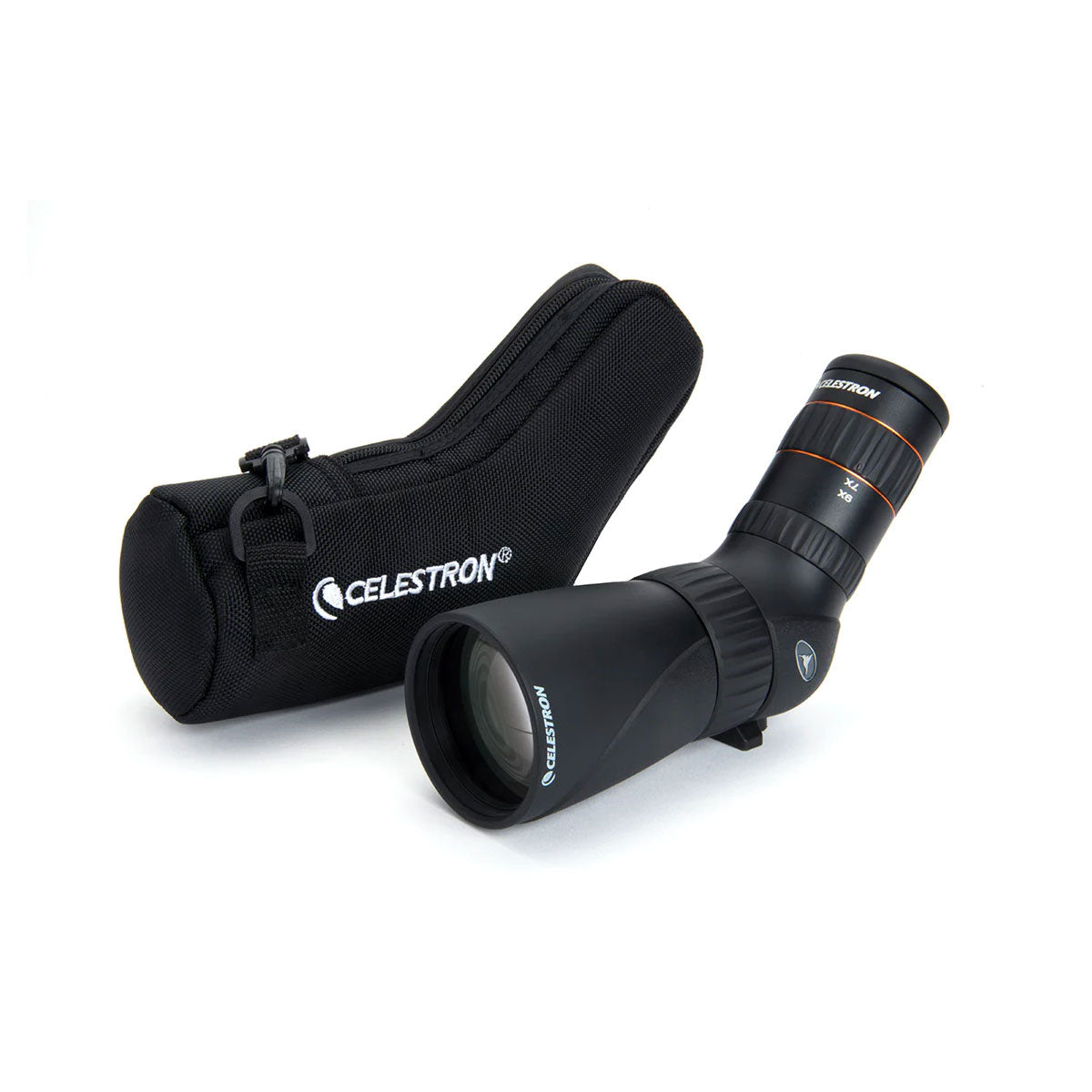
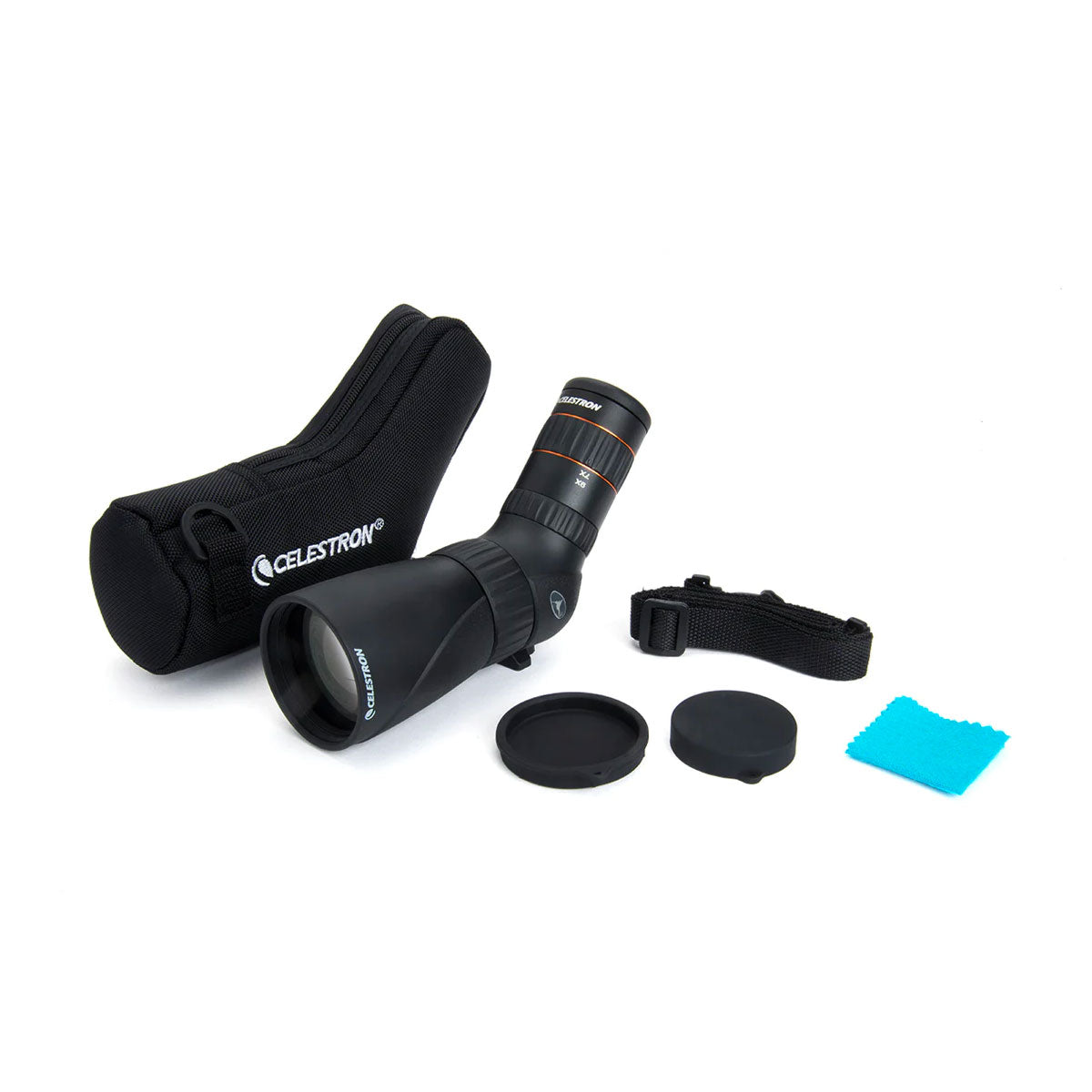
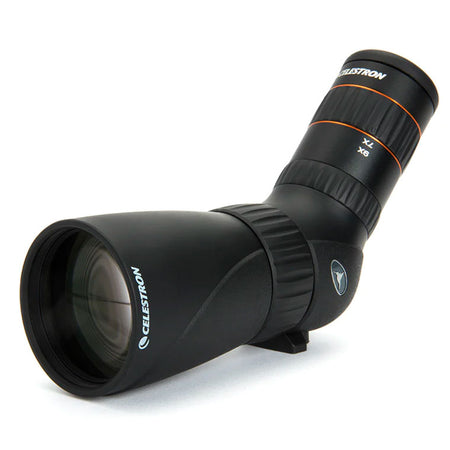
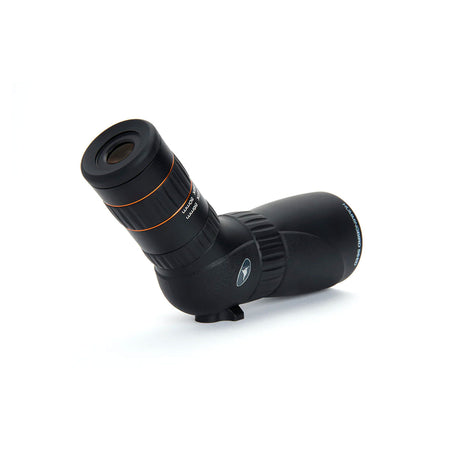
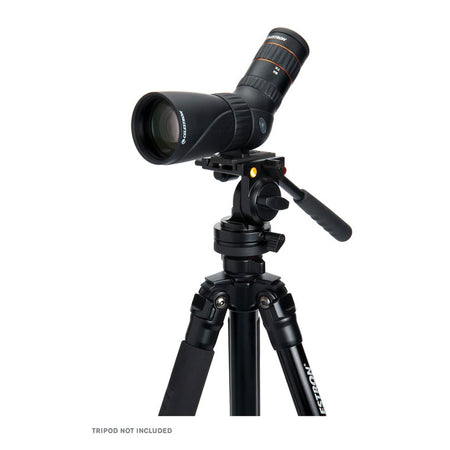
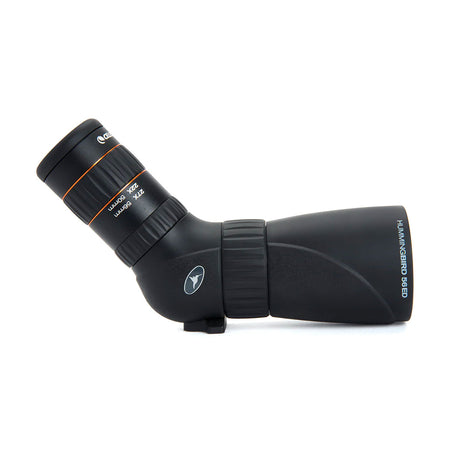
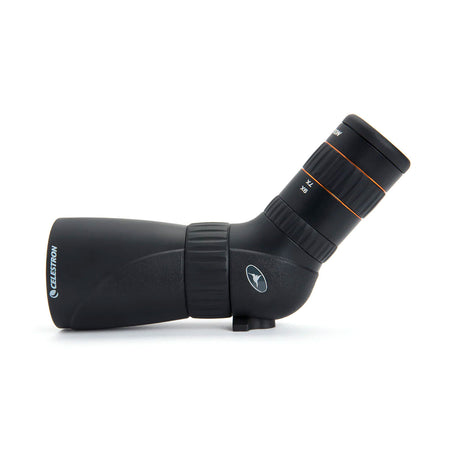
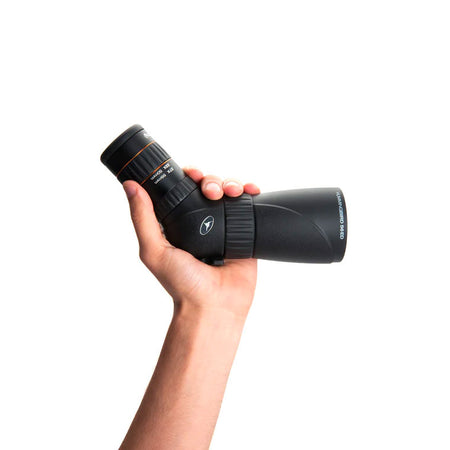
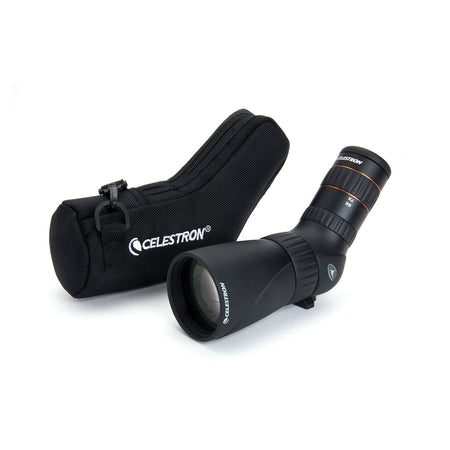
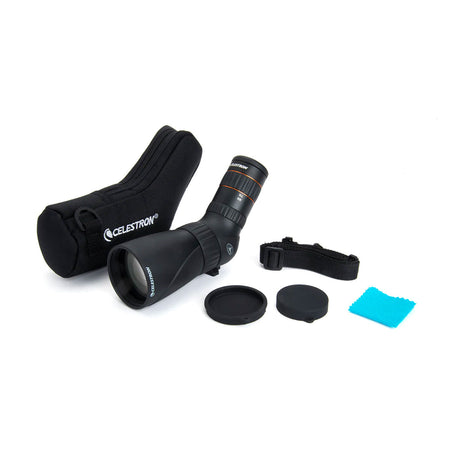
Celestron Hummingbird 9-27x56 ED Micro Spotting Scope
Regular price
£259.99
Regular price
£279.99
Sale price
£259.99
Our Verdict:
- Micro-sized scope ideal for nature loves, birdwatchers, and hikers
- ED lens optical system provides sharp, clear images with vivid, well-managed color
- 9-27x magnification range spans binoculars and spotting scopes





